Shows
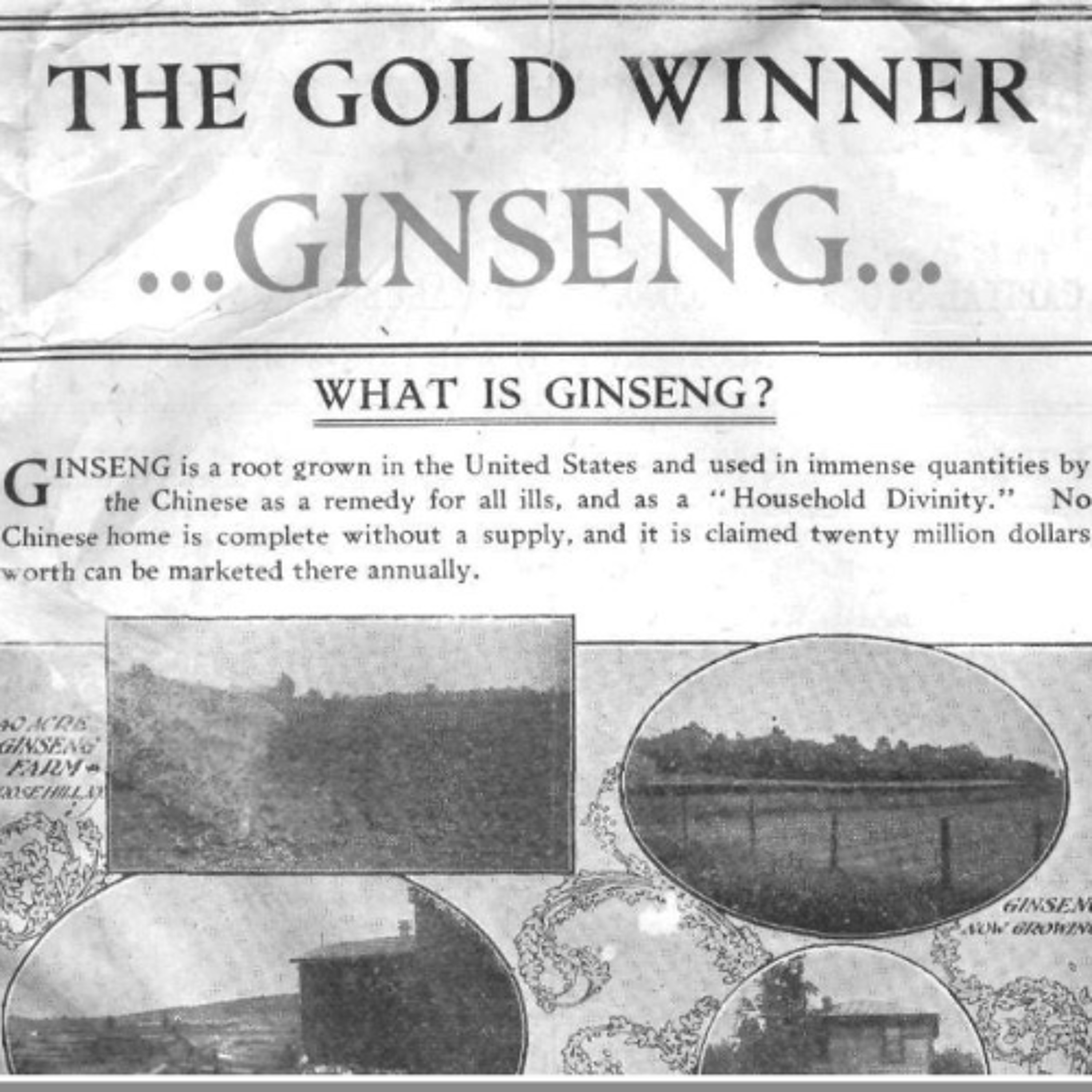
Hagley History HangoutPennsylvania Merchants and American Ginseng in China, 1784-1840 with Audrey Ke ZhaoGinseng is the “emperor of plants,” celebrated in traditional Chinese medicine as a sovereign remedy for diverse ailments and promoter of longevity. The introduction of American ginseng to the Chinese market in the late-eighteenth century found a vast market of eager consumers.
In her dissertation project, Audrey Ke Zhao, PhD candidate at the University of California – Santa Cruz, is exploring the history of American ginseng in China. Using multiple collections held in the Hagley Library, such as the Lanman & Kemp drug company records, Zhao uncovers the development of an American export industry in ginseng with global connections and an orientation to the...
2025-12-0819 min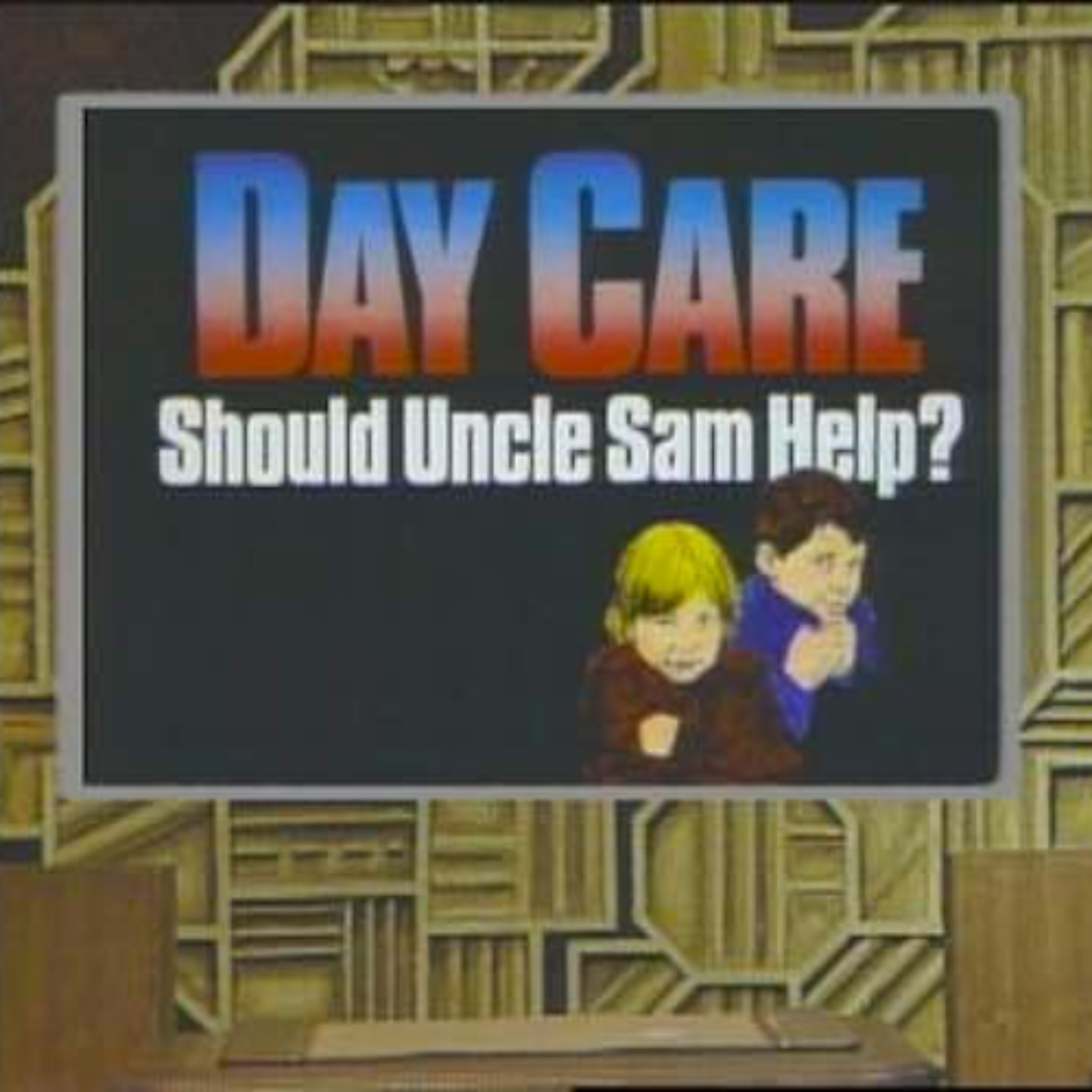
Hagley History HangoutCare in Question: Childcare Policy and the Limits of 20thC Liberalism with Julia FournierWorking parents rely on childcare infrastructure, and as working parent became an ever-larger proportion of the American workforce from the 1960s onward, the lack of accessible, affordable, quality childcare became a major political and cultural issue.
In her dissertation research, Julia Fournier, PhD candidate at the University of North Carolina at Chapel Hill, traces the history of childcare in the United States from the late-1960s to the mid-1990s. Among Fournier’s sources is the archive of Catalyst, Inc., an advocacy group promoting women’s interest in the workplace, held in the Hagley Library. Her findings suggest that a conf...
2025-11-1022 min
Hagley History HangoutFor an 'Orderly' Globalization: Managed Liberalization in US Labor, 1945-1990 with Melanie SheehanAmerican labor unions struggled to adjust to the changing dynamics of the world economy during the mid-to-late twentieth century. Charting this complex process is Dr. Melanie Sheehan, assistant professor of history at Hartwick College and recent Hagley-NEH postdoctoral fellow.
Sheehan has discovered that during the post-WWII moment, union economists supported trade liberalization as a means of multiplying the comparative advantages enjoyed by U.S. producers and exporters so long as it was accompanied by aid to impacted industries and displaced workers. However, while trade liberalization proceeded apace, and foreign competition rapidly gained ground against American made goods, the planned and...
2025-09-0123 min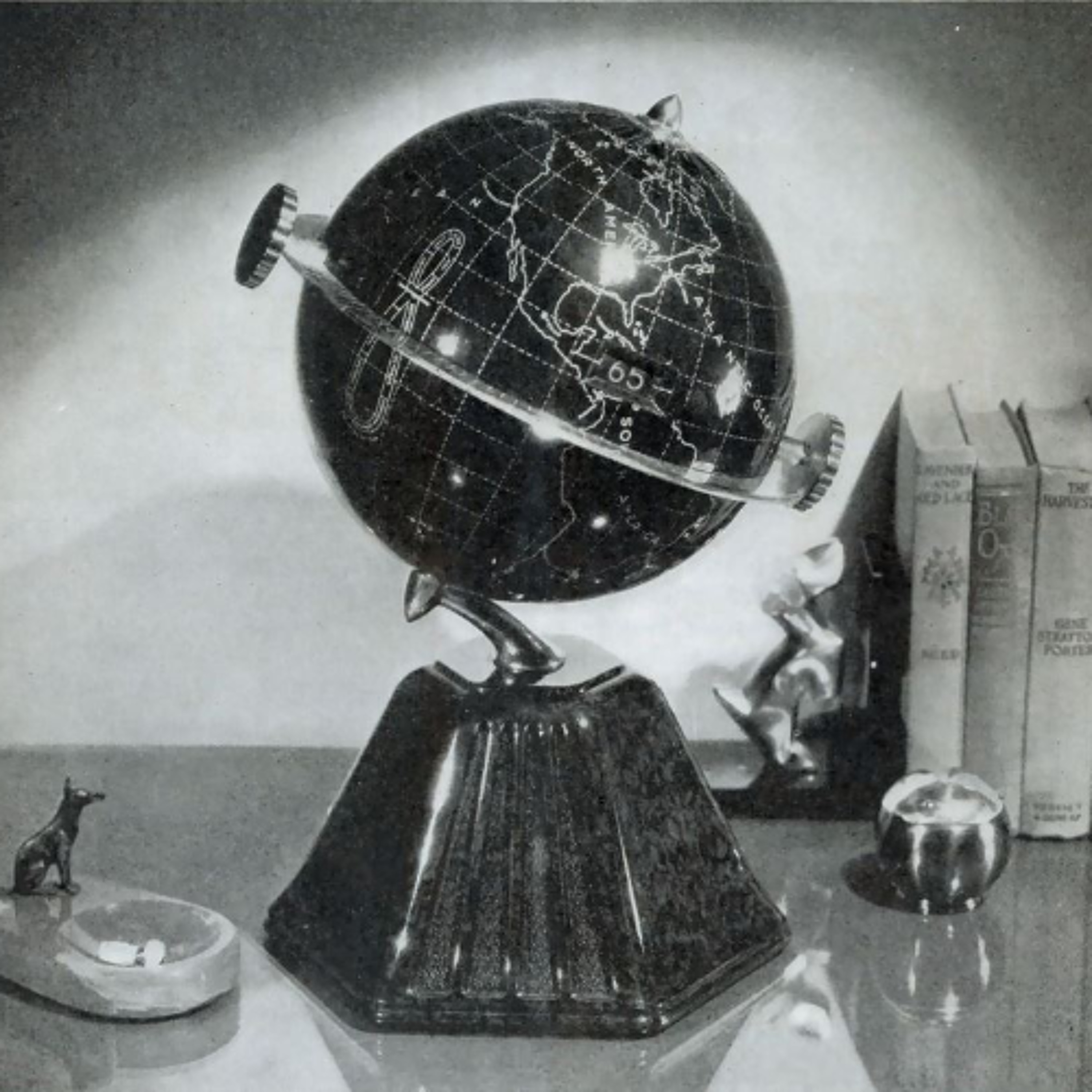
Hagley History HangoutThe Power of Patents: Global Intellectual Property, 1880-1950 with Joël PrazBuilding international cooperation is a slow, painstaking process, one made more difficult when some people don’t see the need for it. To businesses, however, international cooperation is positively necessary as a means to secure intellectual property rights, market share, and profit opportunities.
In his dissertation research, Joël Praz, PhD student at the École Polytechnique Fédérale de Lausanne, is uncovering the significance of the Paris Convention for the Protection of Industrial Property, an international patents union today administered by the World Intellectual Property Organization in Geneva, Switzerland. Using numerous collections held in the Hagley Library, Praz has found...
2025-08-1822 min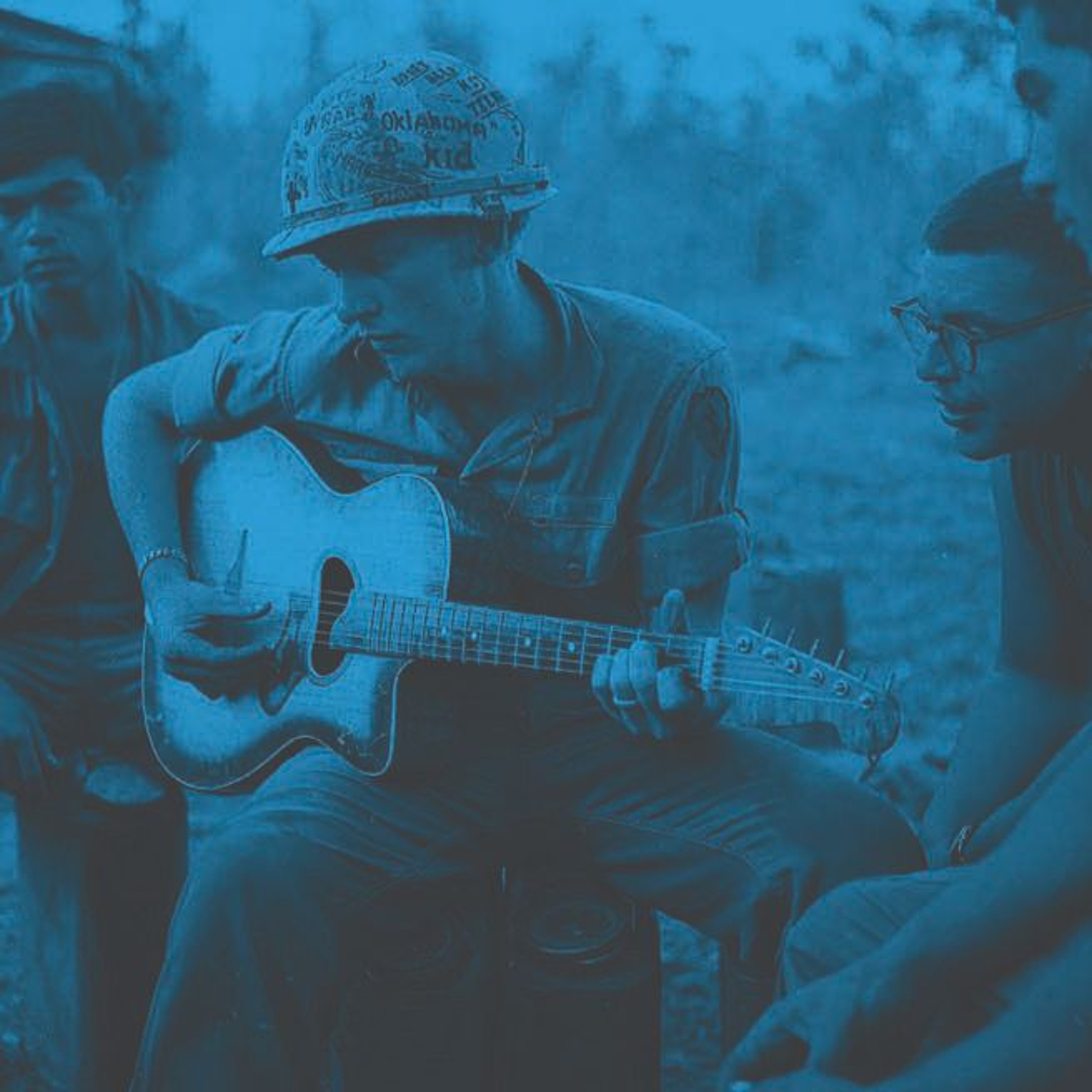
Hagley History HangoutInstrument of War: Music and the Making of America’s Soldiers with David SuismanOur previously scheduled episode featuring Alessandra La Rocca Link has been postponed. In lieu of which, we present this recording made during the Hagley Author Talk featuring David Suisman hosted on February 27th, 2025 by the Hagley Museum and Library.
Suisman discusses his latest book, "Instrument of War: Music and the Making of America's Soldiers."
From the publisher: "Since the Civil War, music has coursed through the United States military. Soldiers have sung while marching, listened to phonographs and armed forces radio, and packed the seats at large-scale USO shows. “Reveille” has roused soldiers in the morning and “Taps” has marked the end...
2025-08-031h 13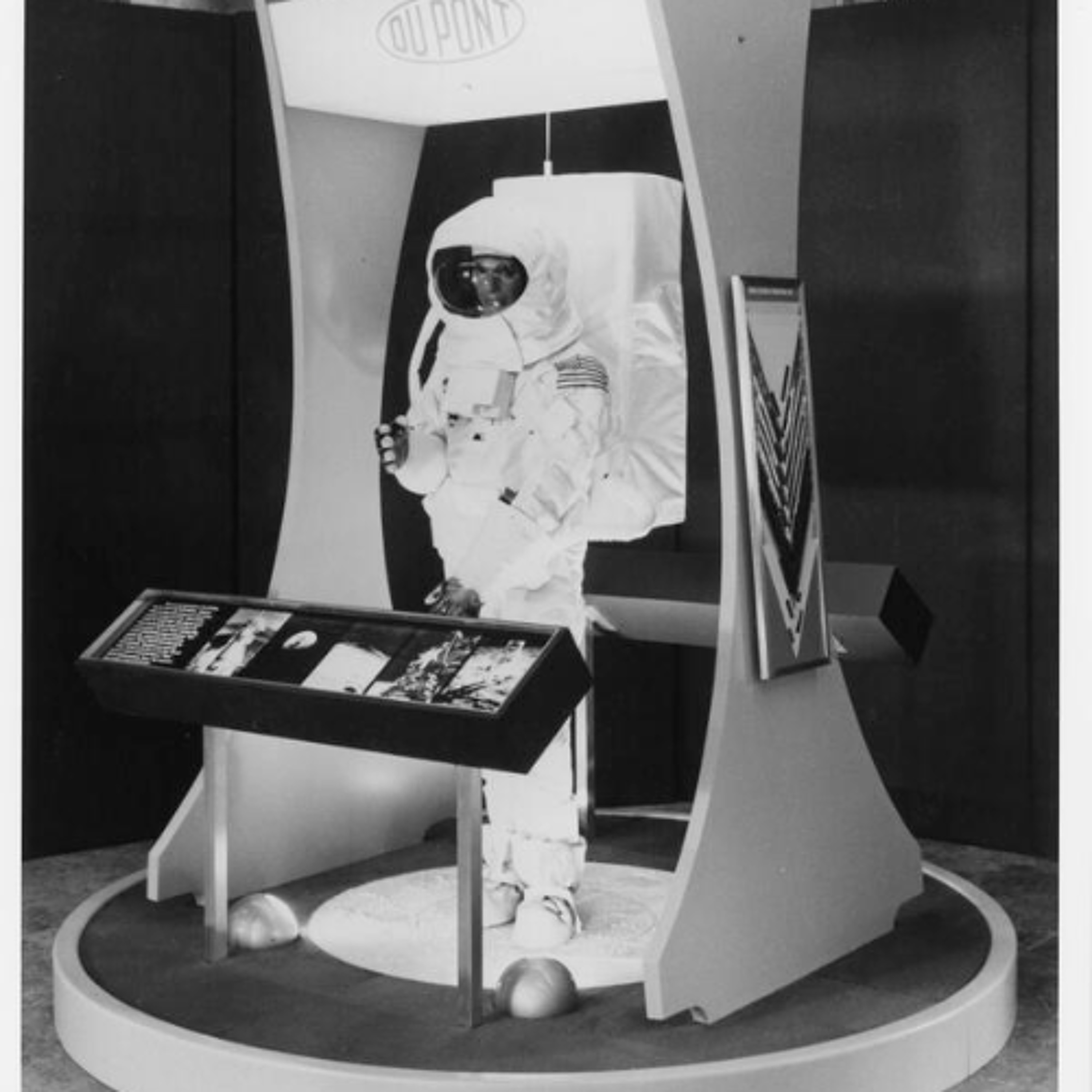
Hagley History HangoutA Stretch of the Imagination: Synthetic Fabrics and the Cold War with Monica GeraffoDuring the Cold War, rival superpowers the USA and the USSR vied with one another for world dominion in many arenas: military, diplomatic, and even haute coture. In the latter connection, French designers played arbiter, judging the synthetic textiles developed under capitalist and communist systems for their value in fashion.
In her dissertation project, Monica Geraffo, PhD candidate at the University of California at Los Angeles, discovers why synthetic textiles played such a central role in the Cold War rivalry between political blocs. Using the extensive DuPont company records held in the Hagley Library, Geraffo highlights the shared interests of...
2025-07-0720 min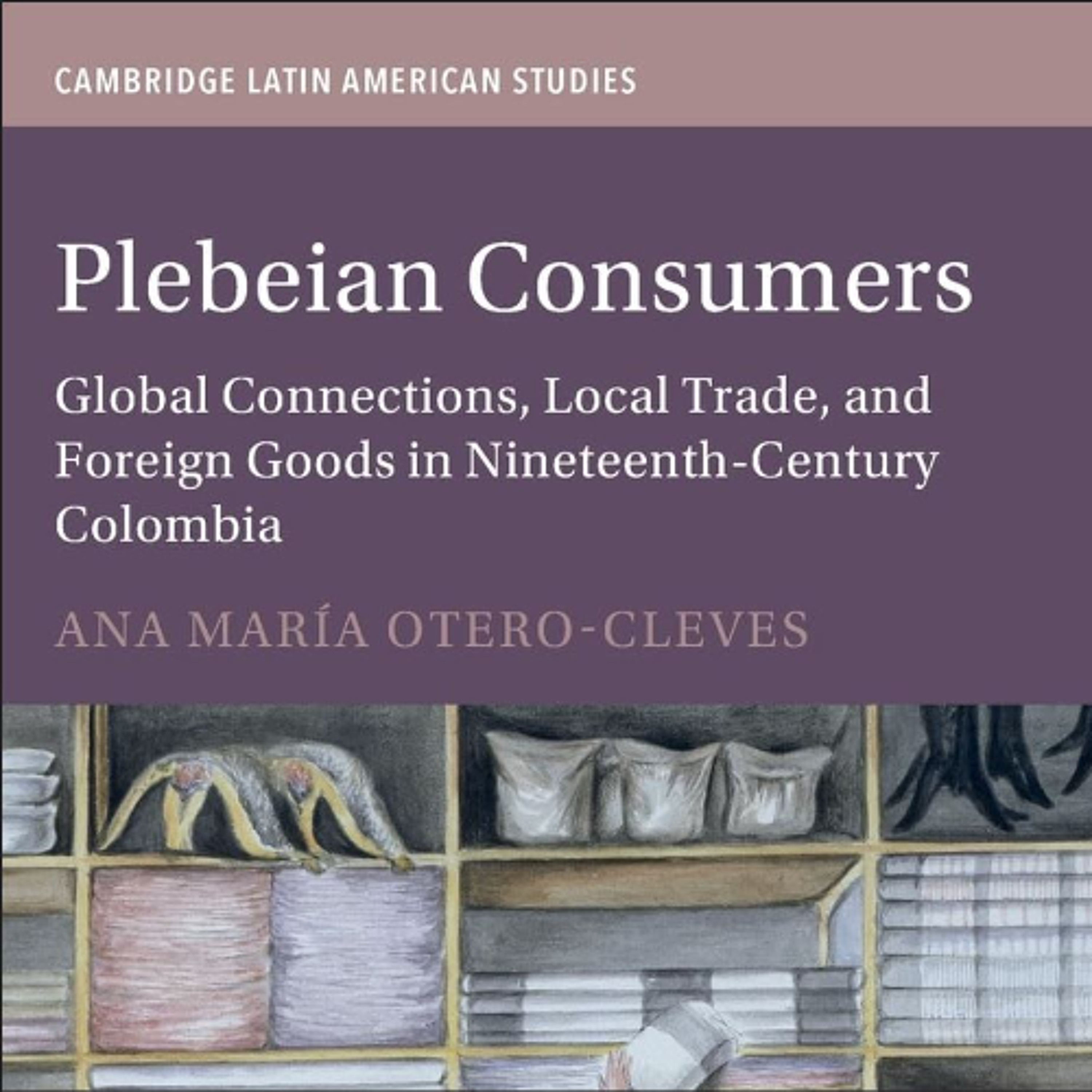
Hagley History HangoutPlebian Consumers: Foreign Goods in Nineteenth-Century Colombia with Ana Maria Otero-ClevesIn this interview with Roger Horowitz, Ana Maria Otero-Cleves discusses the place of important objects in her book Plebian Consumers, especially textiles, machetes, and patent medicine. Otero-Cleves also elaborates on the crucial importance of Hagley’s Lanman and Kemp collection due to its extensive correspondence with Colombian merchants in the late 19th century to obtain supplies for its patent medicines.
From the publisher: “Plebeian Consumers is both a global and local study. It tells the story of how peasants, day workers, formerly enslaved people, and small landholders became the largest consumers of foreign commodities in nineteenth-century Colombia, and dynamic participants of a...
2025-06-2337 min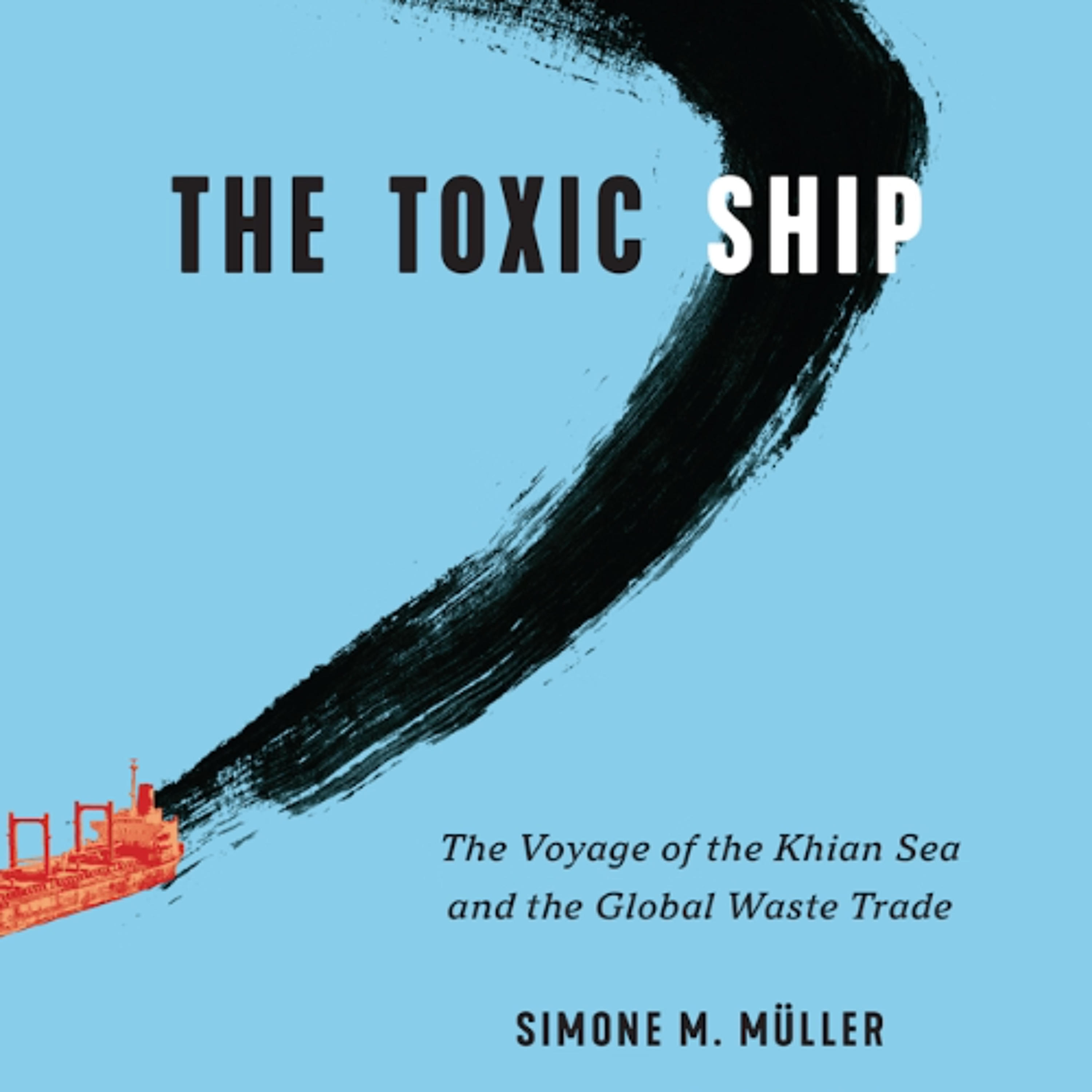
Hagley History HangoutThe Toxic Ship: The Voyage of the Khian Sea and the Global Waste Trade with Simone M. MüllerIn this episode of the Hagley History Hangout we interview Simone M. Muller, professor of global environmental history at the University of Augsburg and author of the Hagley Award-winning book The Toxic Ship: The Khian Sea and the Global Waste Trade.
From the publisher: “An infamous voyage explores the hazardous waste trade and environmental justice -
In 1986 the Khian Sea, carrying thousands of tons of incinerator ash from Philadelphia, began a two-year journey, roaming the world's oceans in search of a dumping ground. Its initial destination and then country after country refused to accept the waste. The ship ended up dump...
2025-06-0932 min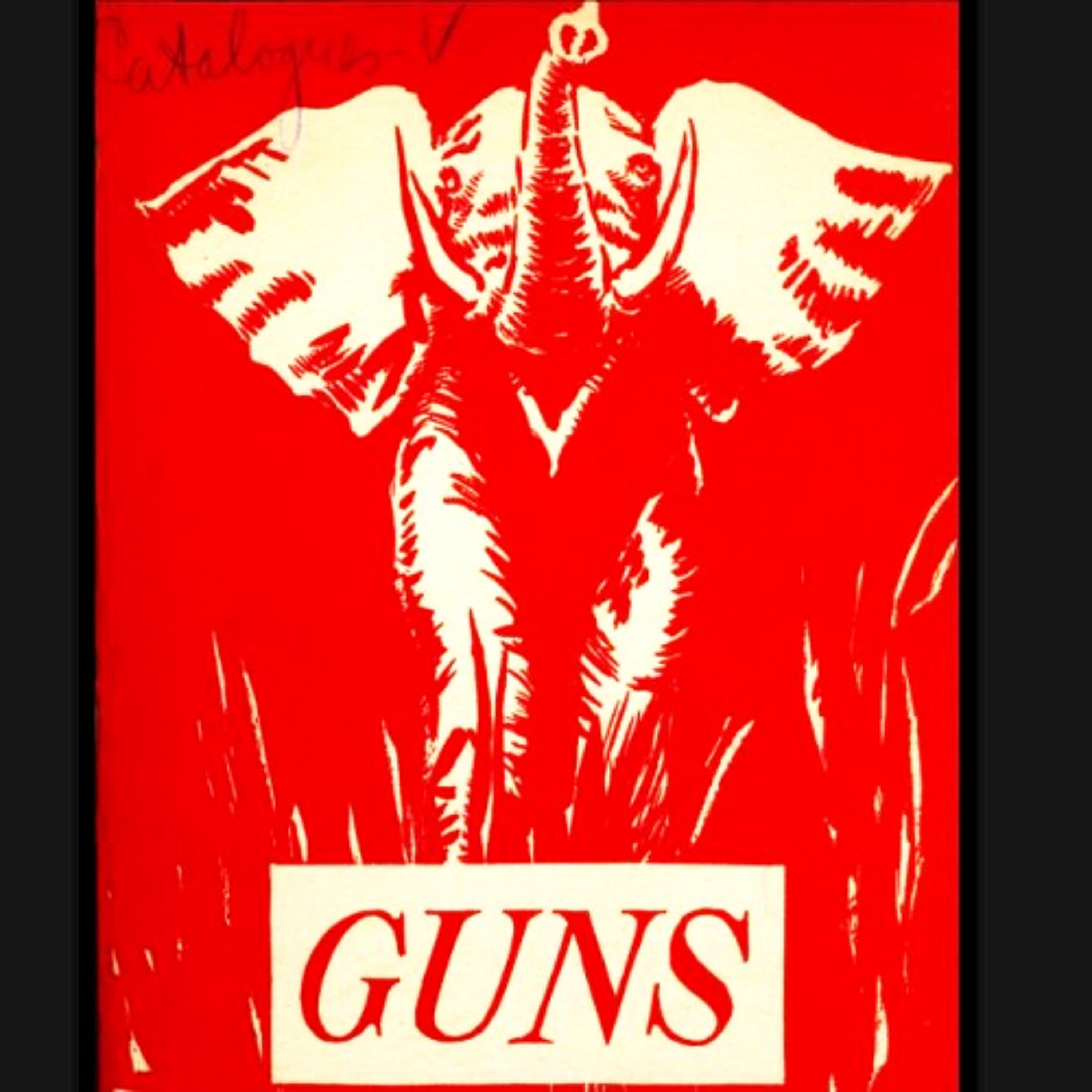
Hagley History HangoutSmoking Gun: How Consumerism & Community Made an American Gun Culture 1870-1920 with Courtney SlavinAmericans, understandably, have an emotionally fraught relationship with firearms, and American gun culture bears the marks of this emotional complexity. When, and perhaps more important, why did the firearm, a tool for killing, come to bear this unique cultural baggage in America? Between 1870 and 1920, when firearms were no longer seen as a tool first, but a consumer good laden with symbolic meaning and community associations.
So argues Courtney Slavin, PhD candidate at Clark University, in her dissertation project. Using a combination of primary sources, including business records, catalogs, and consumer correspondence, all held in the Hagley Library collections, Slavin reconstructs...
2025-05-1136 min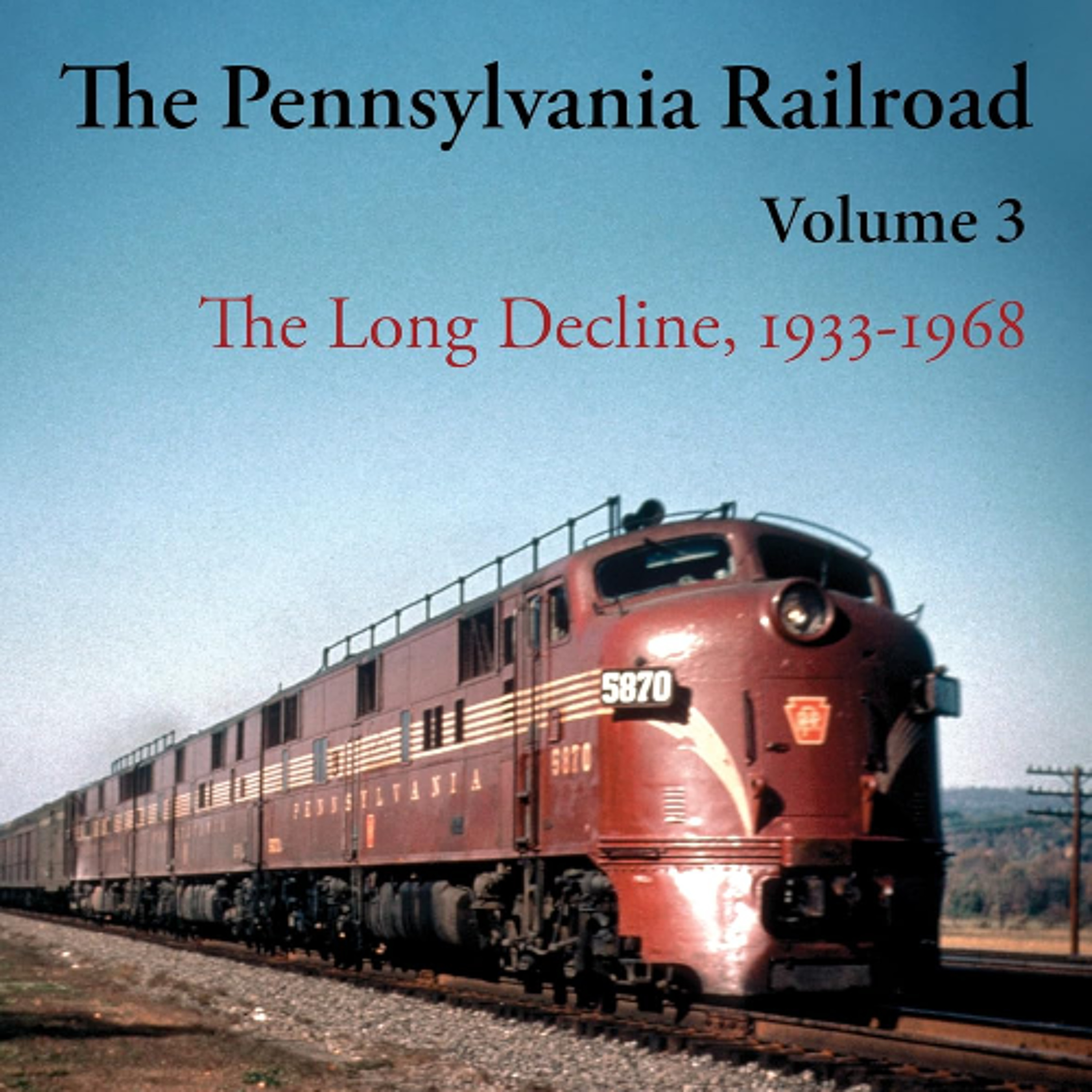
Hagley History HangoutThe Pennsylvania Railroad: The Long Decline, 1933-1968 with Albert ChurellaHagley’s Ben Spohn interviews Albert Churella about the final volume in his landmark trilogy on the history of the Pennsylvania Railroad.
From the publisher: “The final volume of Albert J. Churella's landmark series, The Pennsylvania Railroad, concludes the story of the iconic transportation company, covering its long decline from the 1930s to its merger with the New York Central Railroad in 1968. Despite some parallels with World War I, the experience of World War II had a substantially different impact on the Pennsylvania Railroad.
The introduction of new technologies, personnel, and commuter routes had significant effects on this giant of Amer...
2025-04-283h 16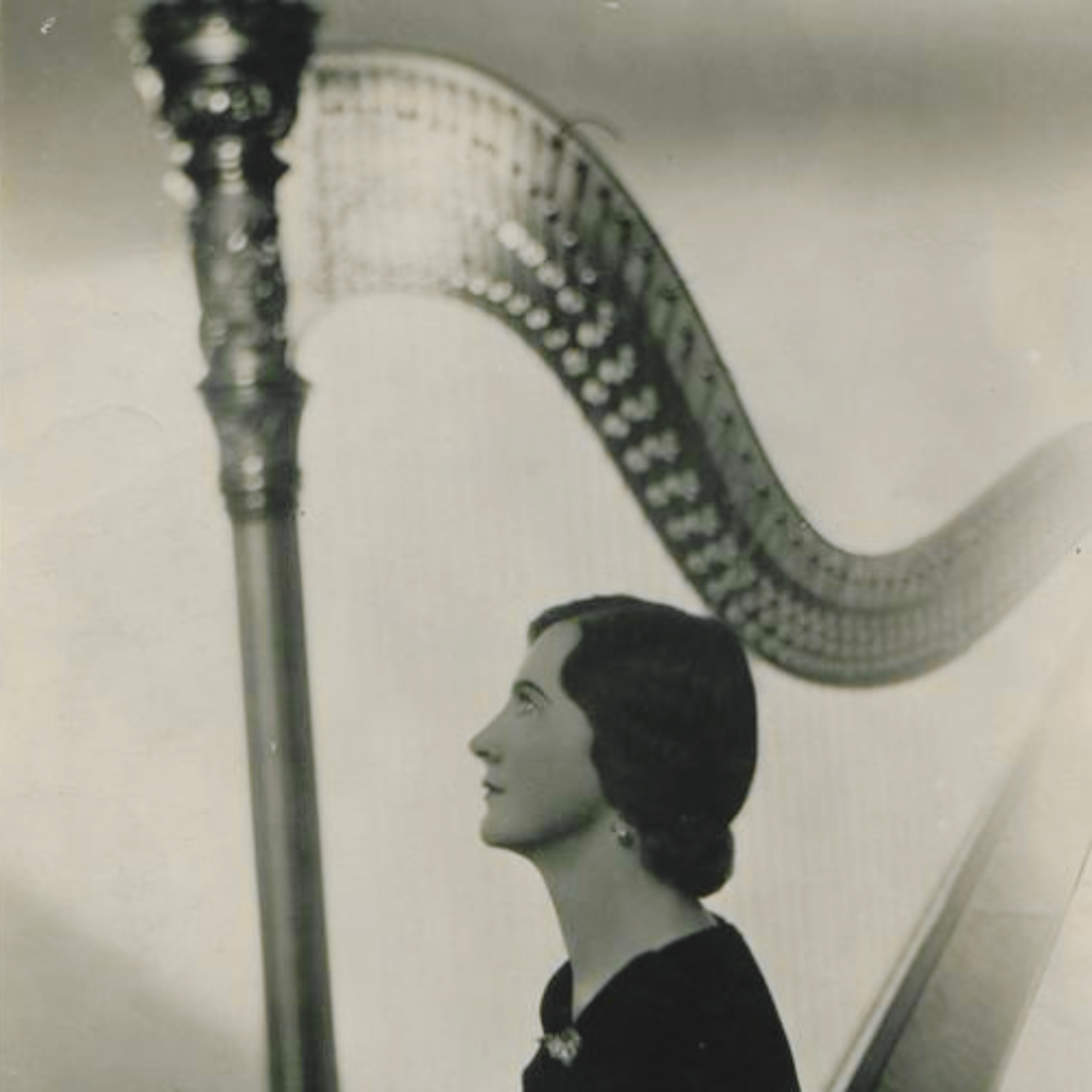
Hagley History HangoutSound & Music in the du Pont Women's World in the Age of Revolution with Rebecca Geoffroy-SchwindenWhere can you find music in the archive? Everywhere, if you know how to look. So argues our guest musicologist Rebecca Geoffroy-Schwinden, associate professor at the University of North Texas and former NEH-Hagley postdoctoral fellow.
In this episode, Dr. Geoffroy-Schwinden discusses her latest book project about amateur music making in the Francophone world during the Age of Revolution. Her particular focus is on the meaning of music in the private lives of women around the Atlantic world, women like those in the du Pont family. When Geoffroy-Schwinden delved into the archive she was stunned and delighted to find music everywhere...
2025-04-1422 min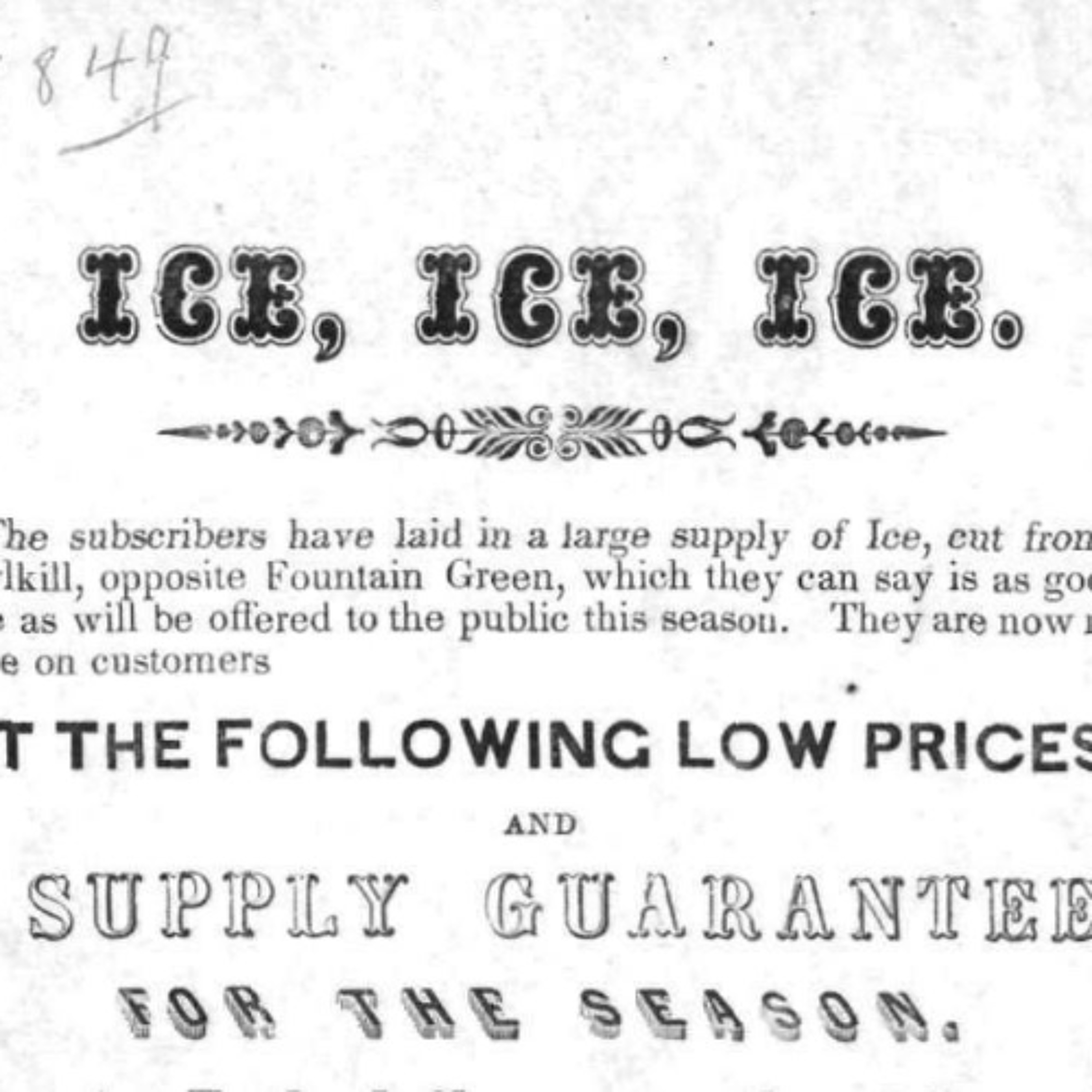
Hagley History HangoutOn Ice: America's Nineteenth-Century Ice Age and the Making of Modern Life with Andrew RobichaudIce, ice, baby. In nineteenth-century America ice was everywhere. Extracted from northern ponds and shipped around the world, ice became a valuable commodity and a vital input in numerous industries.
In his latest research Dr. Andrew Robichaud, Associate Professor of History at Boston University, explores the ice industry in nineteenth-century America and its many and complex impacts. From fruit to beer, from cattle carcasses to human cadavers, American ice had its role to play.
In support of his work, Dr. Robichaud received funding from the Hagley Center for the History of Business, Technology, and Society at the Hagley Museum and...
2025-03-1732 min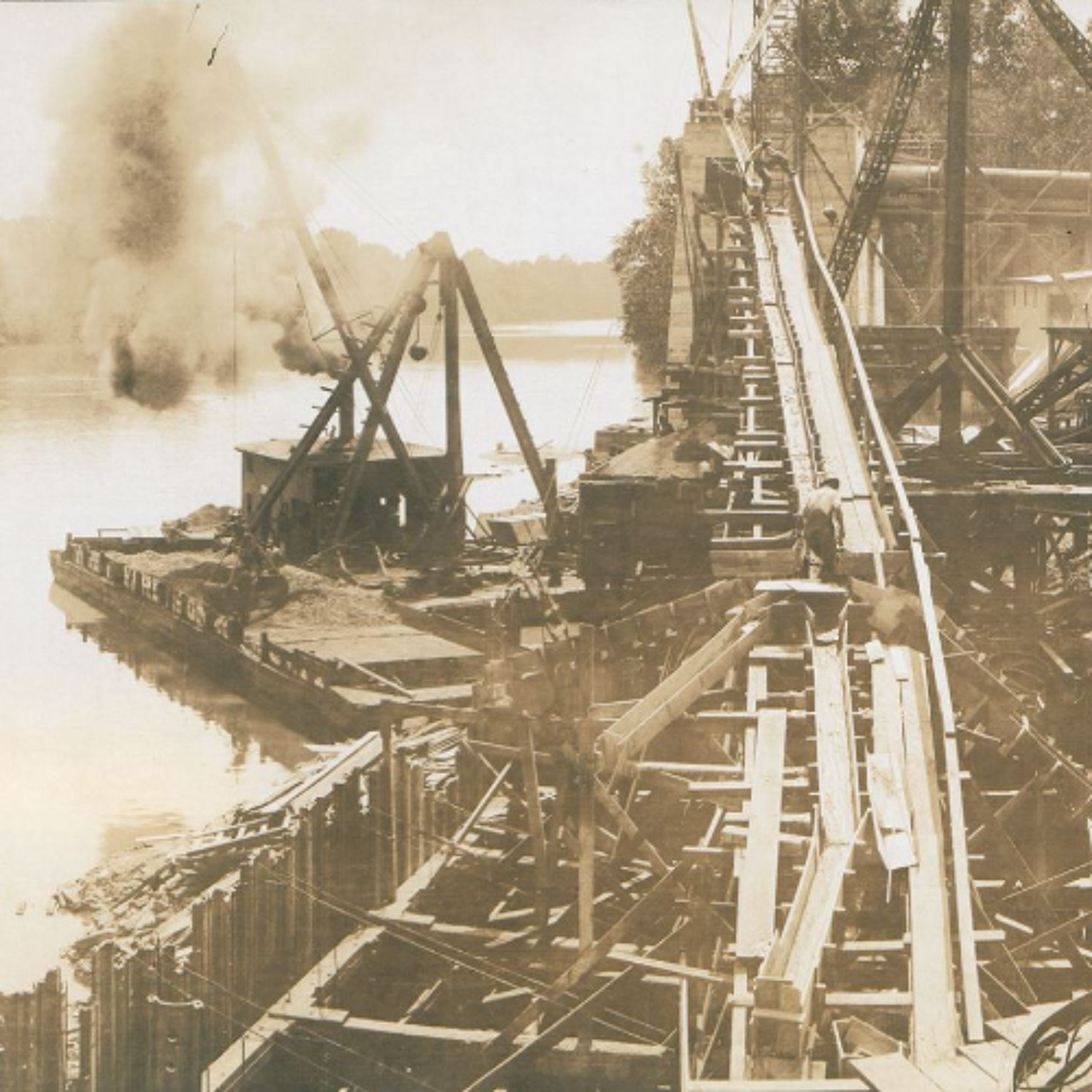
Hagley History HangoutThe Nature of War: Environment and Industry in the U.S. During WWI with Gerard FitzgeraldFar from the battlefield the First World War spurred a massive increase in industrial output in the United States. Arms and armaments, ships and steel, a vast stream of materiel poured from American factories, mines, and mills to feed the insatiable maw of war. The consequent strain placed on American railroad infrastructure left it vulnerable to environmental disruption, such as that caused by the great blizzard of 1916-17. These developments marked a significant chapter in the environmental history of American industry.
In this episode of the Hagley History Hangout we chat with Gerard Fitzgerald, visiting fellow at the Greenhouse Center...
2025-02-1726 min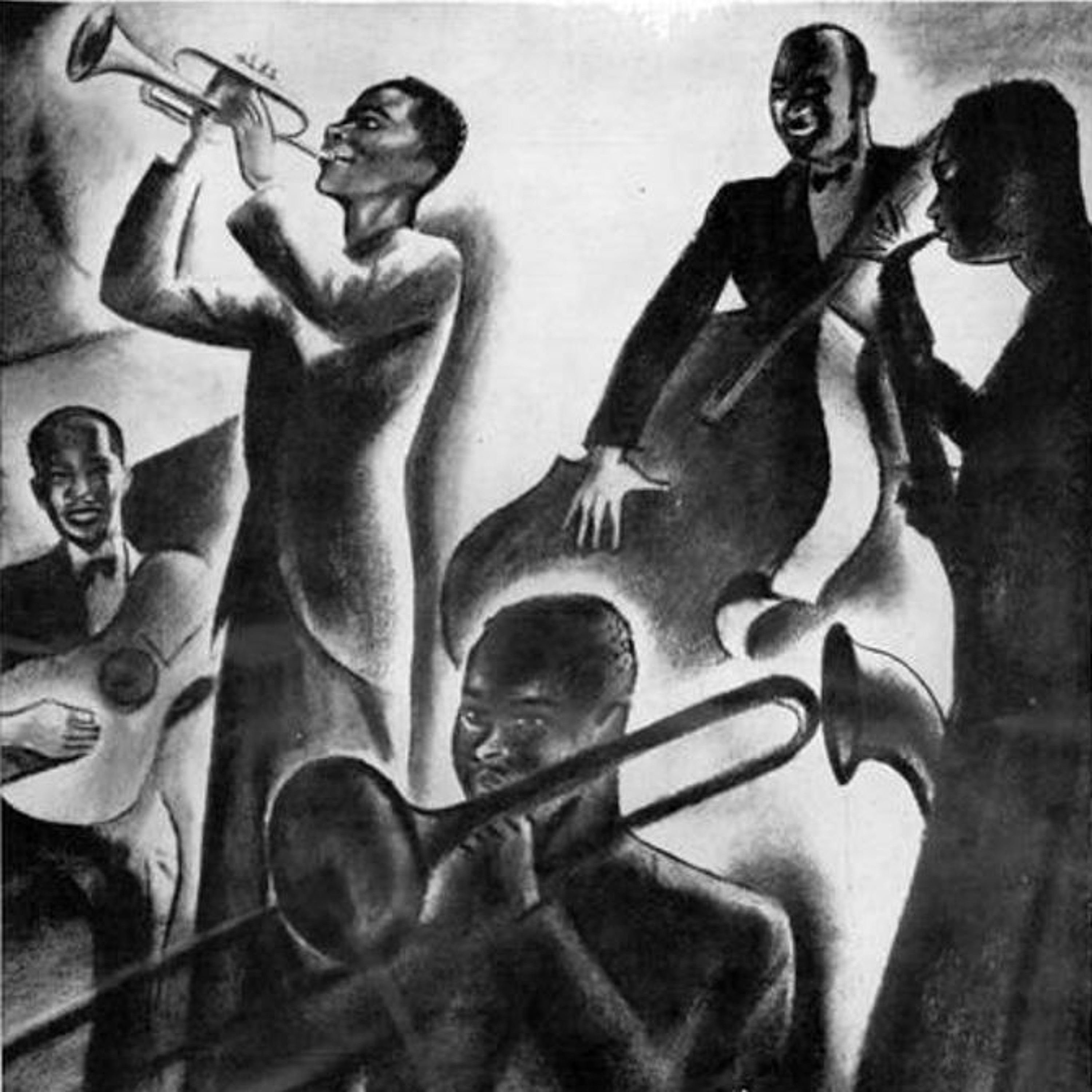
Hagley History HangoutRacial Economies of Early Jazz with Stephanie DoktorWhat is jazz and when did it begin? Music scholars do not agree. Taking an archival perspective, however, clarifies the dilemma and allows us to see jazz where people at the time performed, recorded, consumed, and discussed what they thought of as jazz music. The emergence of jazz as an economic force, and a defining cultural aspect of an era, were tightly bound up in the prevailing system of racism, segregation, and inequality in the early twentieth-century United States.
In her latest book project, Stephanie Doktor, assistant professor of Music Studies at Temple University, explores the racial context within which...
2024-12-2328 min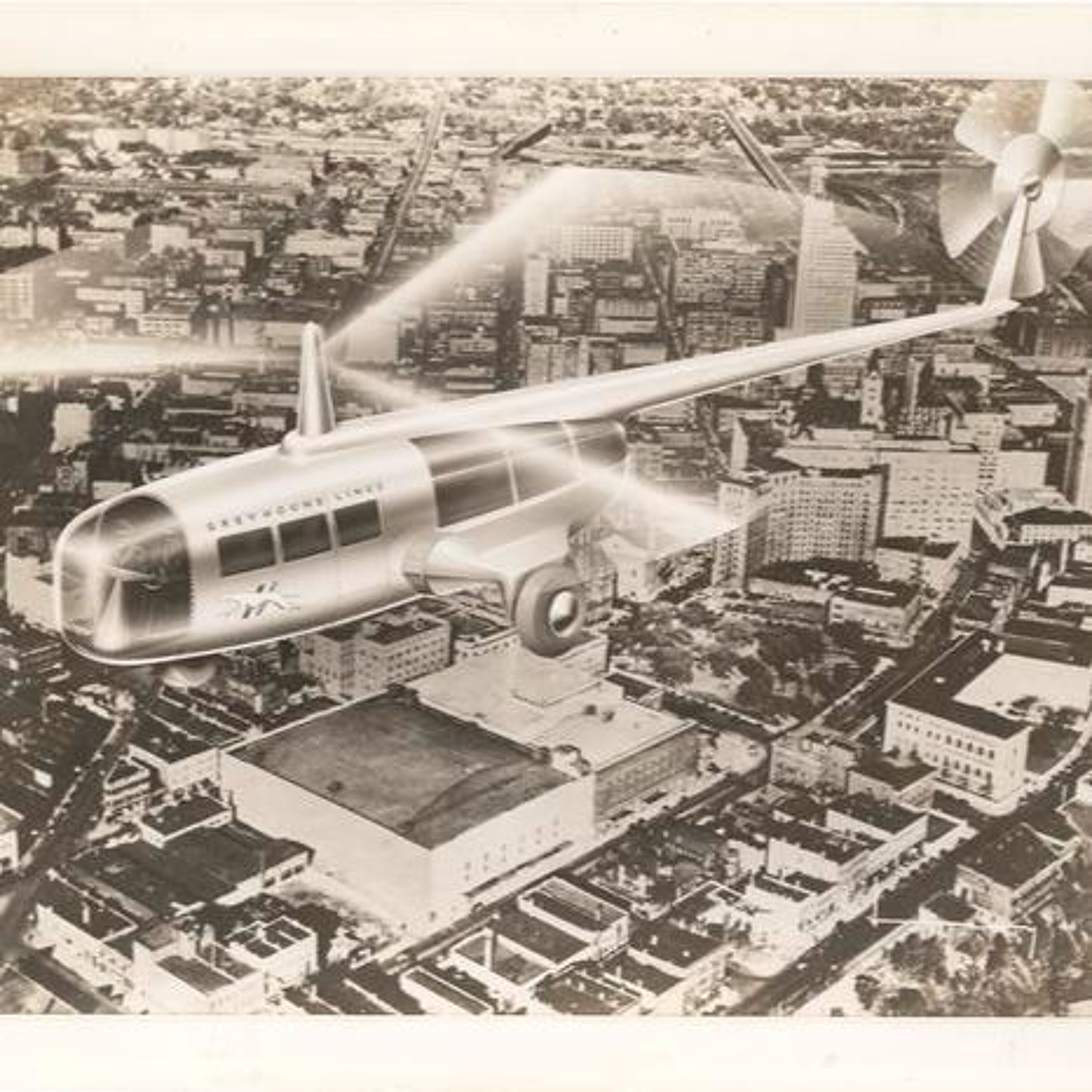
Hagley History HangoutManagement as Design: Industrial Designers and Business Culture with Penelope DeanTracing the circulation of ideas can cast light on patterns of interaction between various people and institutions in the past. During the mid-late twentieth century, a circuit of ideas linked business culture, industrial designers, academia, and related professional organizations. The movement of values, techniques, and perspectives between these distinct but interpenetrative spaces illuminates how they related to one another in historical context.
In her latest research Penelope Dean, professor of architecture at the University of Illinois at Chicago, uncovers this movement of ideas and uses it to bring business and design histories into conversation. Using numerous collections held in the...
2024-12-0924 min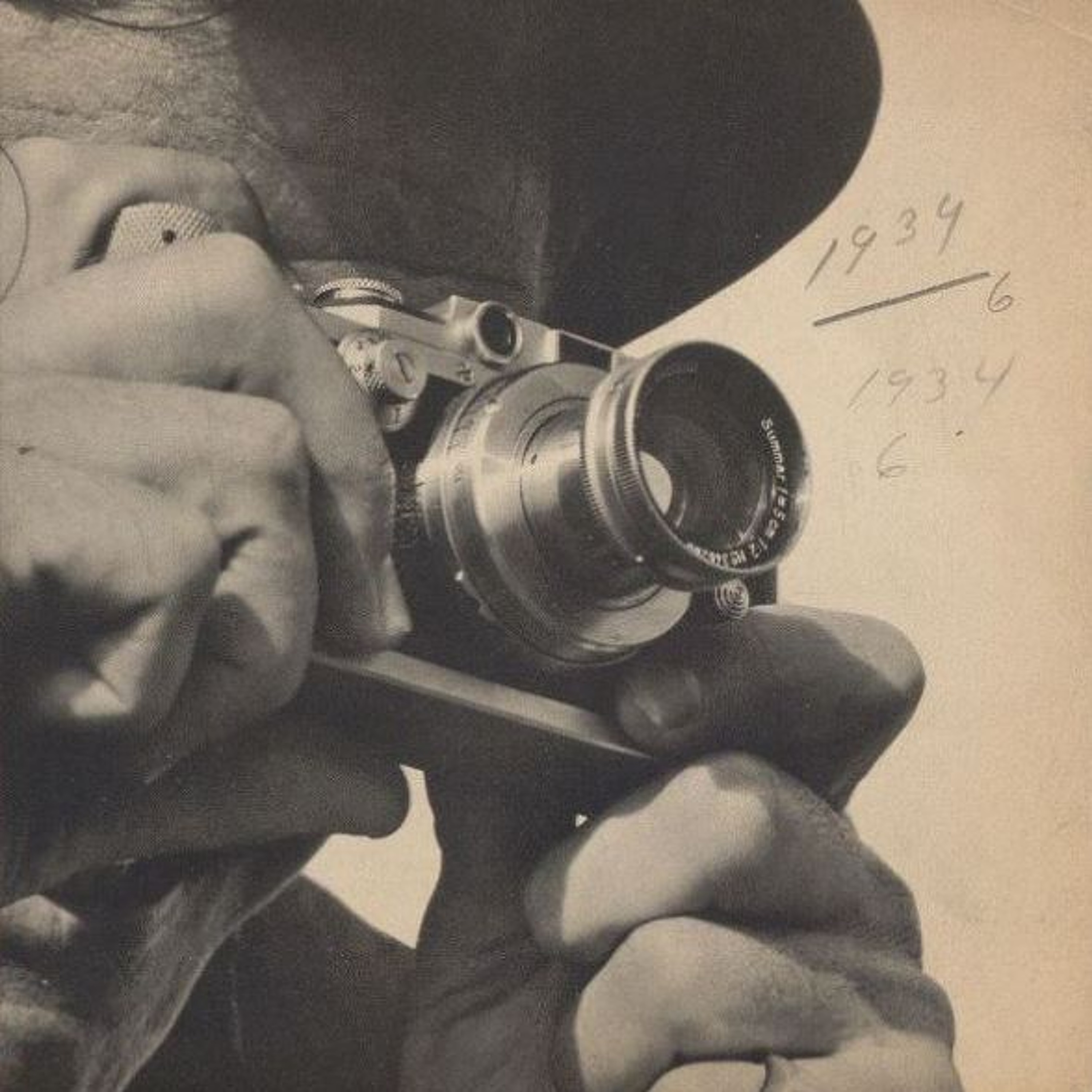
Hagley History HangoutNegating Visions: Cultural Memory and Media Negatives with Stefka HristovaThe positive image cannot exist without the negative, and the relationship between the two reveals the fundamental nature of the image as fungible, media as a process, and truth value as a matter of interpretation. Scholarship and conservation therefore have a profound responsibility to collect, preserve, and interpret media negatives for what they reveal about the relationship between positive images and the truth.
In her latest project, Dr. Stefka Hristova, associate professor at Michigan Technological University, theorizes the relationship between media negatives, their positive counterparts, and the truth value accessible through a careful study of both. Using the collections held...
2024-11-2514 min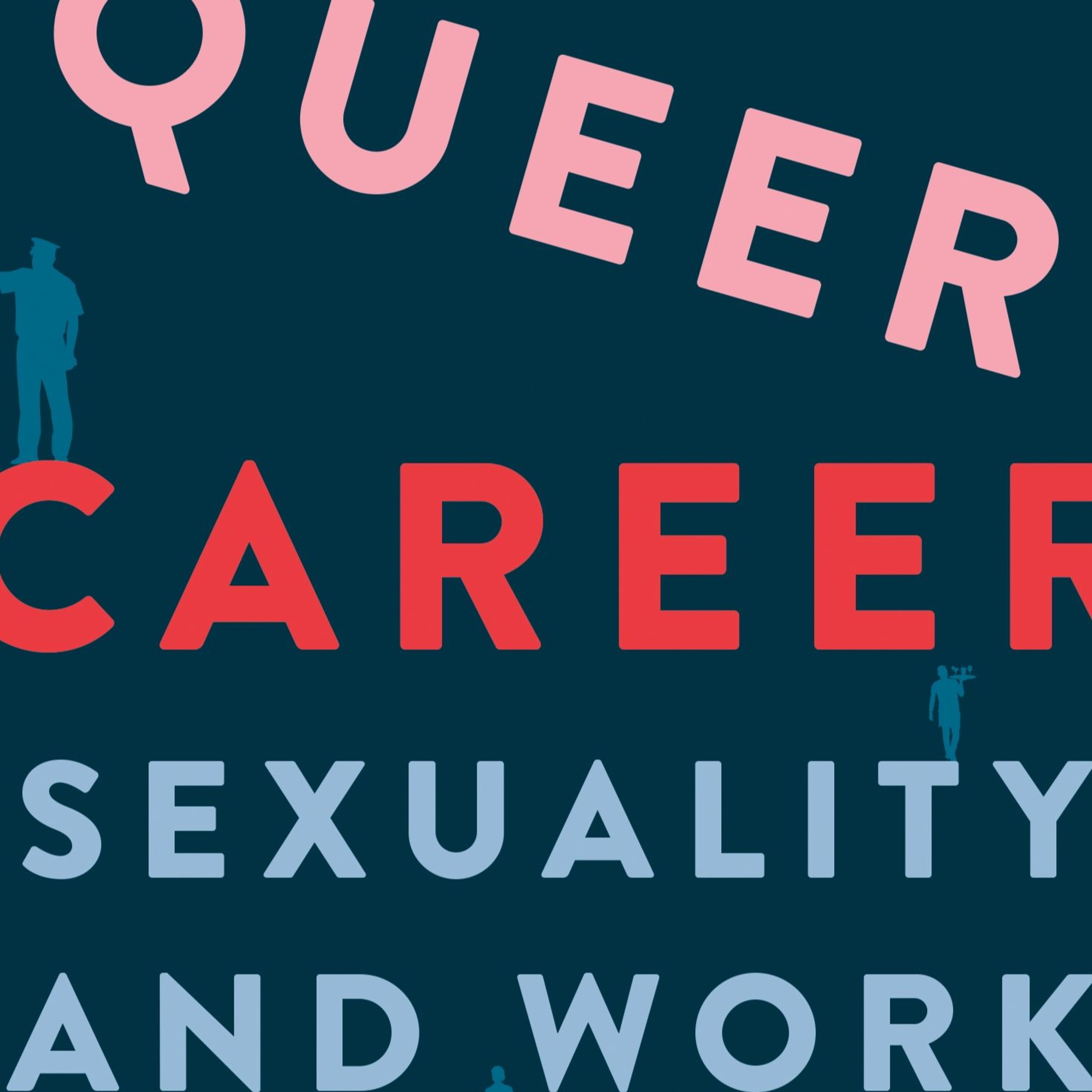
Hagley History HangoutQueer Career: Sexuality and Work in Modern America with Margot CanadayIn this episode of Hagley History Hangout Roger Horowitz interviews Margot Canaday about her remarkable book Queer Career: Sexuality and Work in Modern America that received the received 2024 Hagley Prize for the best book in business history that year.
Canaday’s Queer Career’s rincipal focus is on the private sector, business enterprises large and small, and traces the opportunities, obstacles, and accomplishments of LGBT+ people as they sought to make a living from the 1950s through today. She emphasizes that as federal and many state agencies routinely refused to hire LGBT+ people, their most important sources of employment was in t...
2024-11-1149 min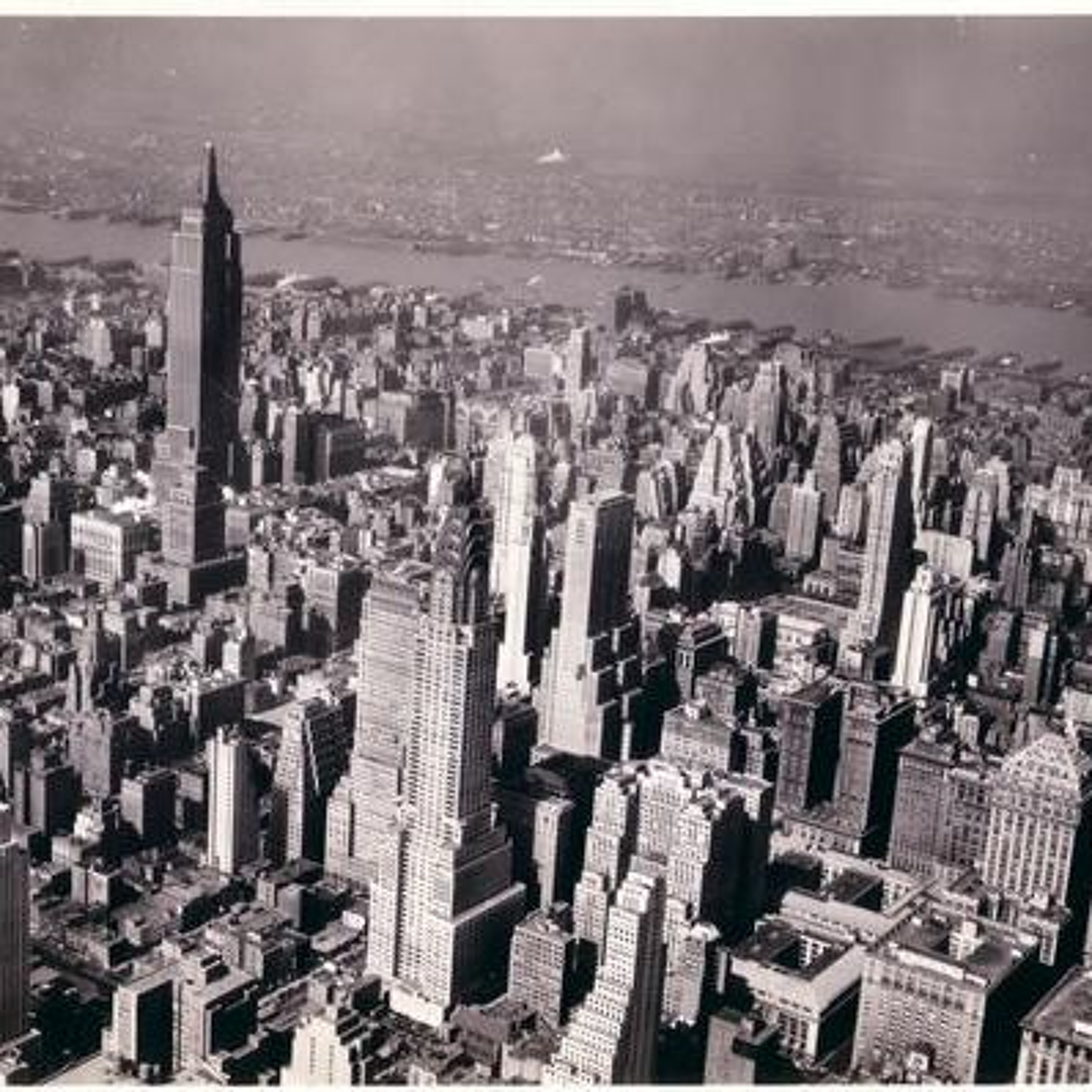
Hagley History HangoutNew York City’s Urban Heat Island, 1860-2020 with Kara SchlichtingExcessive heat has presented a problem for public health officials in New York City since the mid-nineteenth century building boom that covered the island of Manhattan in bricks, concrete, and other heat-storing materials. Prior to that, however, Americans had noticed that cities were warmer than their surrounding countryside as early as the 1790s. The phenomenon now known as the “urban heat island” has shaped the bodily experiences and collective destinies of millions.
In her latest research, Dr. Kara Schlichting, associate professor at the City University of New York, uncovers the complex relationship between the evolving built environment of the city, the...
2024-10-2829 min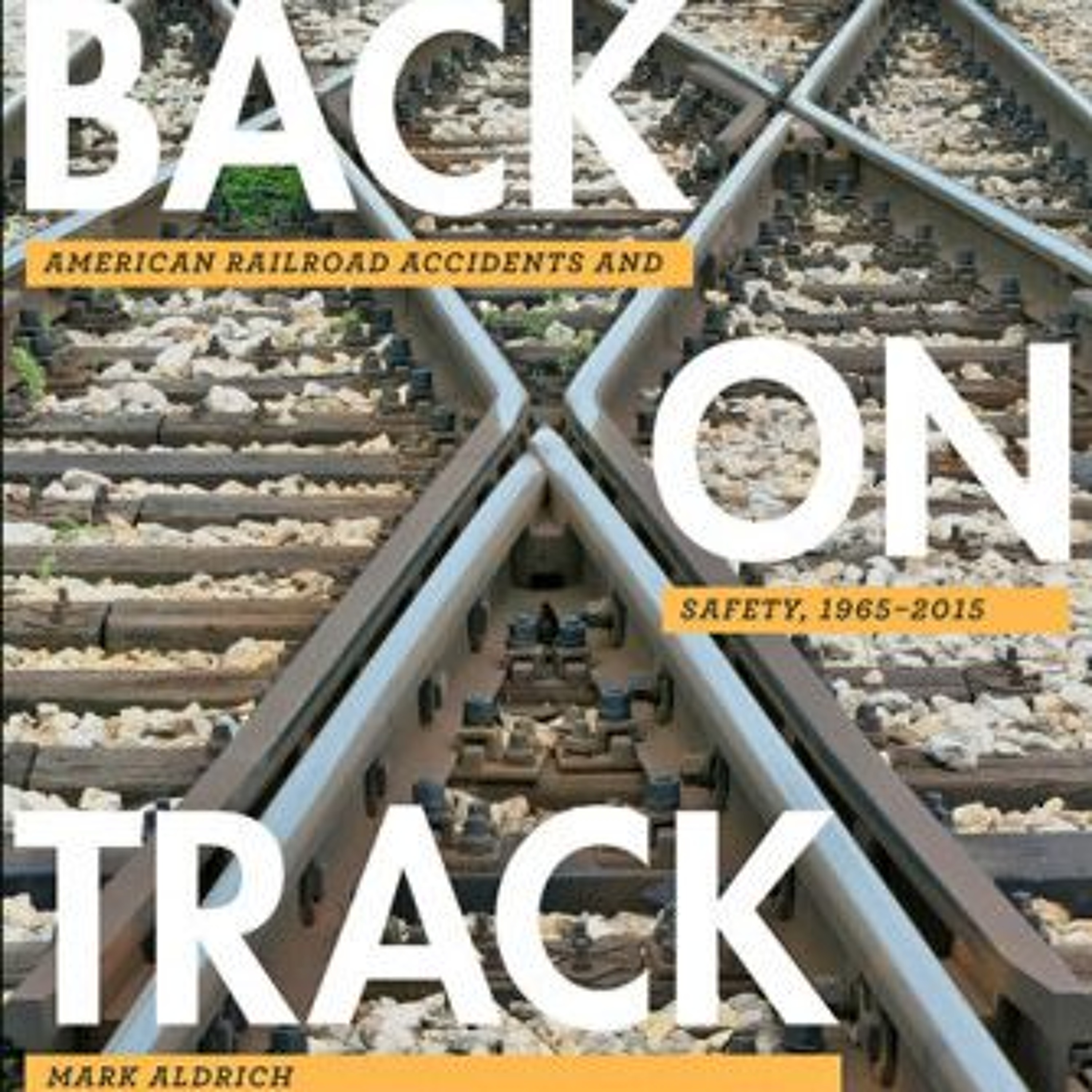
Hagley History HangoutBack on Track American Railroad Accidents and Safety 1965-2015 with Mark AldrichBen Spohn interviews Mark Aldrich about his 2018 book, Back on Track American Railroad Accidents and Safety 1965-2015. This period marked a decline in safe operating on American railroads through the 1970s which were followed by a period of increased safety and profitability for American railroads. Aldrich makes the case that the joint factors of economic deregulation through the Staggers Act and the federalization of railroad safety via the Federal Railroad Administration (FRA) drew attention to safety issues on the railroad like poor track condition, unsafe grade crossings, or engineer fatigue and left railroads with not only incentives to become safer...
2024-09-3057 min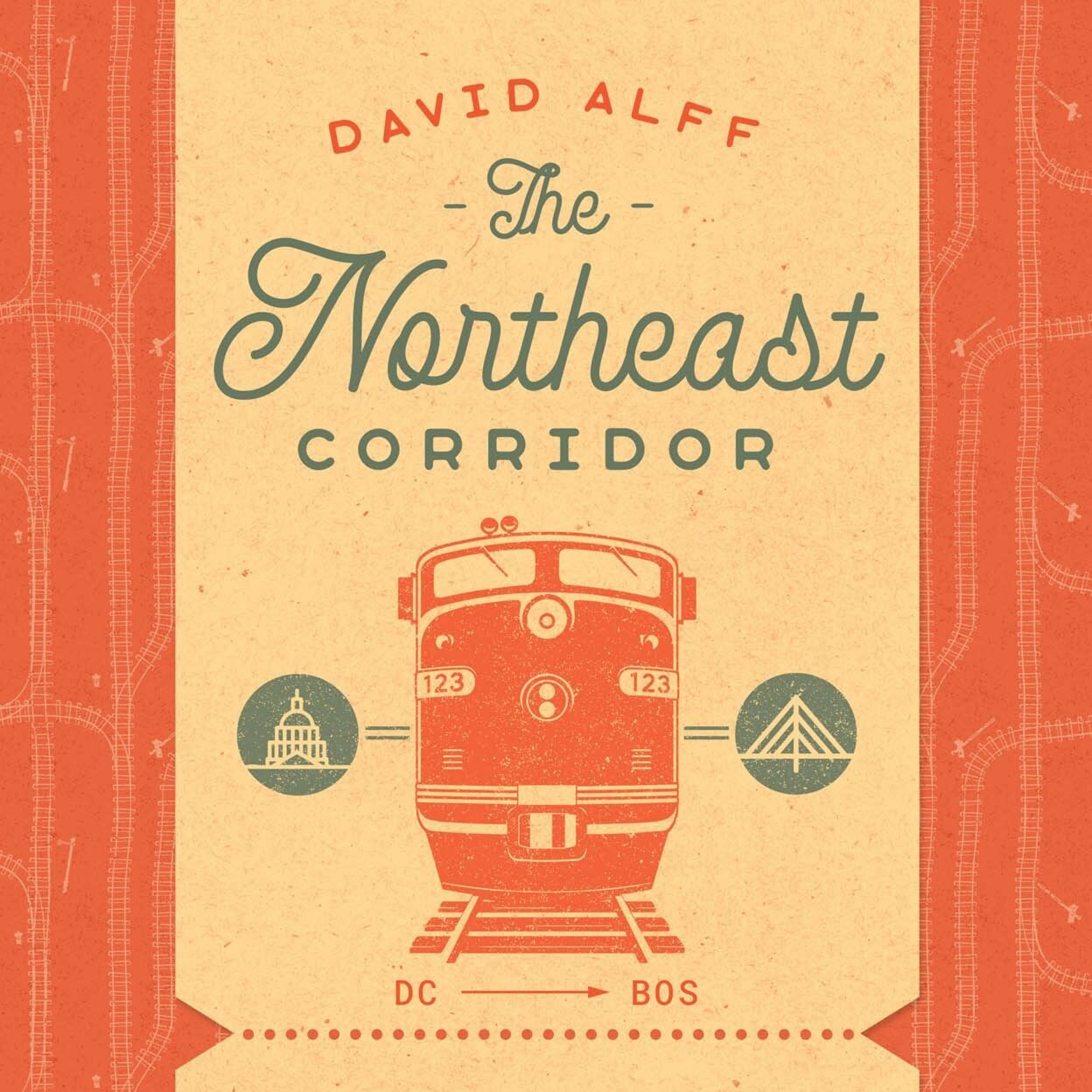
Hagley History HangoutThe Northeast Corridor: The Trains, the People, the History, the Region with David AlffHagley’s Ben Spohn interviews David Alff about his recent book: The Northeast Corridor: The Trains, the People, the History, the Region. In this comprehensive history of America’s most heavily-traveled rail line, Alff shows ow what began as a series of disconnected nineteenth century rail lines became the spine connecting America’s Megalopolis, the dense urban forest connecting Boston with Washington D.C., with New York,Trenton, Philadelphia, Wilmington, and Baltimore in between.
As Alff explains, the Northeast Corridor is always arriving as the many small railroads that provided service to the Corridor, after over a century of corporate merger...
2024-08-0547 min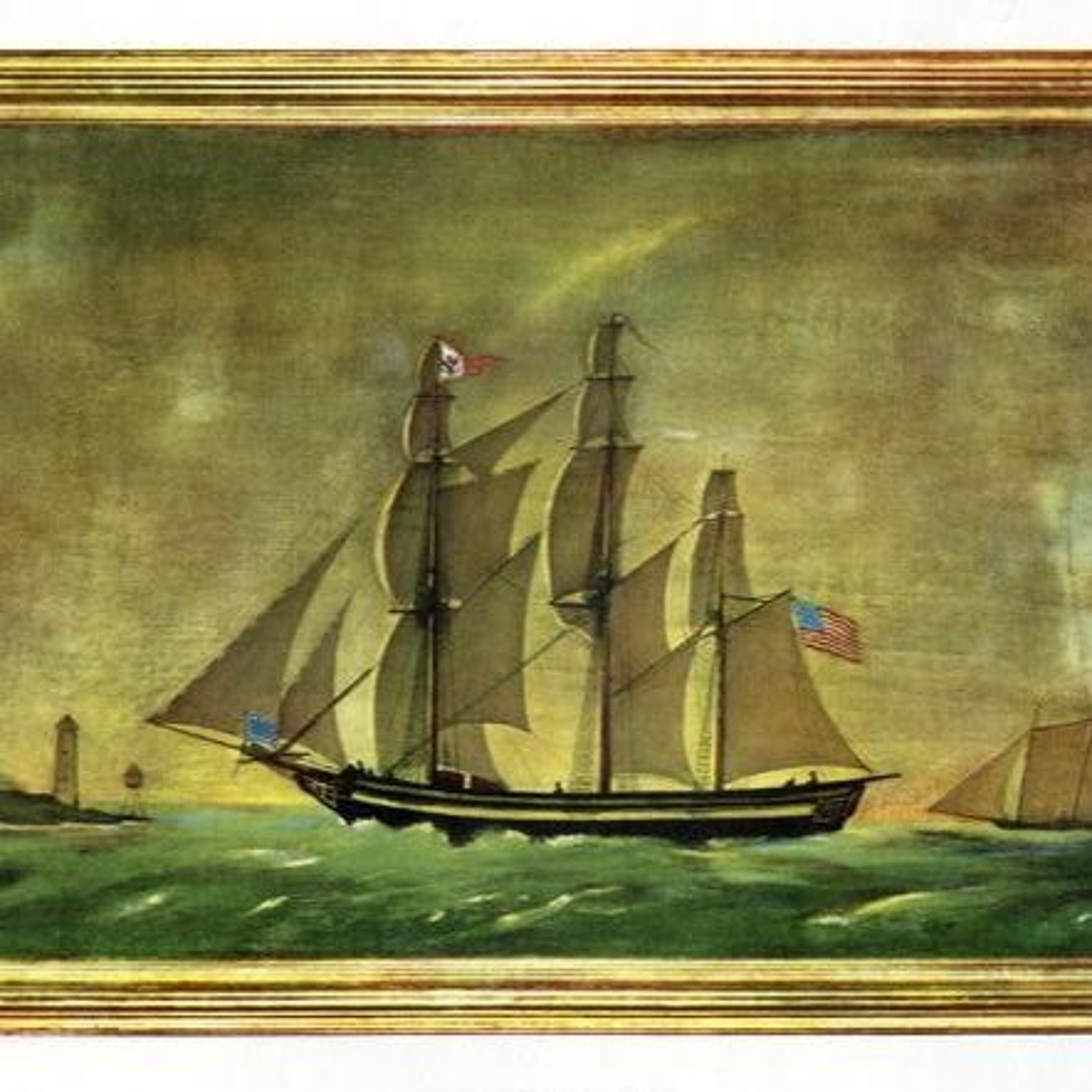
Hagley History HangoutThe Channel Islands: Borderlands Migration in the Atlantic World, 1763-1815 with Sydney WattsThe Channel Islands lie between Britain and France, and historically occupied a space between Europe and the Americas within circuits of movement around the Atlantic world of the eighteenth and early-nineteenth centuries. This position as a place in-between gave the Channel Islands special significance to migrants, refugees, smugglers, and pirates.
In her latest book project, Dr. Sydney Watts, associate professor of history at the University of Richmond, uncovers the story of the Channel Islands as a locus of trade and migration. Her particular focus is on French refugees and migrants who left France during the Revolution and Napoleonic Wars for...
2024-07-0827 min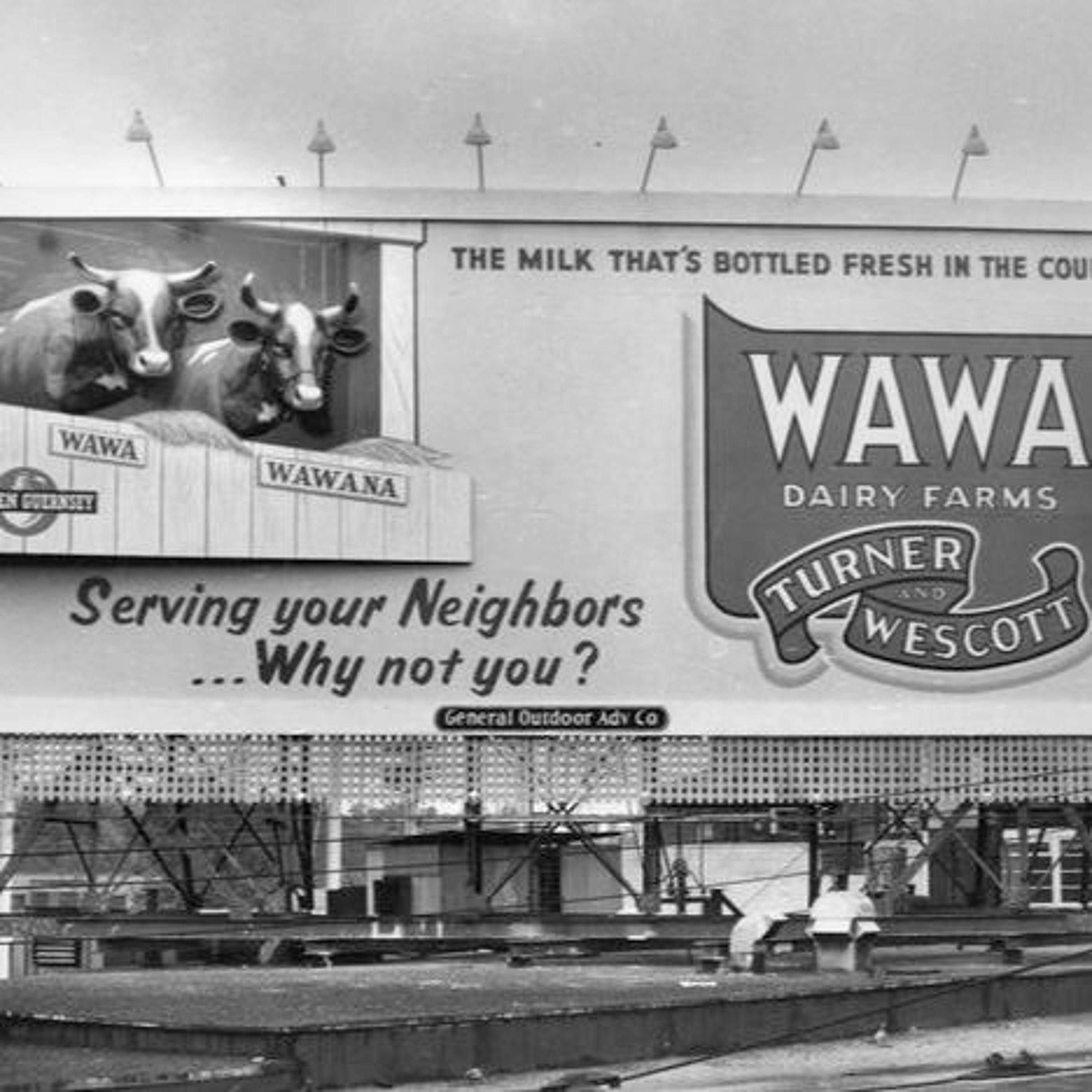
Hagley History HangoutCommercial Attention: Advertising, Space, & New Media in the U.S. with Jacob SaindonThe “attention economy” has gotten lots of press in recent years as tech companies and advertising firms have begun to perceive human attention as a limited resource and to fight for their share of the potential revenue to be generated by it. However, the concept of human attention as an economically valuable resource goes back well beyond digital technologies at least to the early years of mass media and motivational psychology.
In his dissertation project, Jacob Saindon, PhD candidate in geography at the University of Kentucky, explores the historical and spatial aspects of the American attention economy in its present digi...
2024-06-1027 min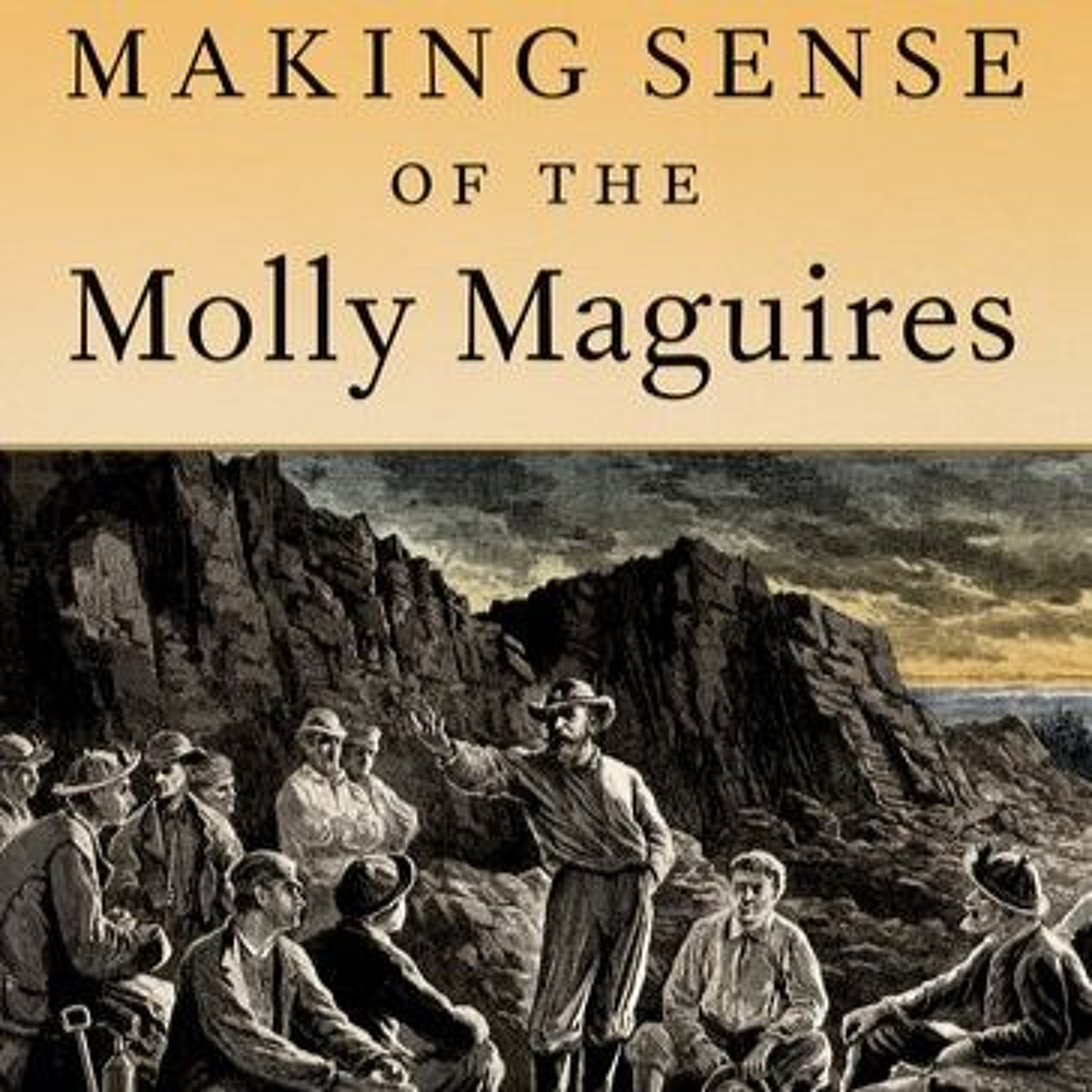
Hagley History HangoutMaking Sense of the Molly Maguires with Kevin KennyIn this episode, Ben Spohn Interviews Kevin Kenny on his book Making Sense of the Molly Maguires which recently had a special 25th anniversary release. The Molly Maguires were a secret organization operating in Pennsylvania’s Coal Region during a period of labor unrest in the 1860s and 1870s. This period culminated in the execution of twenty suspected members of the Molly Maguires executed for the murder of sixteen men during this period. Since then there has been disagreement, over who the Molly Maguire’s were, what they did, and their motivations. Kenny argues that this is an inadequate understanding of t...
2024-05-131h 07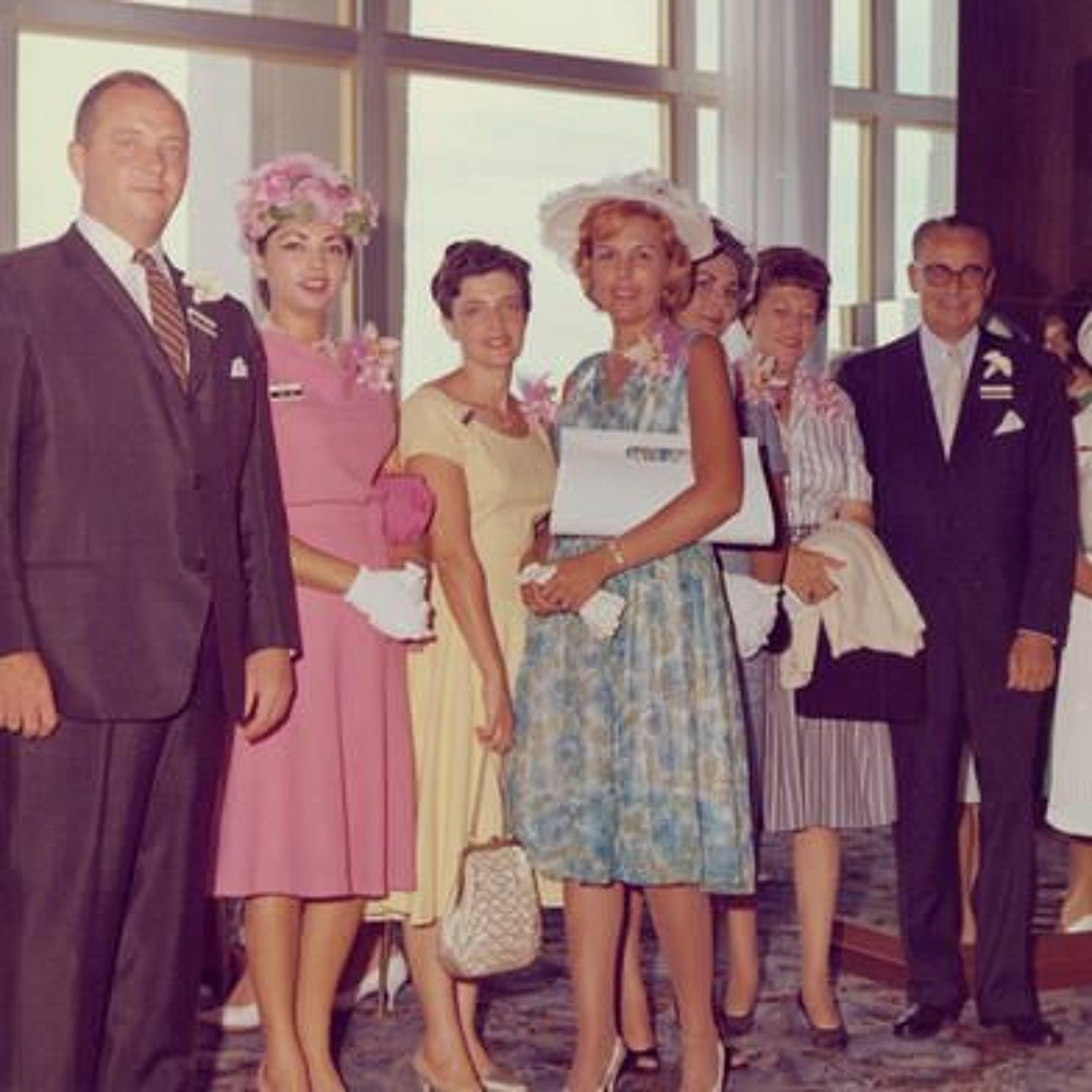
Hagley History HangoutThe Only Way Is Up: Self-Employment in Britain, 1950-2000 with Amy EdwardsThe self-employed have many motivations for choosing or accepting their working arrangements. A business model that taps into the desire for people to “work for themselves” can mobilize the capital, networks, and labor of large numbers of people at comparatively low cost. Whether through franchising, direct-selling, or other methods, major firms became enablers, advocates, and beneficiaries of self-employment.
The latest research by Dr. Amy Edwards, senior lecturer at the University of Bristol, focuses on the tangle of personal and corporate interests around self-employment. While the top-down element of the franchise or direct-sales relationship is evident, the personal motives of the self...
2024-04-1521 min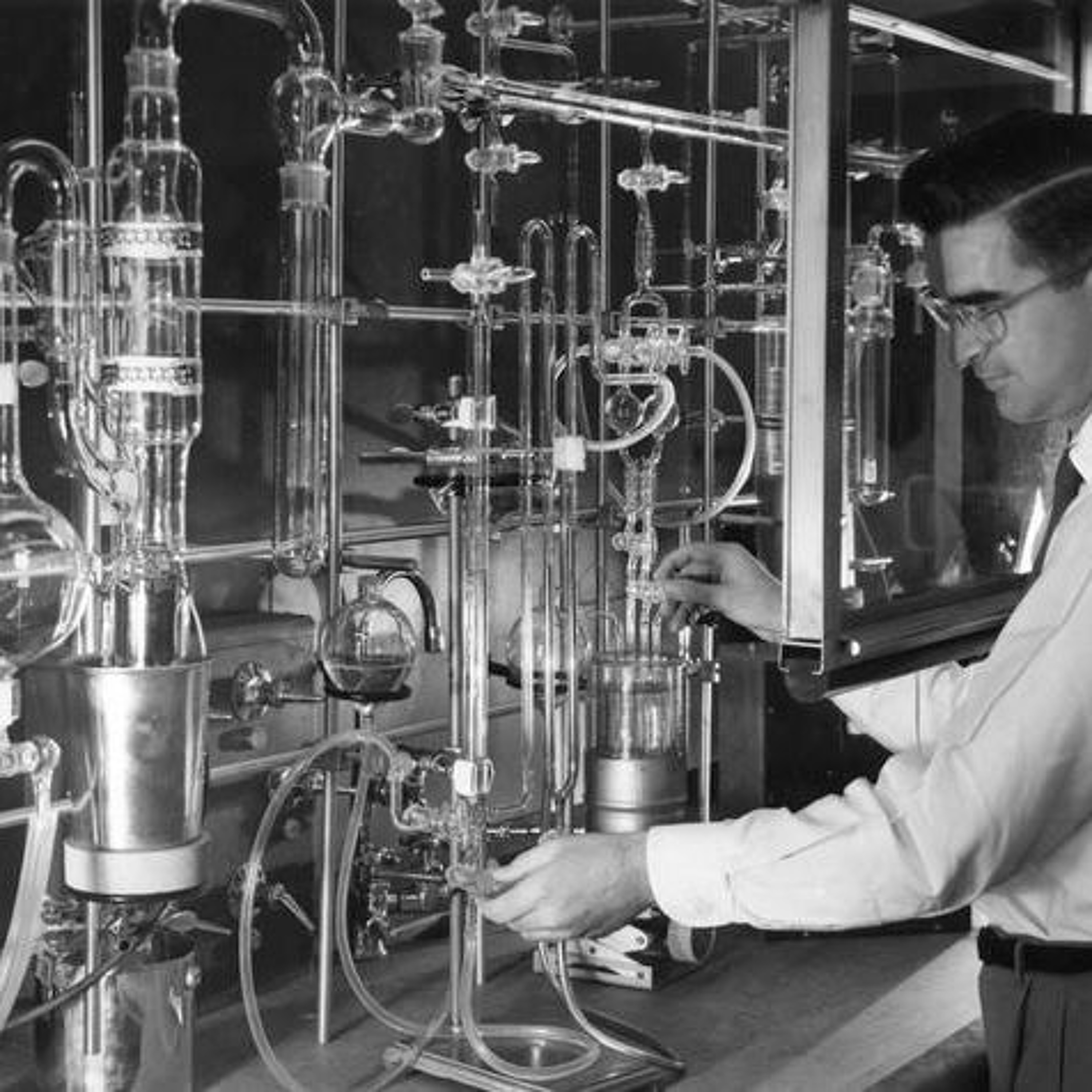
Hagley History HangoutChemistry, Capitalism, & the Commodification of Nitrogen with Chris MorrisNitrogen is the most abundant element in the Earth’s atmosphere, it is essential to life and biological processes, and yet it is virtually impossible to access nitrogen absent the mediation of something or someone that can “fix” gaseous atmospheric nitrogen into a stable form. Historically, these mediators were biological organisms, such as cyanobacteria, that can fix nitrogen and make it available in the ecosystem and economy. Not until the advent of modern chemistry and chemical industries did a method for synthetically fixing nitrogen exist, but once developed, it became an essential component of the human economies of agriculture and warfar...
2024-04-0128 min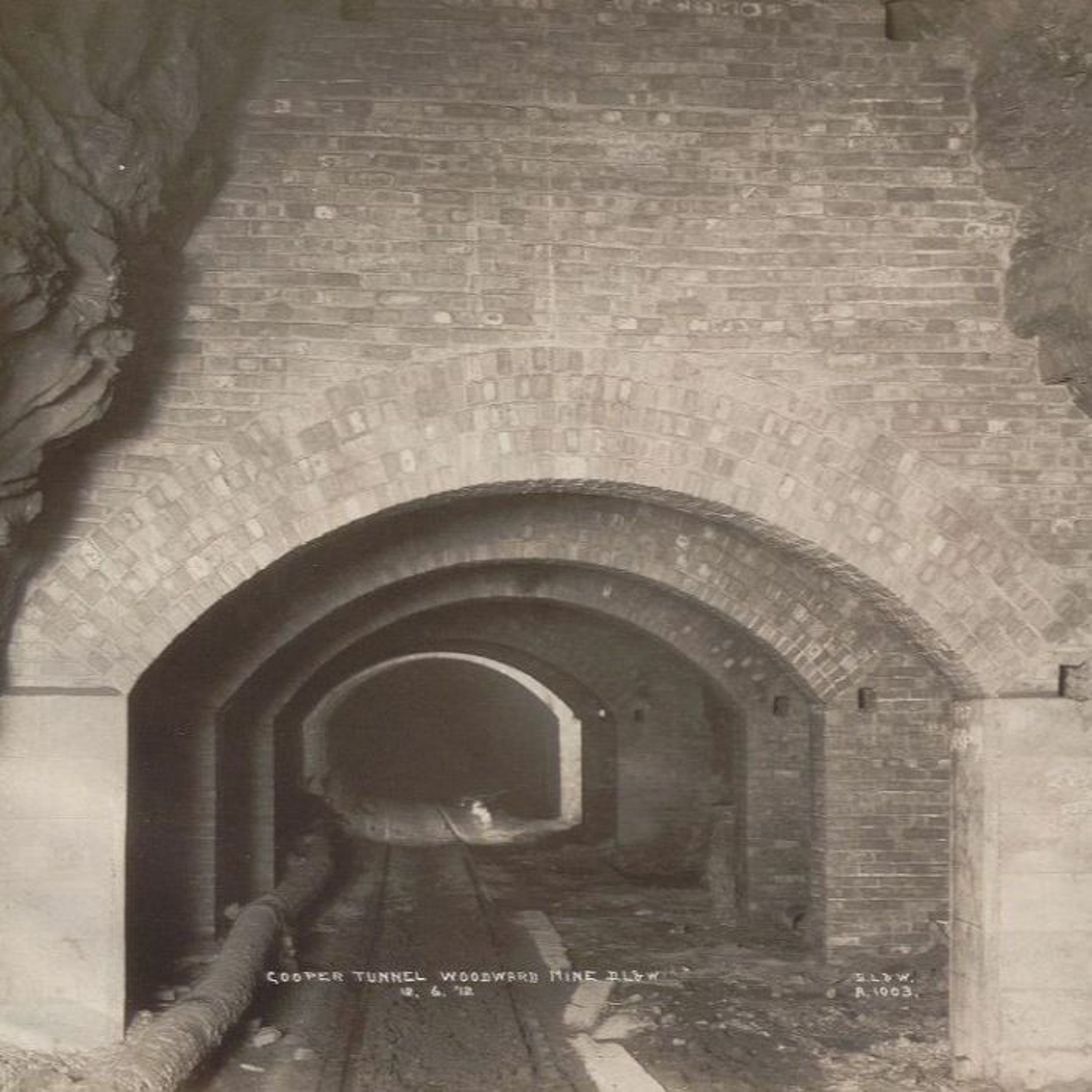
Hagley History HangoutHoly Holes: Mining and Religion in the Americas with Rebecca JanzenWhen miners go underground, they enter a spiritual realm distinct from that aboveground. Across time, places, and cultures, miners have made religious observance part of their work, building shrines, making offerings, and naming places after sacred personages. What connects these practices, and how can we access the meaning behind them?
The latest research of Rebecca Janzen, professor of Spanish and comparative literature at the University of South Carolina, addresses this cultural phenomenon as it has been manifested by miners in the Americas from the mid-nineteenth century to the present. Studying cases in the United States, Mexico, Brazil, and others, Janzen...
2024-03-1828 min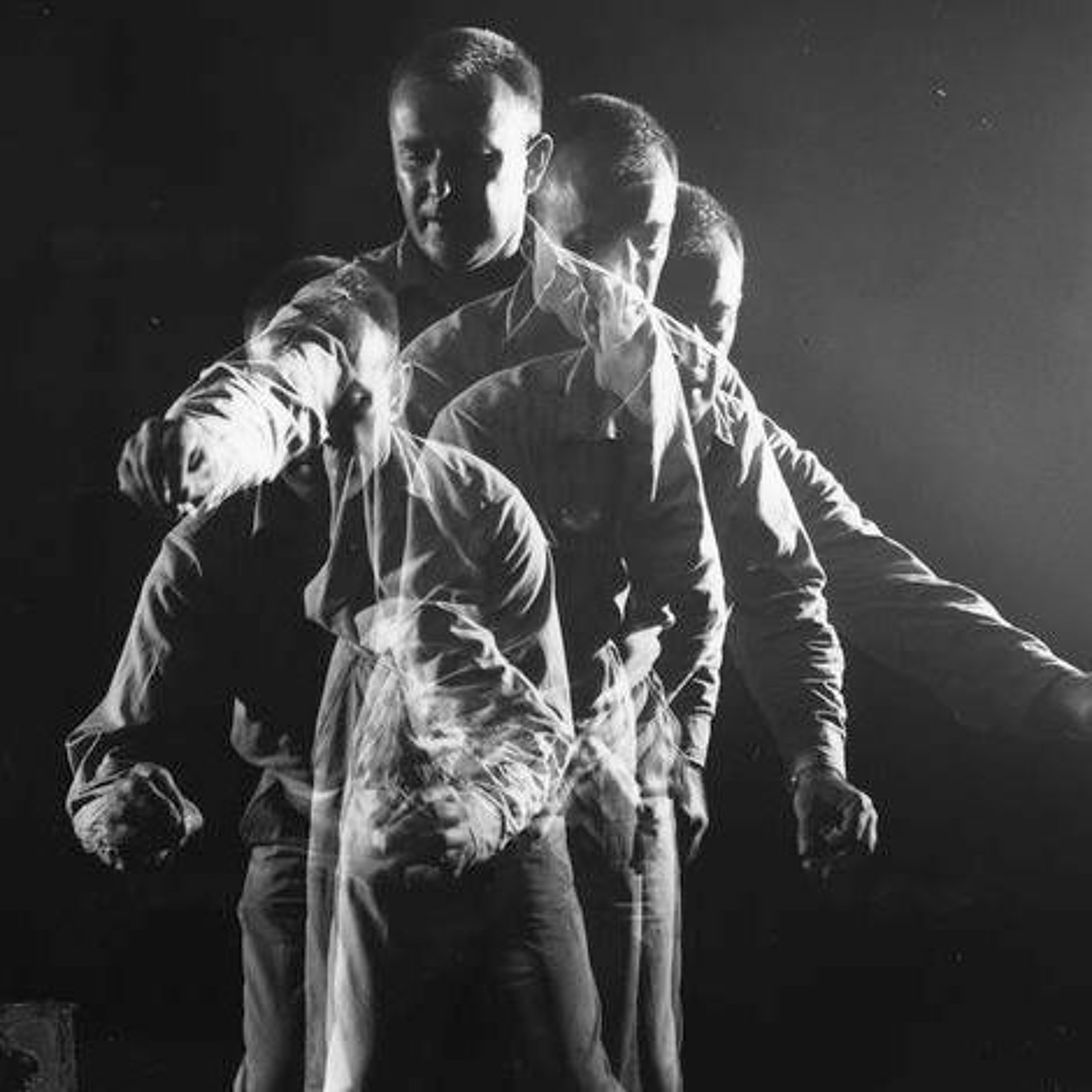
Hagley History HangoutTired!: Industrial and Workplace Fatigue, 1900-1950 with Tina WeiWork tires folks, and if fatigue is allowed to continue unabated, it can wear them right out. Studies of industrial and workplace fatigue during the first half of the twentieth century sought to address this pressing social and economic problem. But for whose benefit: labor or capital?
The dissertation research of Tina Wei, PhD candidate at Harvard University, demonstrates that this matter was of real concern to labor unions, business owners, management, and research scientists. Using multiple sources, including the records of the National Industrial Conference Board held at the Hagley Library, Wei explores how concept of industrial fatigue changed...
2024-02-1927 min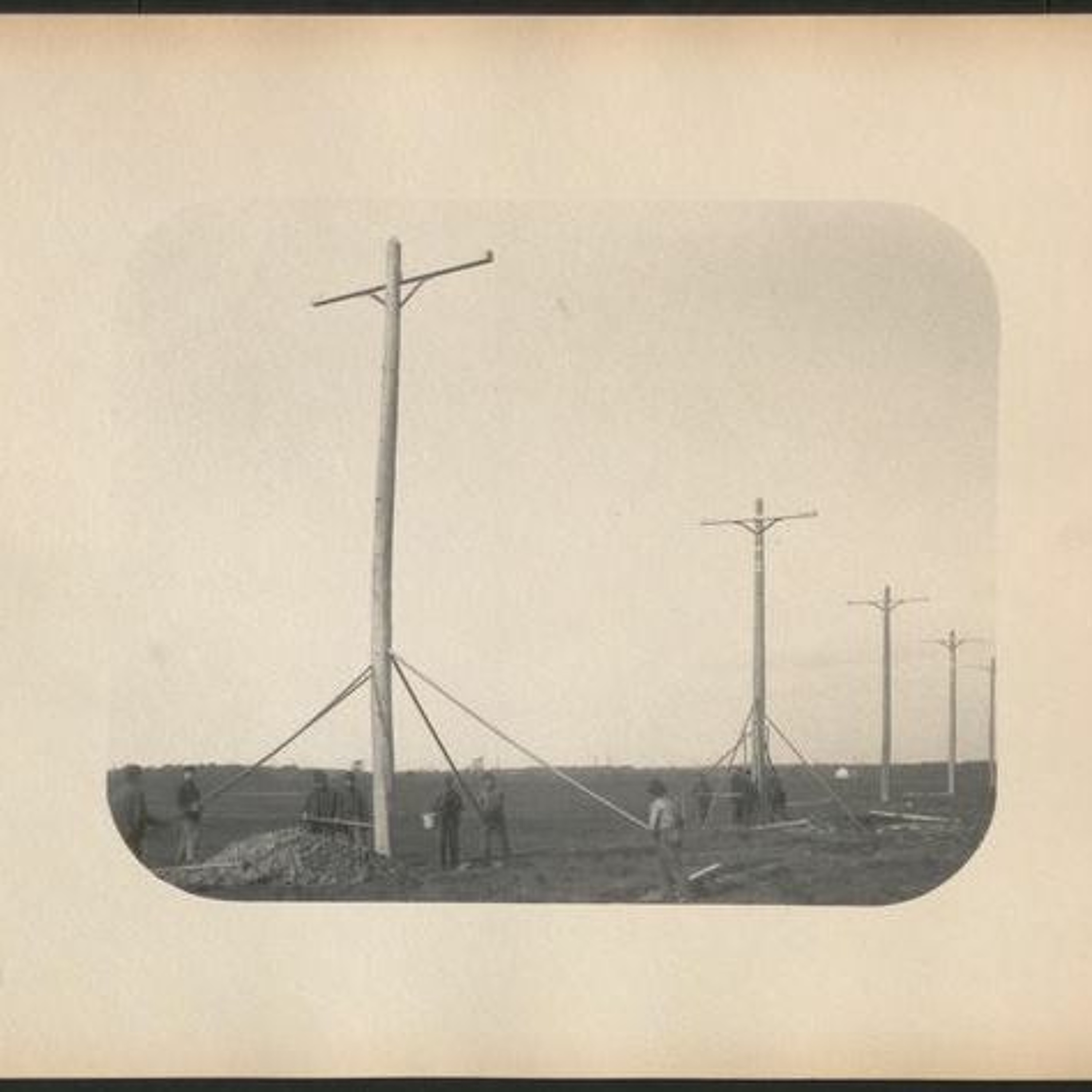
Hagley History HangoutPower Up: A Social History of American Electricity with Trish KahleThe history of American electricity is often told through the experiences of engineers and managers, but these were only a handful of the many thousands of workers who built, maintained, and ran electrical utility systems in the Unites States. The linemen, clerks, pipe fitters, marketers, secretaries, and many, many others who do the work to keep the power on have little space in the literature. In fact, we have collectively learned not to see these workers and the work that they do even when they are right in front of our eyes.
That’s where the research of energy historian Tr...
2024-01-0827 min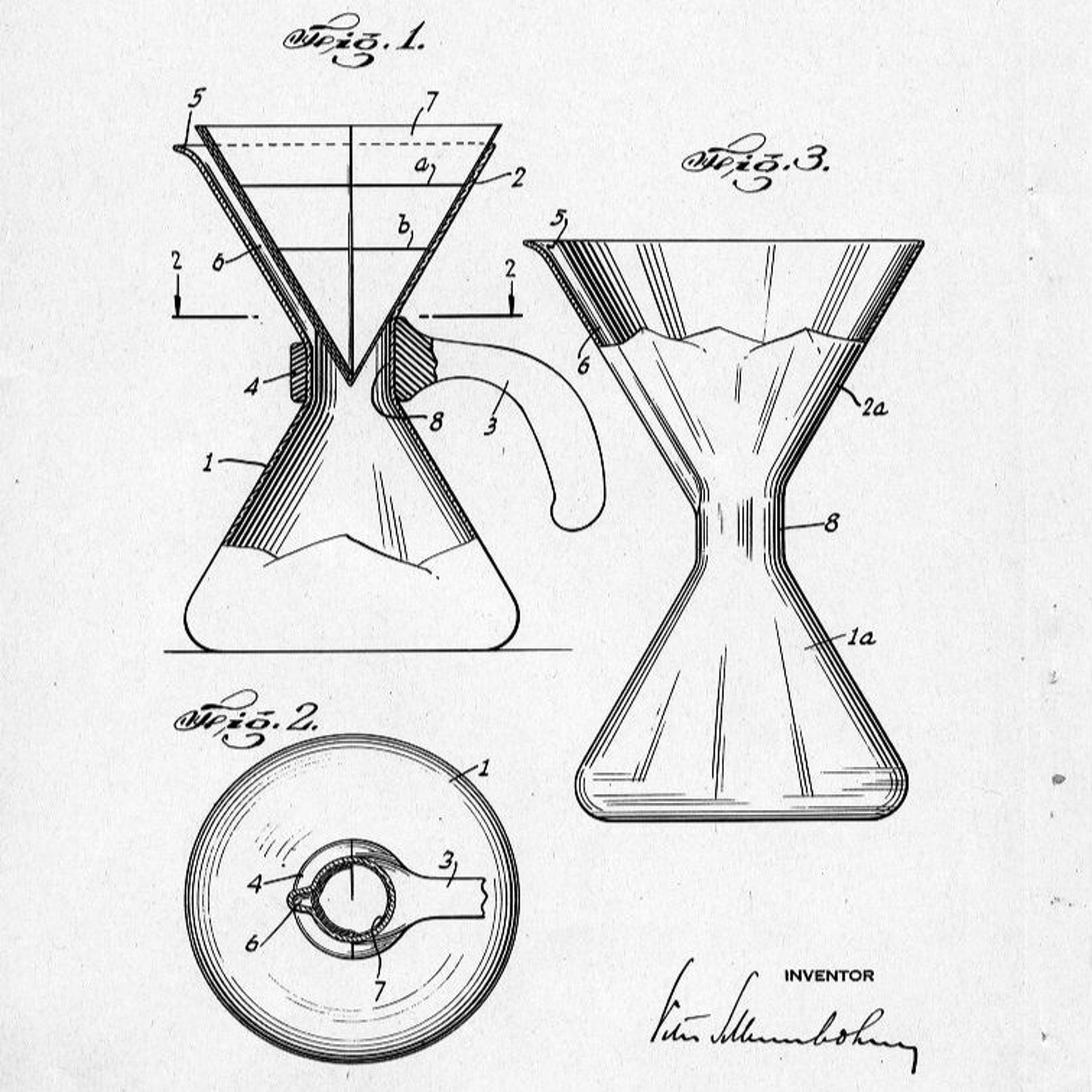
Hagley History HangoutTasteful Design: Peter Schlumbohm & the Chemex Coffeemaker with Clark BarwickAmericans love coffee, but the coffee in American cups has changed a lot over the years. Three waves of coffee consumer culture washed over the twentieth-century United States: the mass commodity wave, the differentiation wave, and the aficionado’s wave. With each wave came changes to the way Americas bought, prepared, and consumed coffee. Present throughout the decades, however, has been the Chemex coffeemaker designed in the 1930s by chemist and industrial designer Peter Schlumbohm.
Uncovering the story of the Chemex coffeemaker is Clark Barwick, cultural historian and teaching professor of business communication at Indiana University. Using the Schlumbohm collection of...
2023-12-2526 min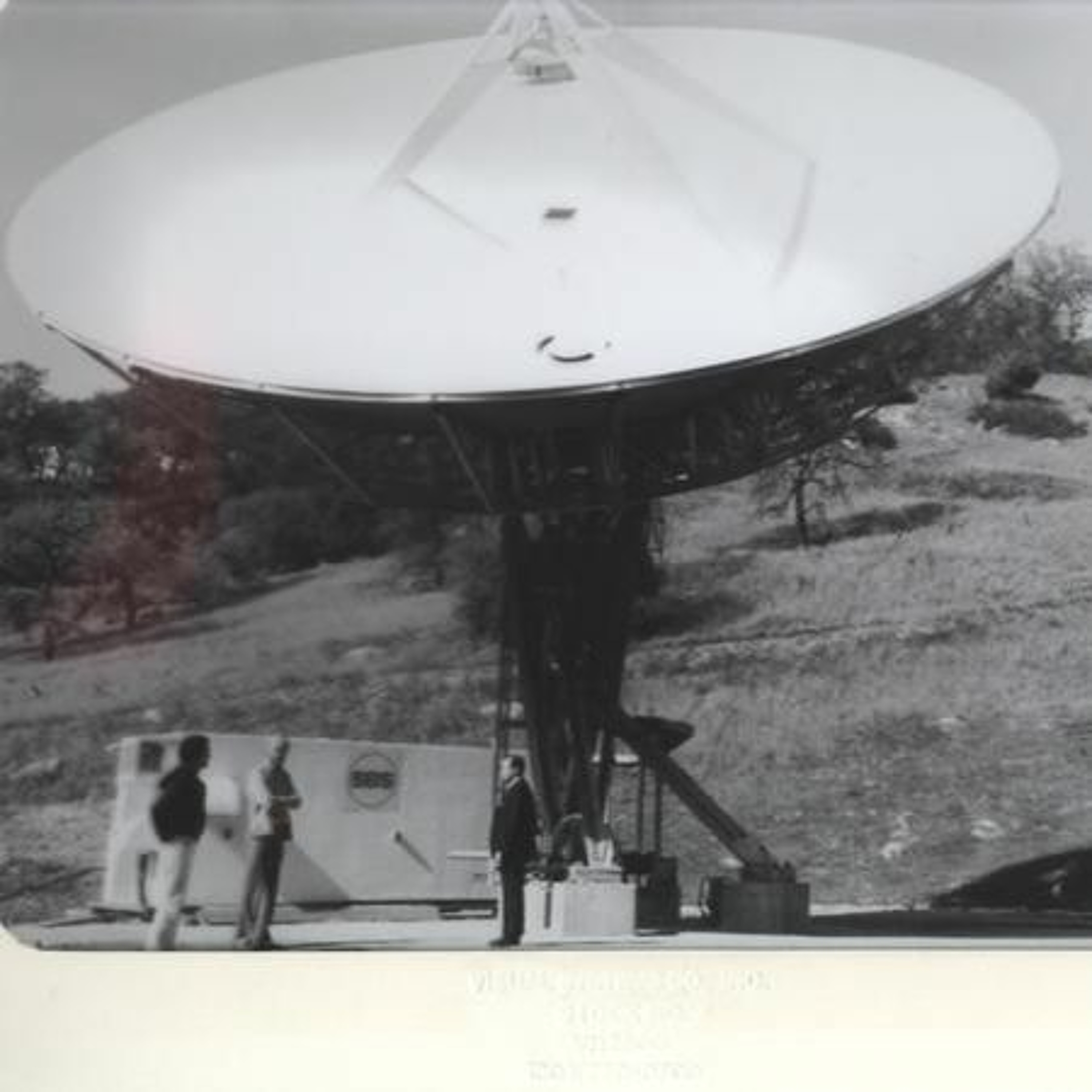
Hagley History HangoutPirates of the Caribbean: U.S. Satellites & Media in the 1980s Americas with Fabian Prieto-NañezThe early history of satellite broadcast has a Gemini aspect: twin origins in the research and development laboratories of major American corporations, and in the homes and workshops of legions of grassroots tinkerers across North and South America, notably in the Caribbean. These two streams crossed in the 1980s. Companies like RCA tried to build the infrastructure and market for satellite television but failed to find cost-effective designs for consumer satellite dishes. Meanwhile grassroots innovators and activists found ways to mass-produce inexpensive satellite dishes but were blocked from accessing the corporate broadcast signal. “Pirated” satellite television was born.
Fabian Prieto-Nañez, a...
2023-11-2724 min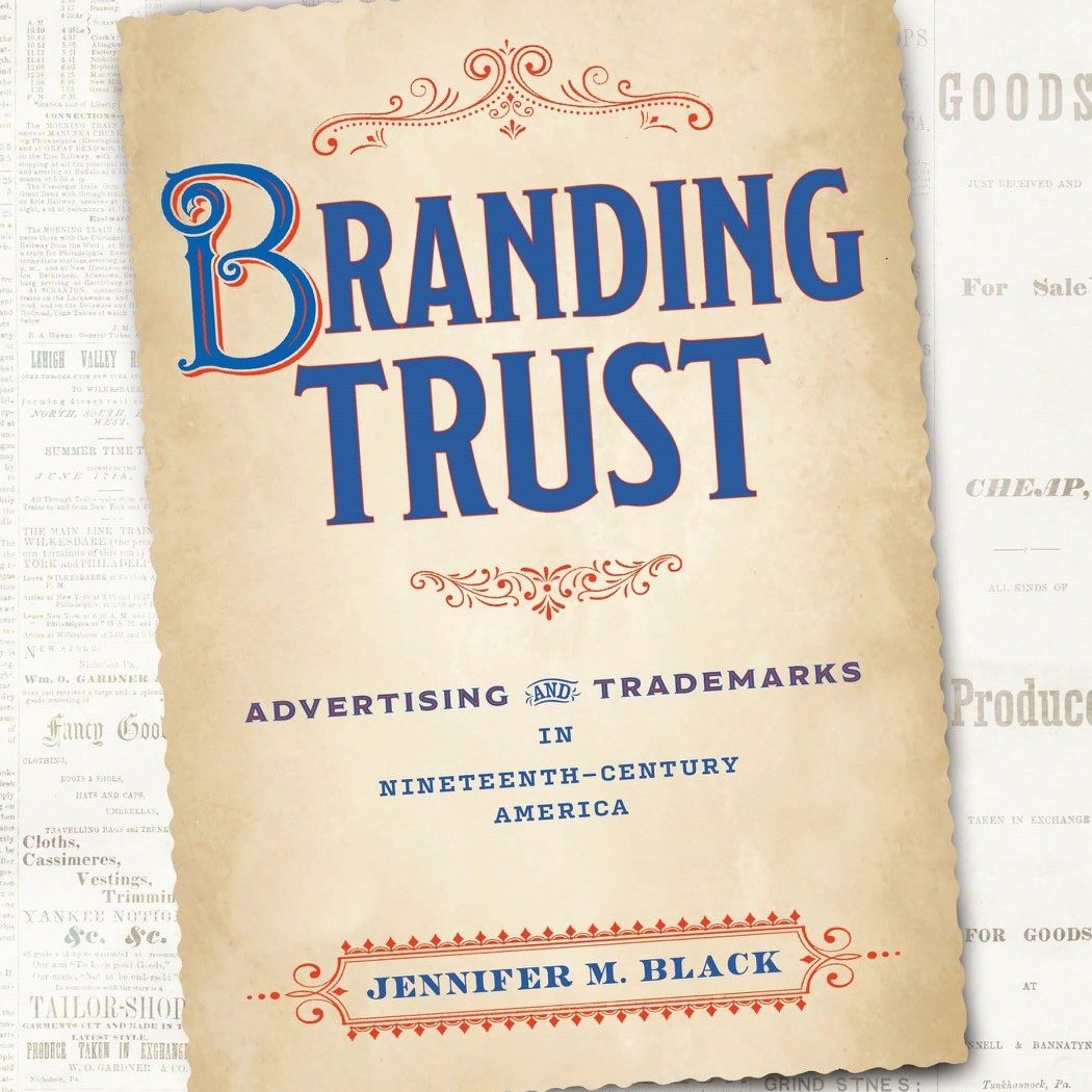
Hagley History HangoutWho Can You Trust?: Brands, Deception, & Markets with Jennifer BlackWould branded goods, by any other name, not smell as sweet? Branding is one means by which businesses try to communicate with consumers, cultivate trust, and capture market share. The practice has a long history in America and was central to the attempts of producers to differentiate their products, consumers to navigate the uncertainties of the marketplace, and forgers to cash in on the value of a brand name.
In a pair of book projects, Dr. Jennifer Black, associate professor of history at Misericordia University, investigates the cultivation of market-trust via branding, and the subsequent attempts by fakers to pass...
2023-10-3026 min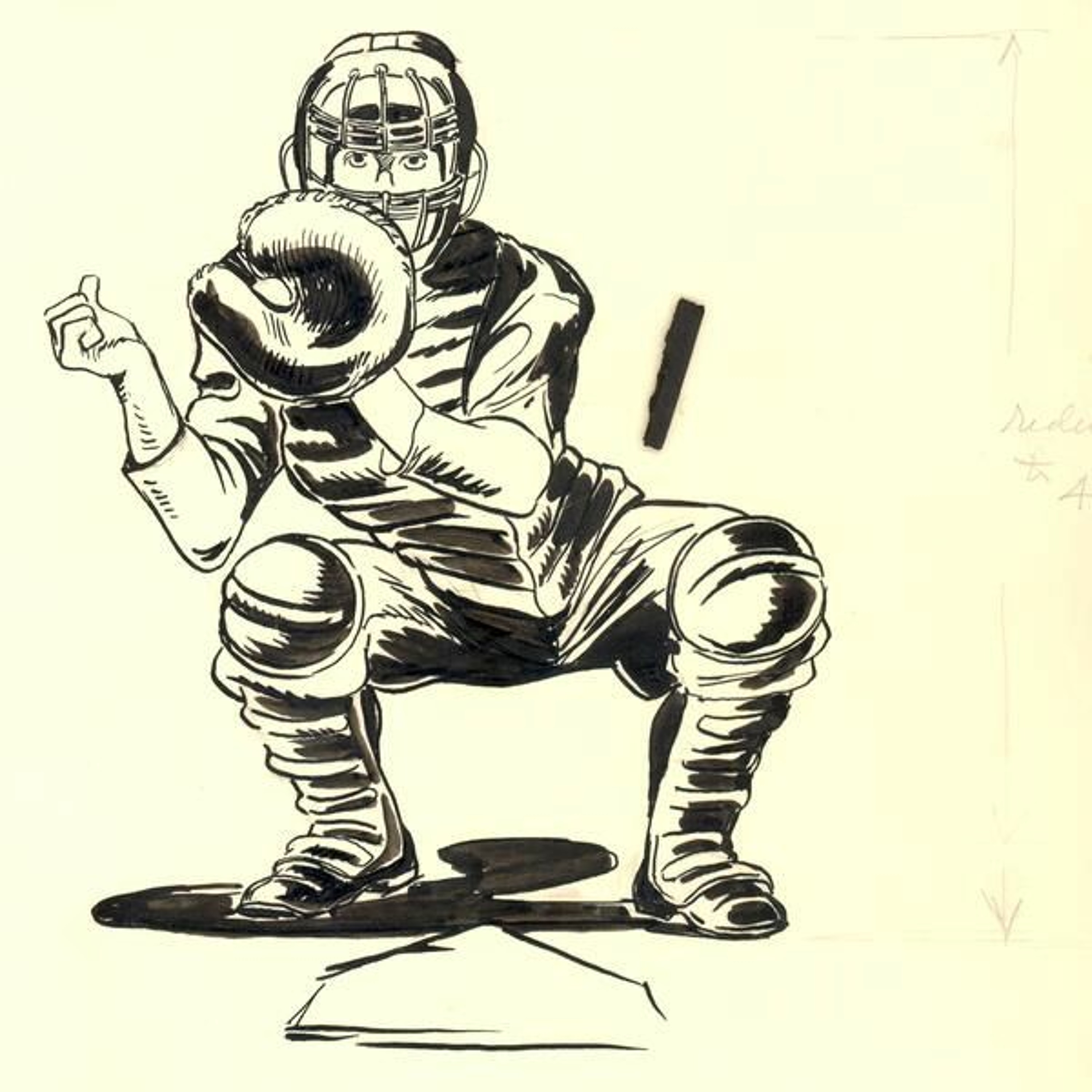
Hagley History HangoutOrganized Baseball: Reworking the Transnational Circuit, 1946-1965 with Evan BrownBaseball fans often tout the “timeless” quality of the sport; and the air in baseball stadiums can be thick with tradition. However, the business of baseball, its labor and management practices, and its marketing and revenue systems have been a work-in-progress from the first. Sports historian Evan Brown, a PhD candidate at Columbia University, is uncovering the inside baseball story of the mid-twentieth century in North America, when players moved across borders and between leagues, and management was seeking new ways to exert control over their franchises and employees.
The changes in baseball reflected concurrent changes in American society: the relo...
2023-10-1636 min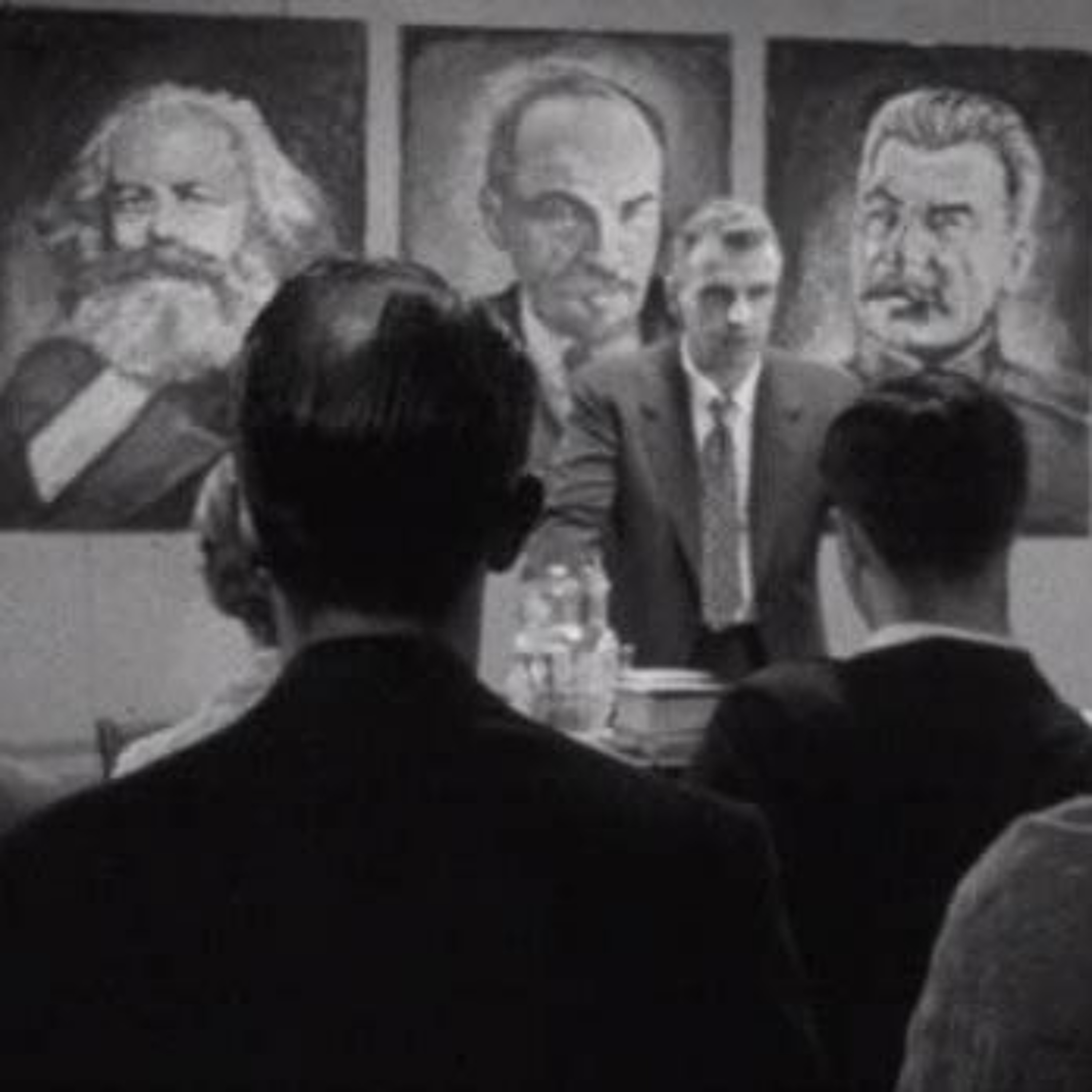
Hagley History HangoutWilling Communist Collaborators?: DuPont in China, 1946-1953 with Juanjuan PengThe DuPont Company had a presence in China beginning in the 1920s. With a business selling imported dyestuffs, the company operated out of Shanghai until the Japanese takeover of the country. Following the Second World War, the company resumed operations, continuing even while the fighting continued during the Chinese Civil War. With the 1949 ascent of the Chinese Communist Party, what would DuPont and other American businesses do with their Chinese operations?
Historian Juanjuan Peng, associate professor at Georgia Southern University, used the DuPont Company archive at the Hagley Museum & Library to find out. To her surprise, American businessmen, including those...
2023-10-0232 min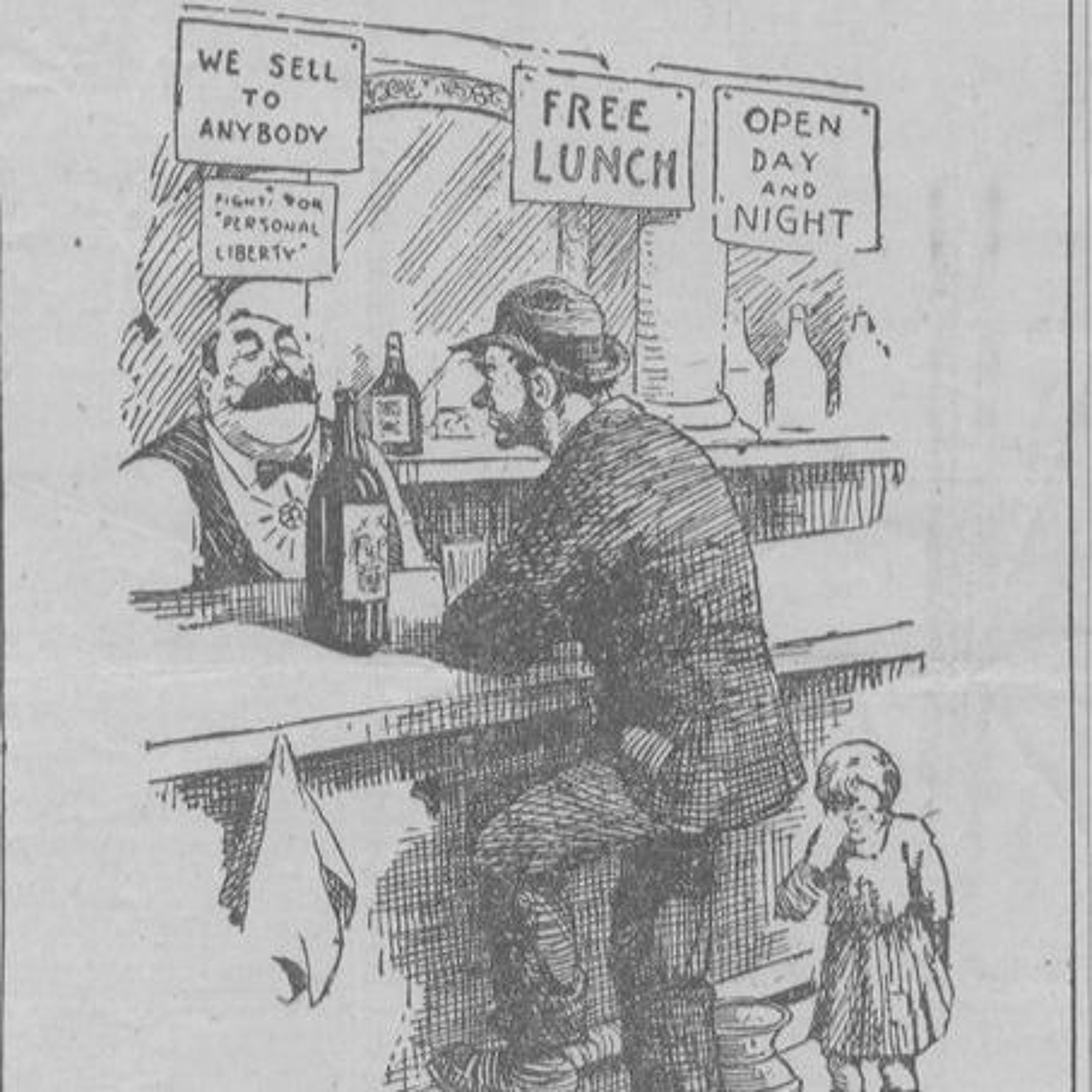
Hagley History HangoutThe Rhetorical Prehistory of the New Deal with James KimbleWhat is the New Deal? During the election of 1932, Americans did not know what it was, but they knew that they wanted whatever it was. Dr. James Kimble’s research is on the history of this term from the time Franklin Delano Roosevelt first spoke it in the summer of 1932 to when he took office in March of 1933. Throughout the campaign season, FDR never defined what the “New Deal” meant and let the voters decide what it meant for themselves. One of the main ways he accomplished this was by reaching out to the electorate through the still new technology of rad...
2023-09-1848 min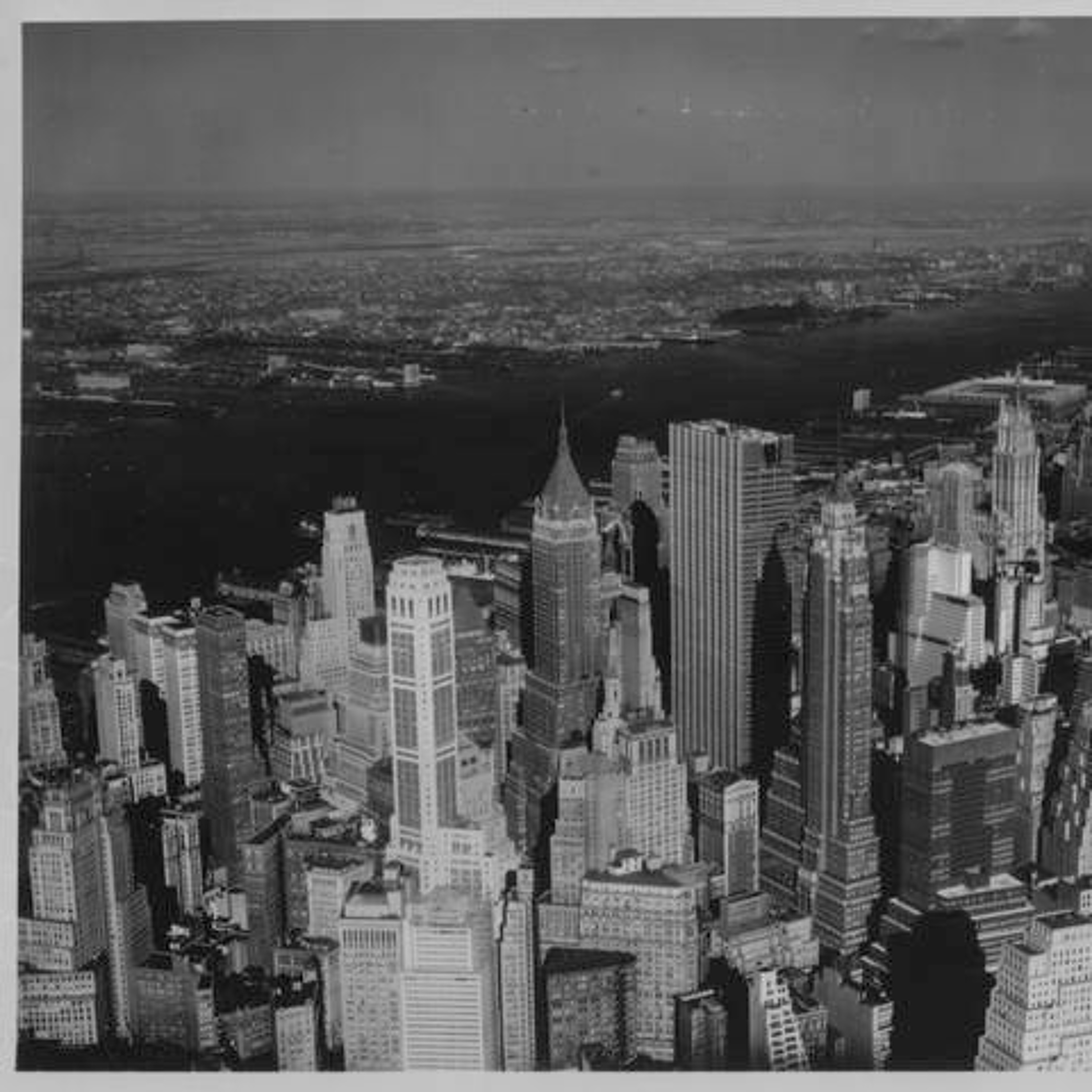
Hagley History HangoutTV Town: New York City & Broadcast Media with Richard PoppNew York City played a starring role in the story of American broadcast media, perhaps especially when it came to television. The city was both a major market for television, a proving ground for television techniques and technologies, and an on-screen character in televised news and entertainment. The very physicality of the city, with its canyon-like streets and towering steel and concrete edifices, played a material role in the development and popularization of American television.
Historian and media scholar Richard Popp, associate professor at the University of Wisconsin – Milwaukee, is working on a book project exploring the close inter-relationship between Ne...
2023-09-0429 min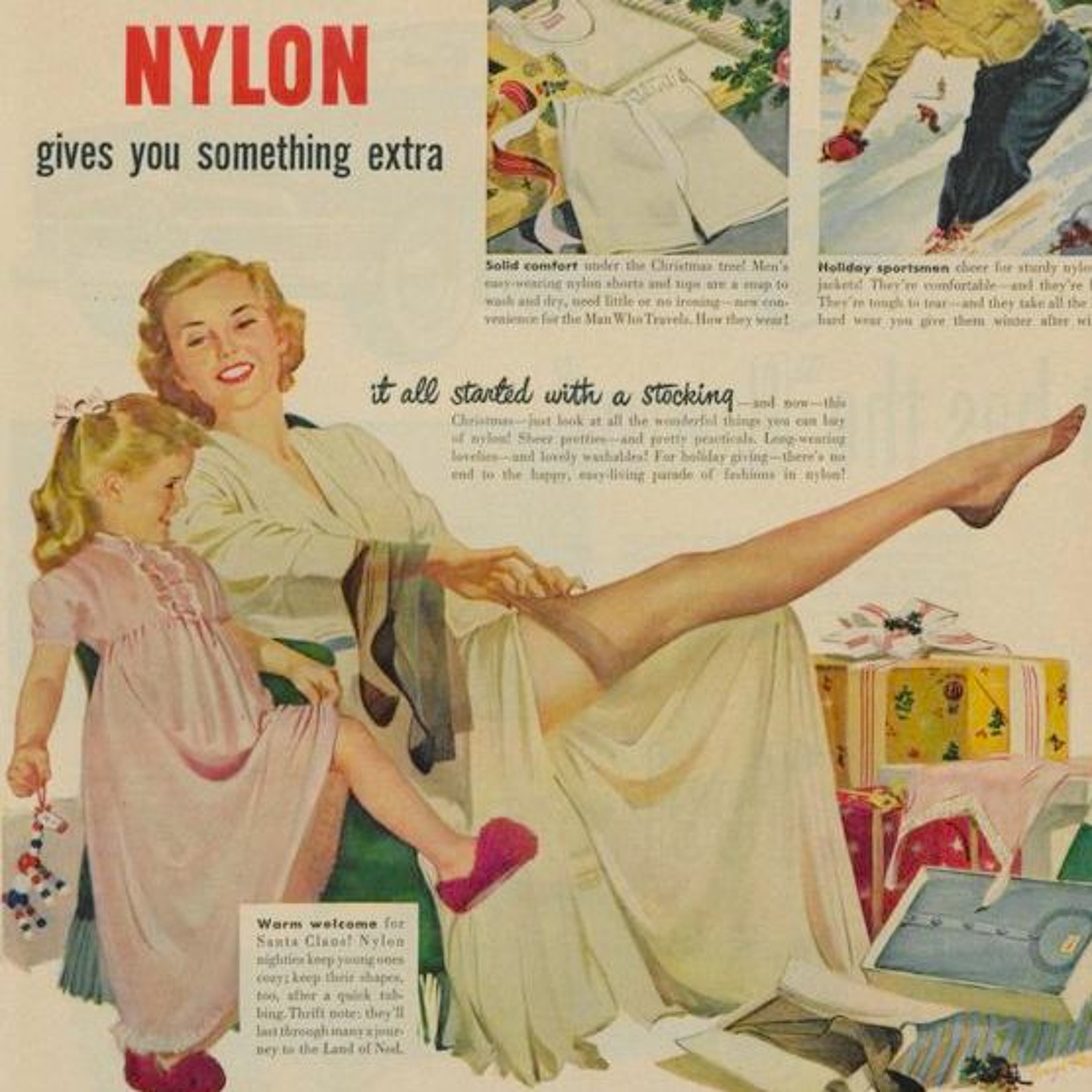
Hagley History HangoutAn Artist in the Archive: Researching & Sculpting Nylon with Emily BakerArtists bring a unique perspective to historical archives. Like any other researchers, they examine documents and collections to learn about their subject. Where their methods diverge is to use archival sources to shape the form and meaning of art created in two and three dimensions. The experiences of past people, accessed through the documents they left behind, can breathe life into the materials worked by an artist’s hands.
Visual artist Emily Baker, assistant professor of sculpture at Georgia State University, specializes in metalworking. When she encountered the repeated claim that nylon is stronger than steel, she wanted to learn mo...
2023-08-2126 min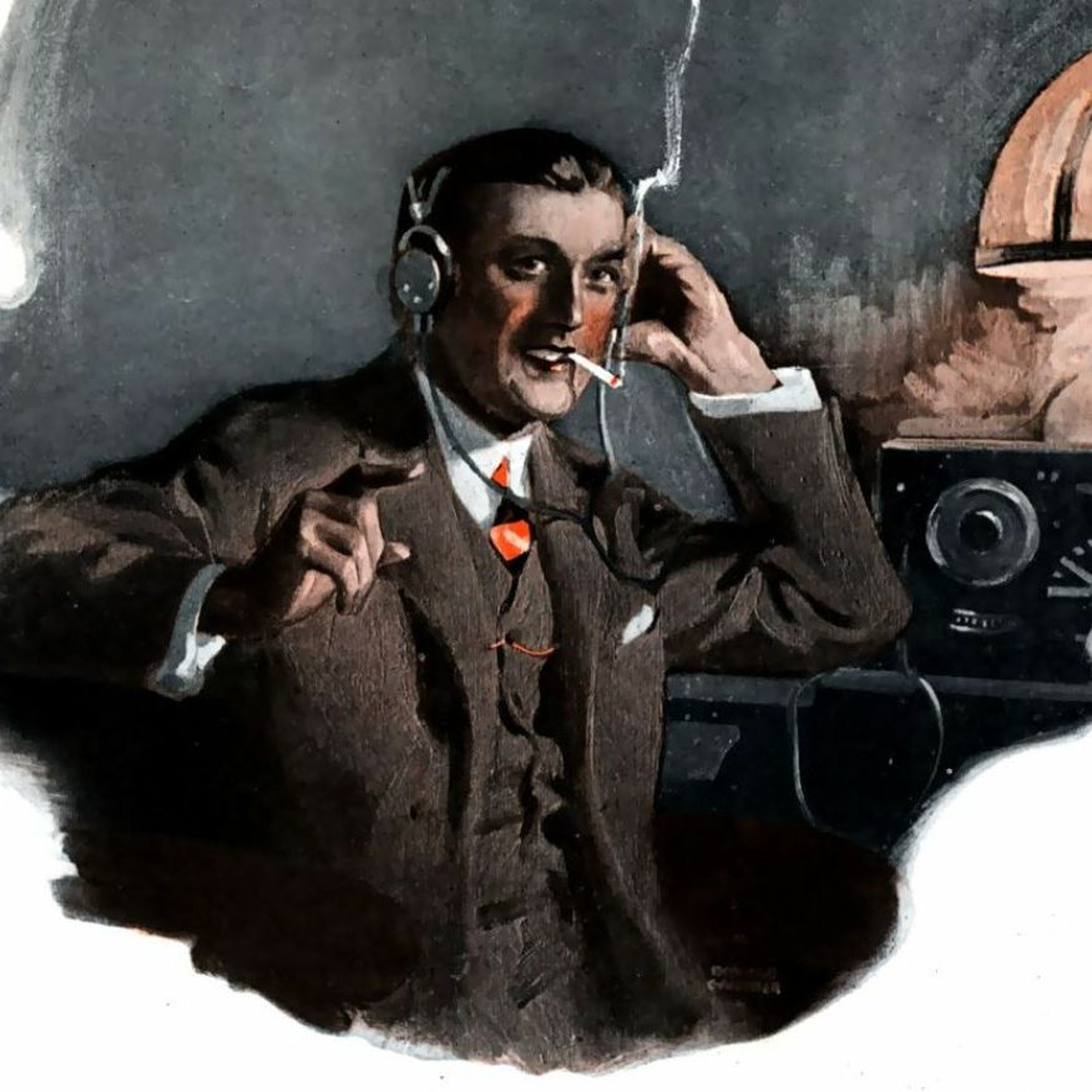
Hagley History HangoutSmoke ‘Em If You Got ‘Em: American Tobacco & Broadcast Media with Peter KovacsThe American tobacco oligopoly of five firms loomed large in the mid-twentieth century thanks to the addictive qualities of their products and the massive investment they made in broadcast marketing communications, influencing the media experience of millions of Americans and the wider landscape of American media for generations.
Media historian Peter Kovacs is conducting research on the influence of American tobacco firms on broadcast media, and argues that the tobacco company sponsorship of broadcast programs on radio and television profoundly shaped the form and content of both individual programs and the broadcast media industry at large. Using Hagley’s unrivalled co...
2023-08-0726 min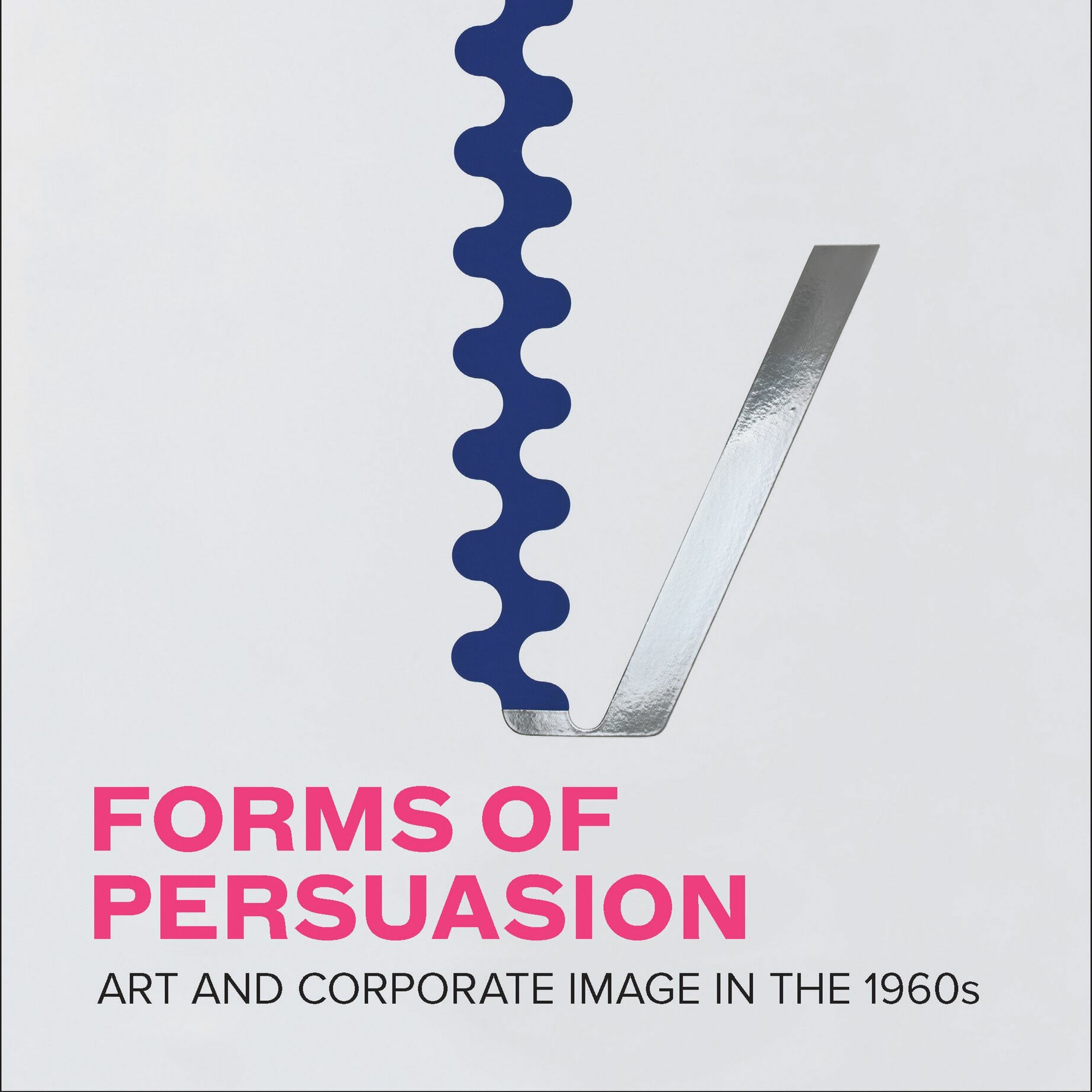
Hagley History HangoutForms of Persuasion: Art & Corporate Image in the 1960s with Alex TaylorIn this episode of Hagley History Hangout Roger Horowitz sits down with Alex Taylor to discuss his new book, Forms of Persuasion: Art and Corporate Image in the 1960s, the first dedicated history of corporate patronage in post-war art. Taylor’s book considers how a wide range of artists were deeply immersed in the marketing strategies of big business during the 1960s and explored with multinational corporations new ways to use art for commercial gain. From Andy Warhol’s work for packaged goods manufacturers to Richard Serra’s involvement with the steel industry, Taylor demonstrates how major artists of the period...
2023-07-2442 min
Hagley History HangoutAmerican Advertising: Researching Capitalism from the Inside Out with Cynthia MeyersWhat archive could possibly give you a total view of American business practice in the twentieth century? What industry touched and participated in nearly every other industry? What firm yields insight into a cavalcade of firms in one fell swoop? The answer to all of these questions is the BBD&O advertising agency archive held in the Hagley Museum & Library.
Cynthia Meyers, professor emerita of Communication, Art, & Media at College of Mount Saint Vincent, has dedicated her career to uncovering the incredible stories of American advertising on twentieth-century airwaves. Her work highlights the significance of the BBD&O advertising firm...
2023-07-1038 min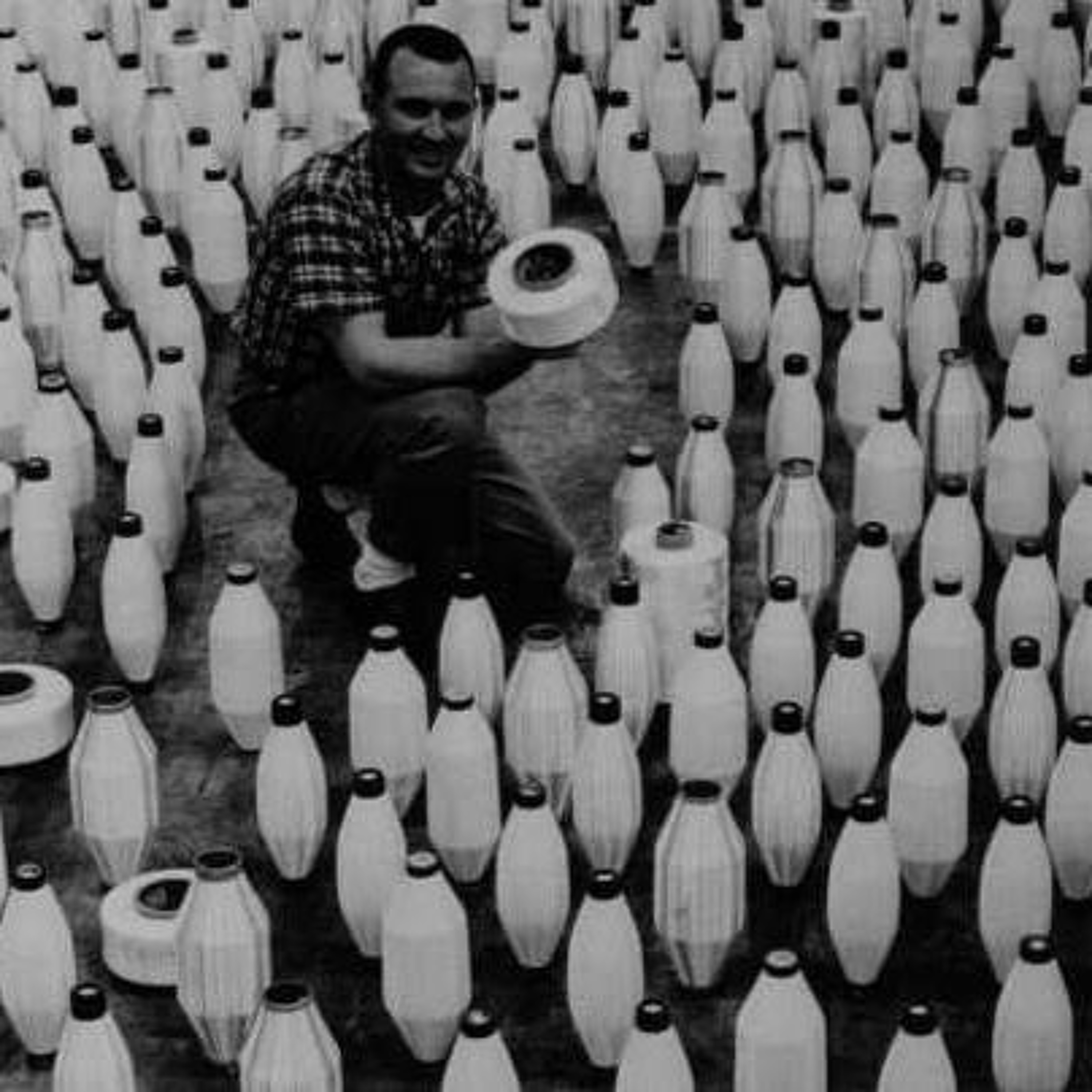
Hagley History HangoutBuilding an Oral History of DuPont’s Textile Fibers Department with Joe PlaskyJoe Plasky talks about his efforts interviewing as many people as he can who worked for DuPont’s Textile Fibers Department between 1950 and 2000.
Joe Plasky is a retired engineer from DuPont’s Textile Fibers Department and he has been collecting oral histories from former DuPont Textile Fibers employees for well over a decade. Every year, sometimes multiple times per year, Mr. Plasky deposits a batch of these oral histories with Hagley. Currently, the collection has approximately 260 interviews and counting. In this interview, Plasky talks about what inspired him to undertake a project of this size and how he feels the deve...
2023-05-2945 min
Hagley History HangoutUnderwriters of the United States: How Insurance Shaped the American Founding with Hannah FarberIn this edition of Hagley History Hangout, Hannah Farber discusses her new prize-winning book, Underwriters of the United States, with Roger Horowitz. Her book traces how American maritime insurers used their position at the pinnacle of global trade to shape the formation of the United States. During American Revolution, they helped the U.S. negotiate foreign loans, sell state debts, and establish a single national bank. Afterward, they increased their influence by lending money to the federal government and to its citizens. Even as federal and state governments began to encroach on their domain, maritime insurers adapted, preserving their autonomy...
2023-05-0155 min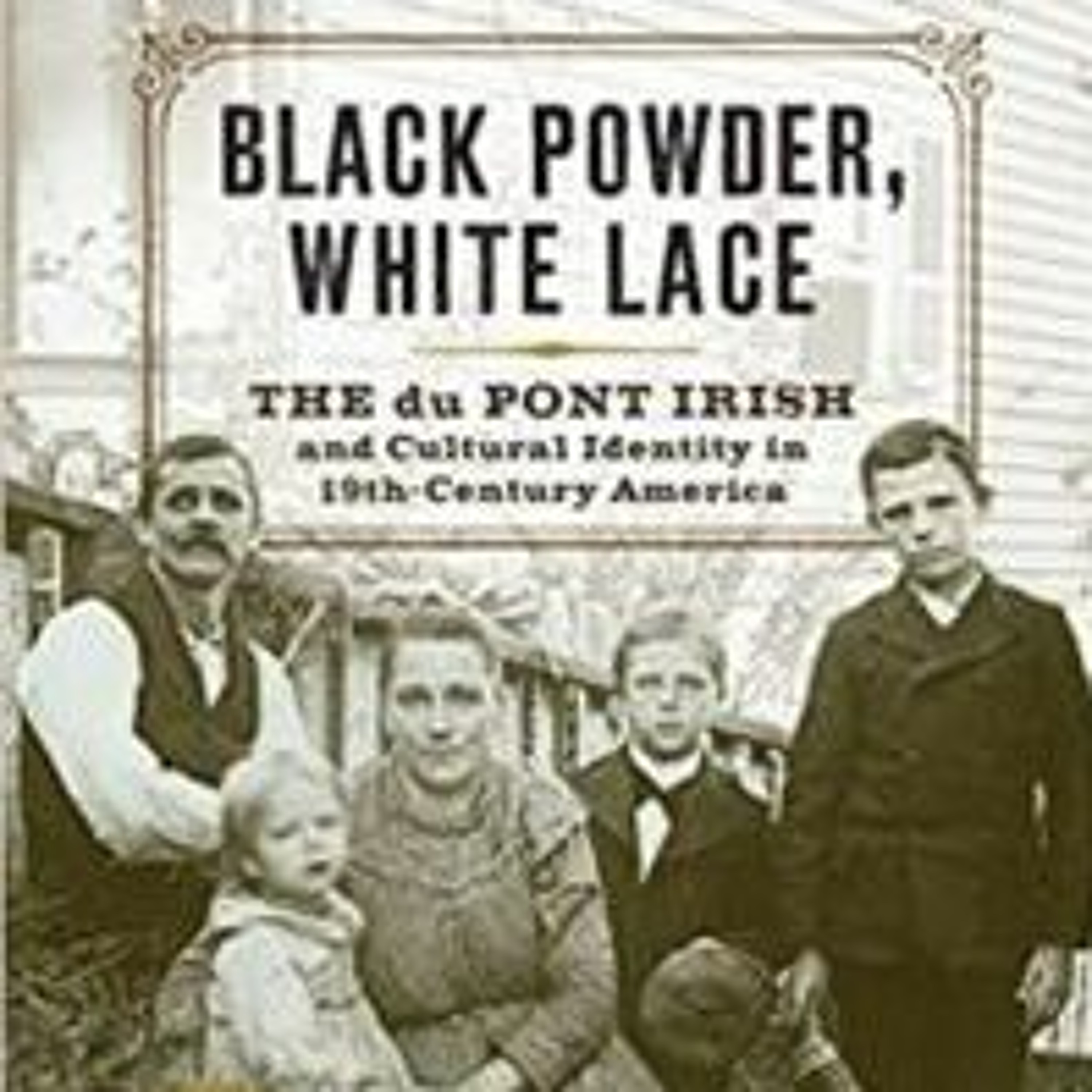
Hagley History HangoutBlack Powder, White Lace: The DuPont Irish & Cultural Identity in 19thC USA with Margaret MulrooneyThis special edition of the Hagley History Hangout features Dr. Margaret Mulrooney presenting her work on the DuPont Irish and celebrating the 20th Anniversary re-release of her book at an Author Talk event hosted by the Center for the History of Business, Technology, & Society at the Hagley Museum & Library.
Twenty years ago, Margaret Mulrooney’s history of the community of Irish immigrant workers at the du Pont powder yards, Black Powder, White Lace, was published to wide acclaim. Now, as much of the materials Mulrooney used in her research are now electronically available to the public, and as debates about im...
2023-04-031h 17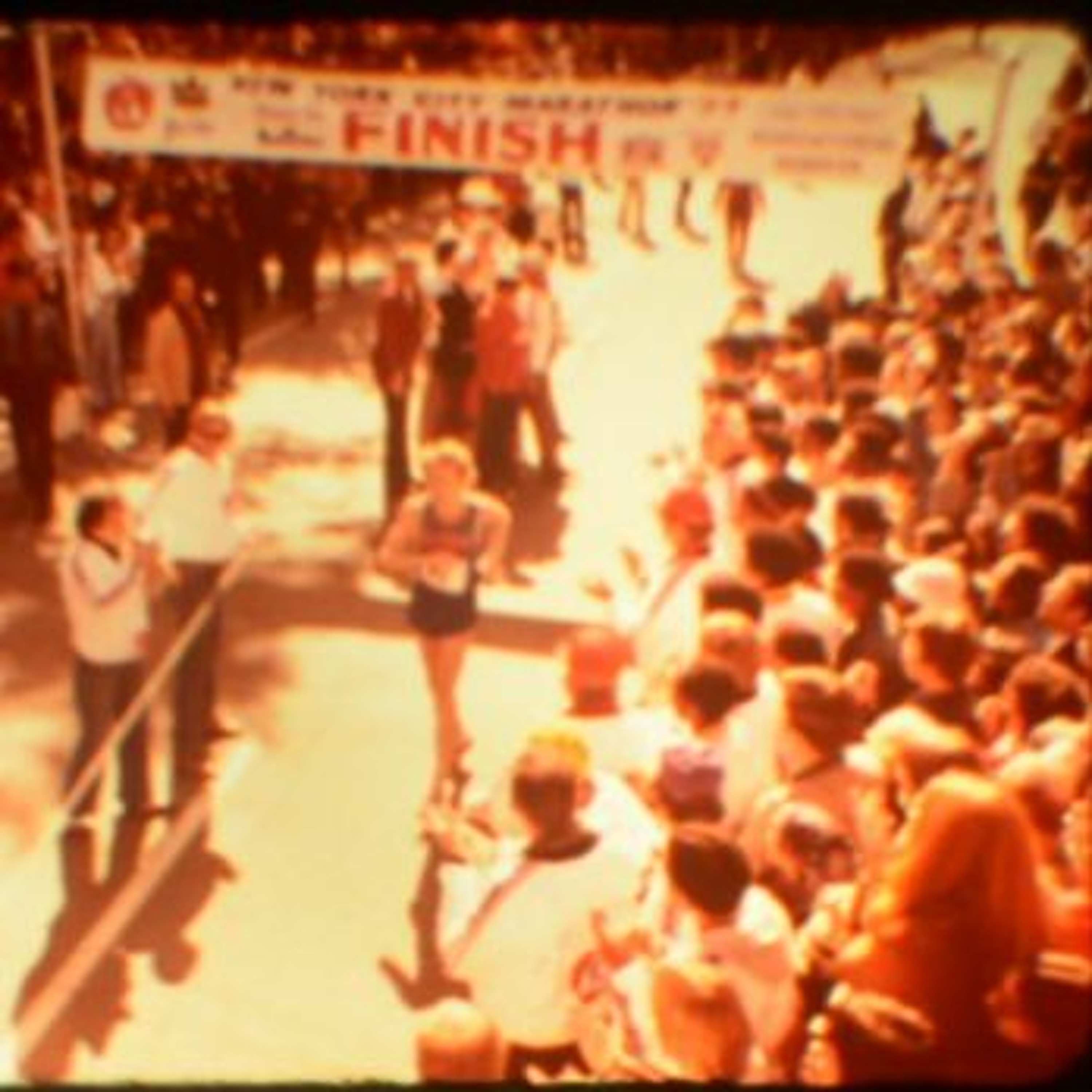
Hagley History HangoutYuppies: Wall Street & the Remaking of New York with Dylan GottliebYoung urban professional (yuppies for short) emerged as an archetype close to the heart of transformations taking place in American society during the 1970s and 1980s. These highly-educated individuals were products and architects of a new American economy geared toward financial services and willing cannibalize much of the rest of the economy for short-term profit. While elite universities had once turned out managers for manufacturing firms in midsize cities, by the 1980s their graduates were flocking into banking in major urban centers such as Chicago where the term yuppy originated, but most markedly New York.
In his book project, Dr...
2023-03-2020 min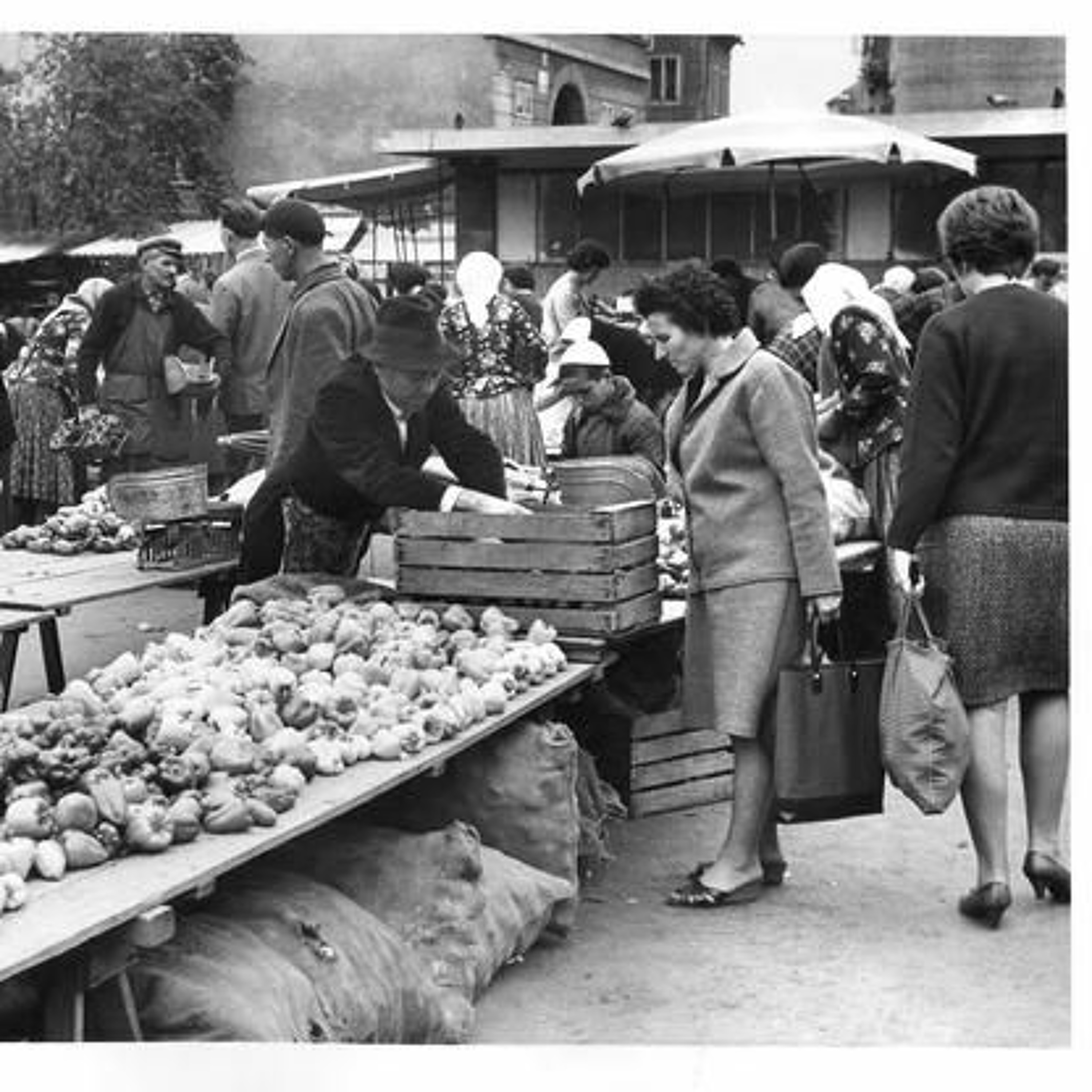
Hagley History HangoutLinks in the Chain: Department Stores in Socialist Yugoslavia, 1950s-1980s with Ivana ZimbrekYugoslavian planners considered themselves to be architects of a third way “between the blocs,” aligned neither with the capitalist West nor the Communist East, but rather masters of their own socio-economic destiny. This ramified in the economy and on the streets of Yugoslav cities in the form of supermarkets and their larger kin department stores.
Ivana Zimbrek, PhD candidate in history at Central European University, investigates the history of Yugoslav department stores as the product of professional imagination in a markedly international context. While the department store as a retail technology had its origins in the explicitly capitalist United States, Yugo...
2023-03-0634 min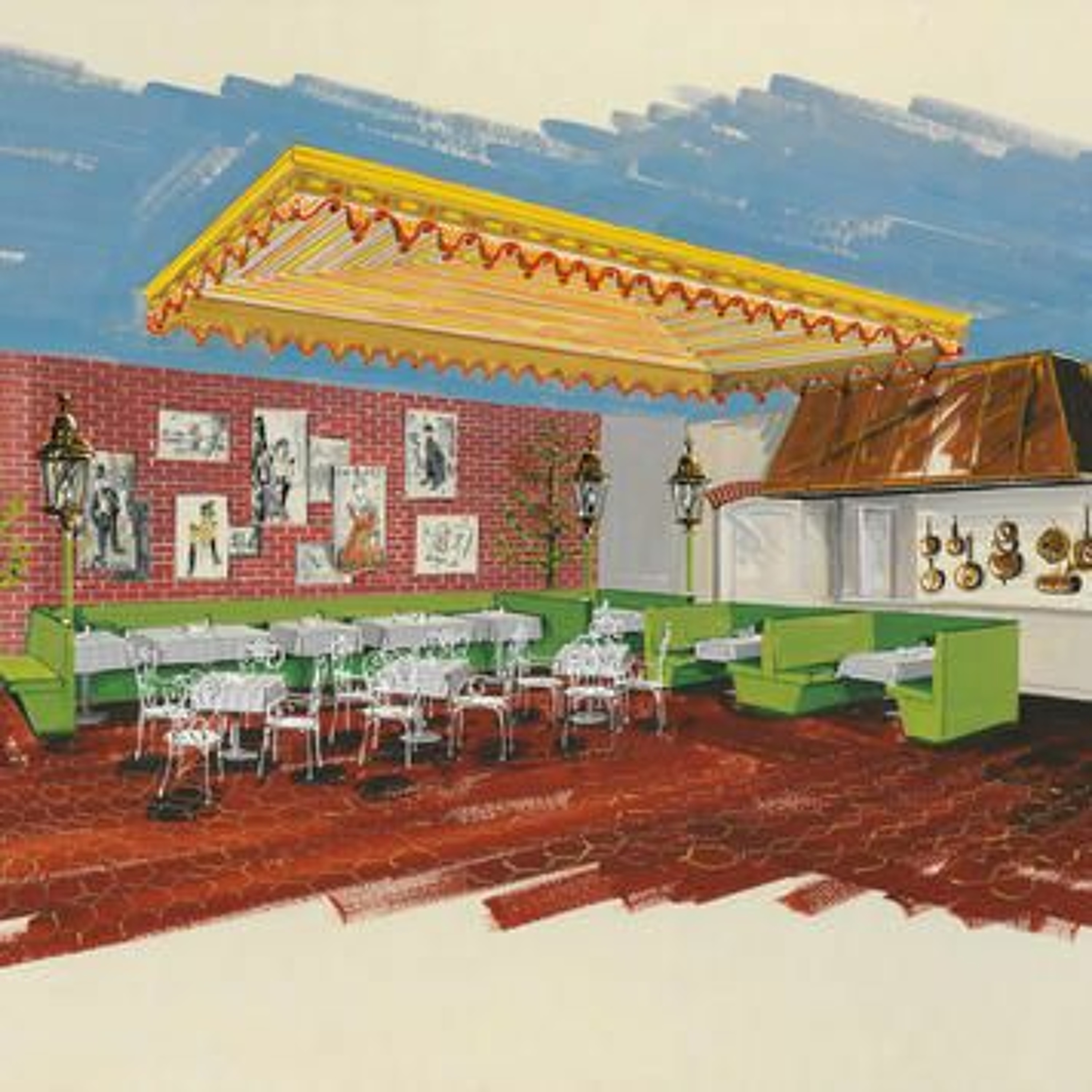
Hagley History HangoutBe His Guest: How Conrad Hilton Made Hotels Better than Homes with Megan EliasHilton Hotels started in Texas and swelled into a globe-straddling hospitality behemoth. Along the way company founder Conrad Hilton kept ideas about affordable luxury at the center of his business model. Among the affordable luxuries on offer in Hilton Hotels was an “eclectic modernist” design sensibility that placed the American consumer at the apex of a global cultural hierarchy. In her book project, Megan Elias, associate professor and director of the Gastronomy program at Boston University, traces a design history of Hilton Hotels.
To uncover this story, Elias conducted research in multiple Hagley Library collections, such as the William Pahlmann Asso...
2023-02-0630 min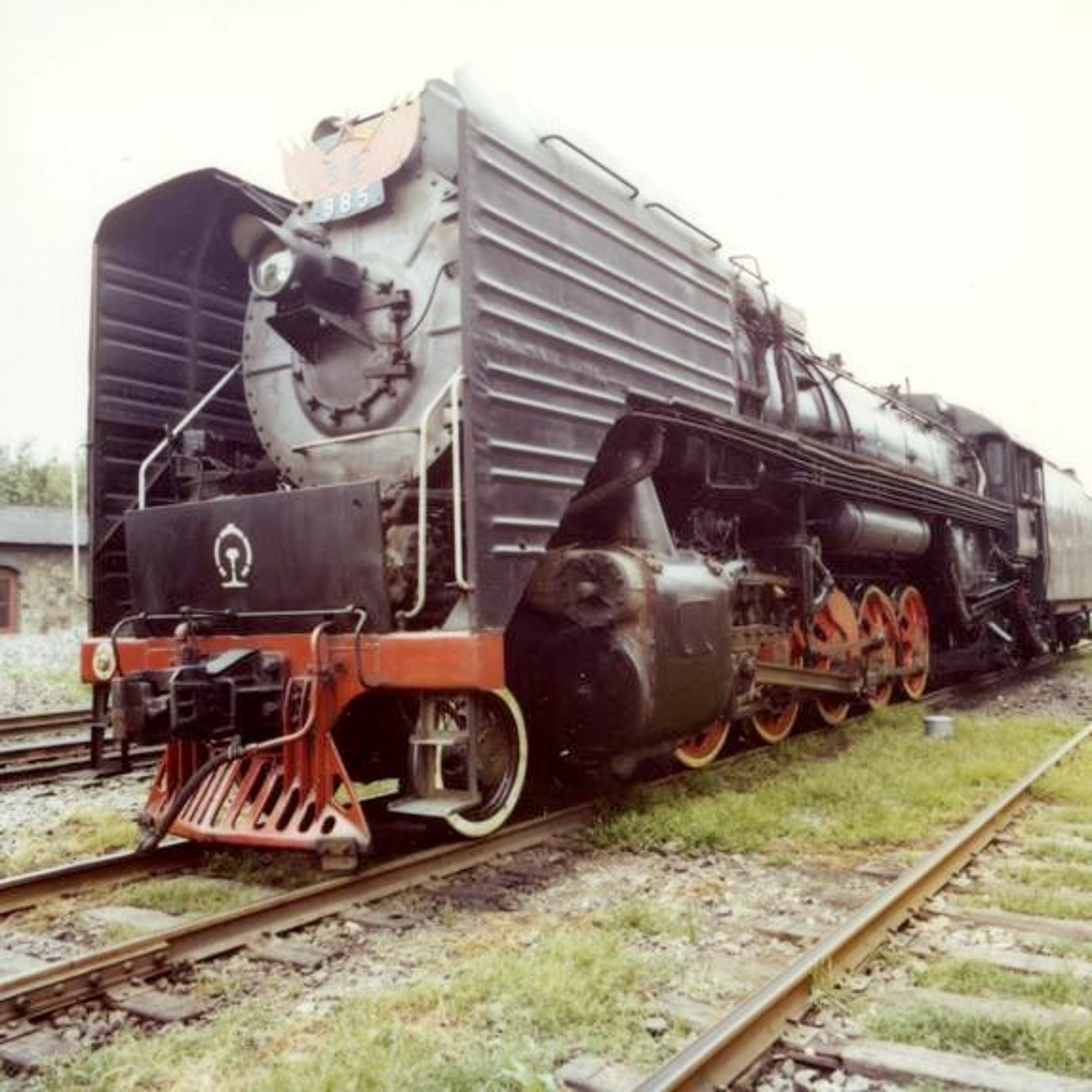
Hagley History HangoutChina's Dream of a Red Railway: Technicians & Industrial Power, 1945-1976 with Benjamin KletzerRailroads unite. Across time and space the railroad has tied together diverse peoples and places with literal and figurative bonds. An outstanding example of this historical process is the transfer and elaboration of a railroad technocracy from origins in the United States to efflorescence in the People’s Republic of China. In his dissertation project, Benjamin Kletzer, PhD candidate in modern Chinese history at the University of California at San Diego, explores the post-WWII history of the China national railway, its embrace of technocratic management, it relationship to the Chinese Communist Party, and its technical and organizational roots in the Pe...
2023-01-0945 min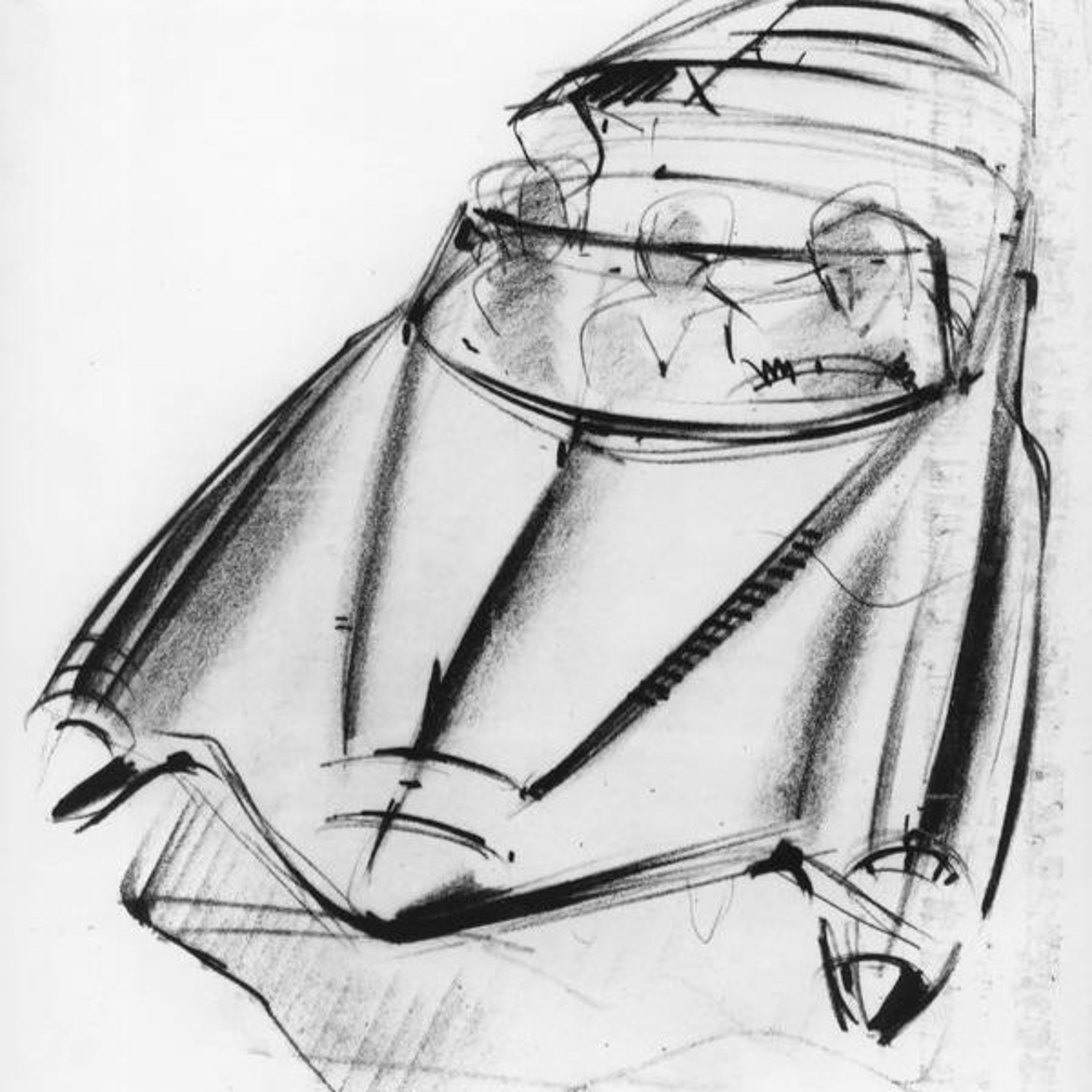
Hagley History HangoutDetroit Muscle: Automobile Manufacturing and the Middle West with Kevin MoskowitzLong before automobiles roll off the assembly line, their many components are manufactured by a sprawling constellation of smaller businesses that supply the makers of finished automobiles. This automobile supply chain began in the 1920s within the Detroit metropolitan area, and by the 1960s had swollen to embrace an area roughly 600 miles in radius with its core remaining in southeast Michigan. The story of how the automobile supply chain developed during the first half of the twentieth century, and why it took the specific spatial and economic form that it did, are the subjects of a dissertation project by Kevin...
2022-11-1431 min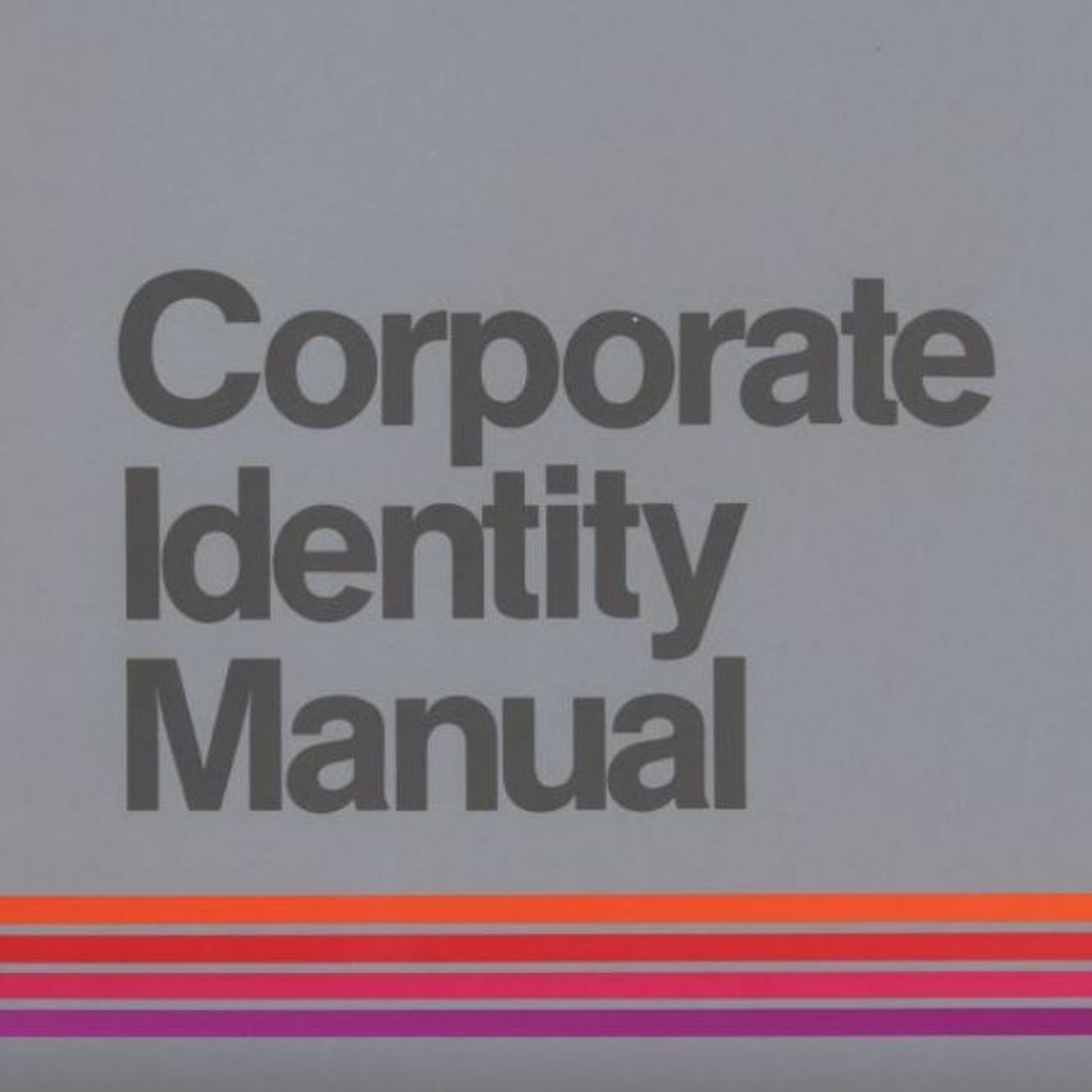
Hagley History HangoutImagining the Future of Business, 1961-1996 with Gavin BenkeCorporate futurists made a living with their imaginations. These professional prognosticators spent their time looking at the world around them, observing its apparent changes and trends, and reporting to business and political leaders proscribed methods for interpreting and preparing for the future. Dr. Gavin Benke, senior lecturer at Boston University, dug into multiple Hagley Library collections, including those of the Chamber of Commerce, National Association of Manufacturers, and Conference Board, to explore the careers and influence of twentieth-century corporate futurists.
Beginning in the 1960s, corporate futurists extrapolated from social trends to predict a future business environment where people would demand...
2022-10-0328 min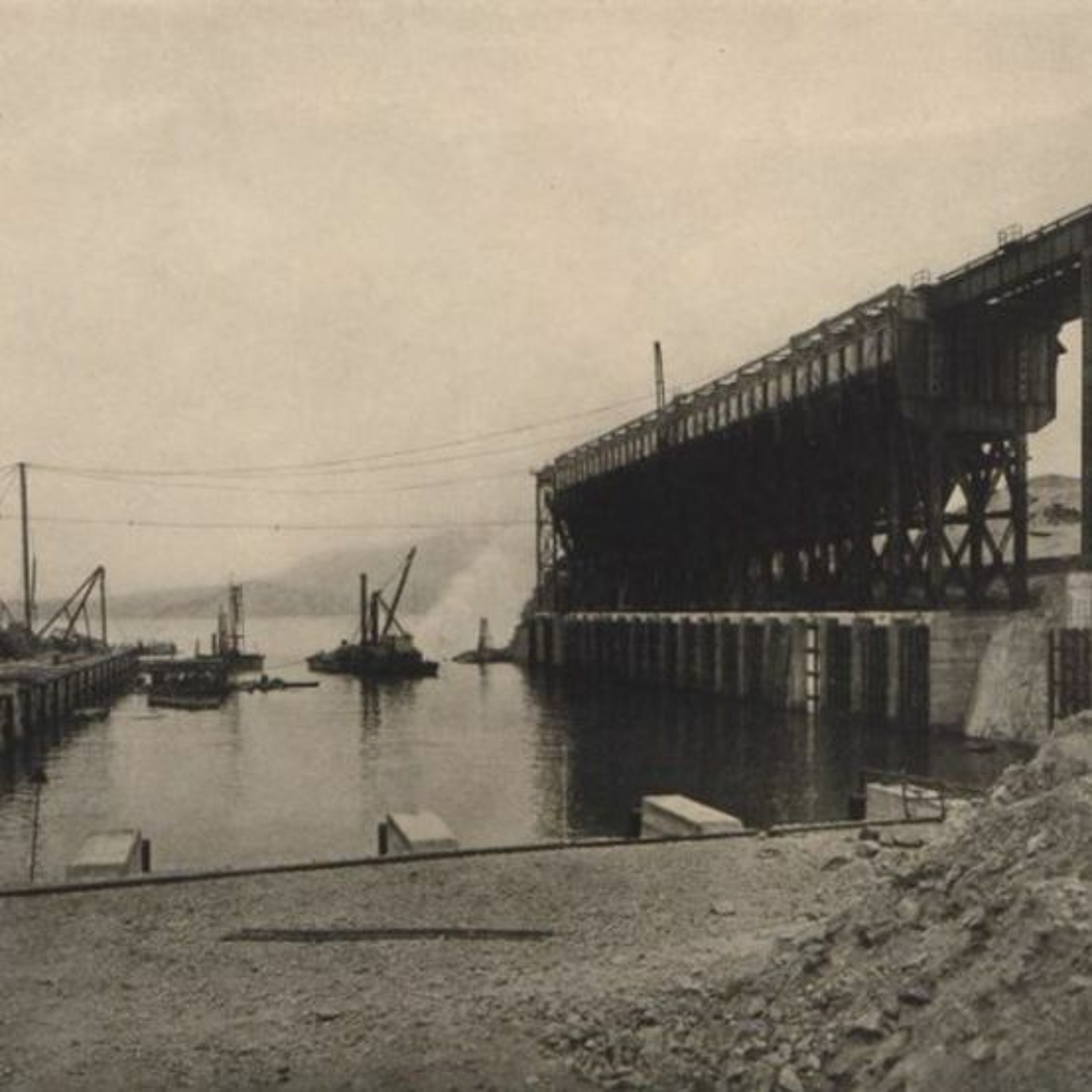
Hagley History HangoutEmpire of Steel: Bethlehem in Latin America with Cory Fischer HoffmanThe Empire of Bethlehem Steel stretched from a small eastern-Pennsylvania city across the United States and down to Cuba, Mexico, Venezuela, Chile, and Brazil. It encompassed dozens of plants, concerns, and subsidiary firms, and touched the lives of millions of people across multiple continents. During a century (1880s-1980s) of involvement in Latin America, Bethlehem Steel Company imported cheap materials (iron, manganese) while exporting technical, corporate, and social practices developed in the United States.
Telling this story is Dr. Cory Fischer Hoffman, visiting assistant professor at Lafayette College, whose research into the Bethlehem Steel Company uncovers the global connections that...
2022-09-1933 min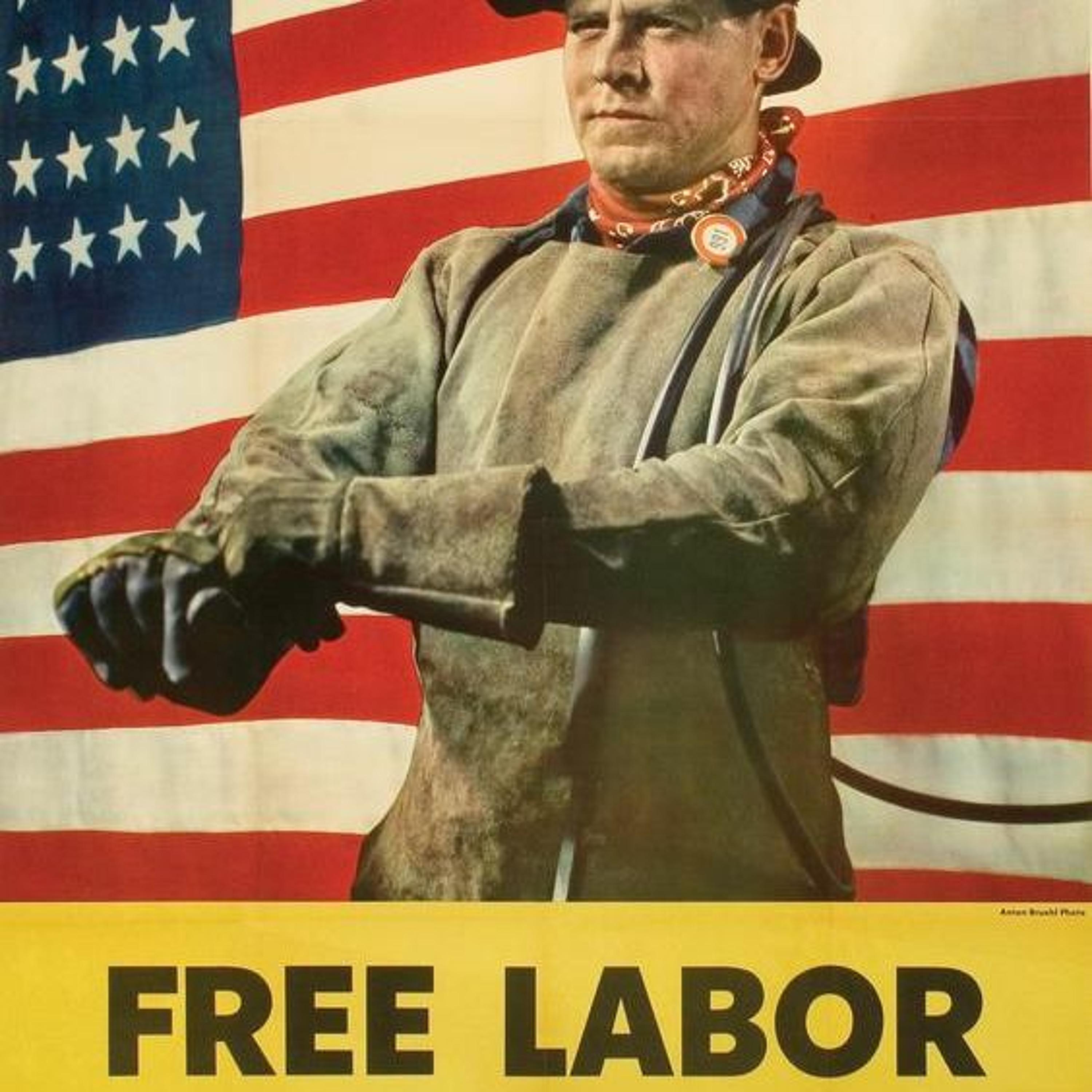
Hagley History HangoutCompany Unions & Worker Identity with Alex FleetDuring the 1920s, major American corporations established in-house labor unions to address worker agitation. Labor historian Alex John Fleet, PhD candidate at Wayne State University, explores the phenomenon in his dissertation research. Seeking to uncover how company unions intersected with changing labor-management relations, and broader changes in the workplace social environment, Fleet explored the archives of several large firms of the era, notably Goodyear rubber held in Ohio, and Bethlehem Steel held at the Hagley Library. Both companies established in-house labor unions, and organized means for worker representatives to air and possibly seek redress of grievances.
Company unions were not...
2022-08-2229 min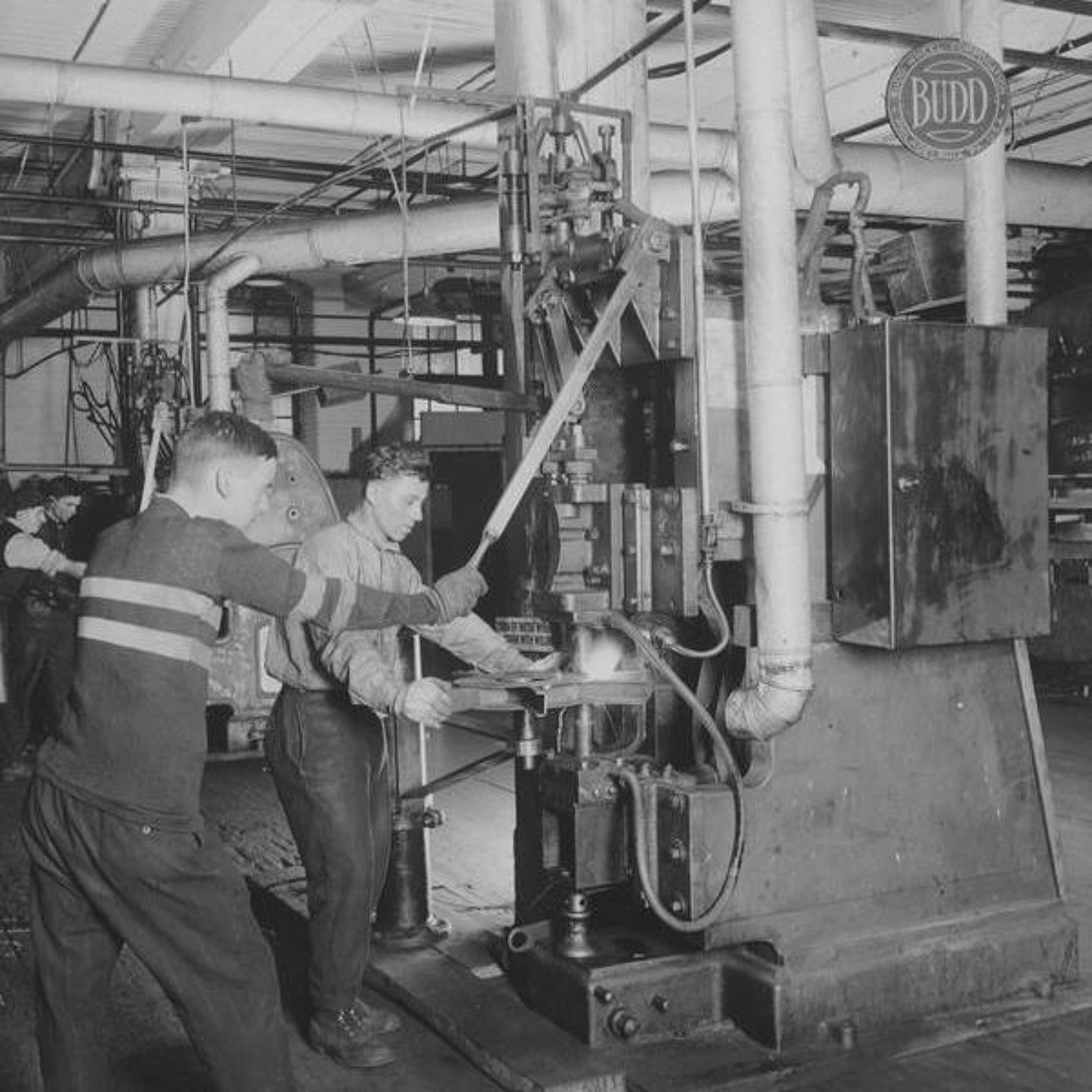
Hagley History HangoutTechnological Change & Work with Ben SchneiderWhat happens to jobs when technology changes? How do new technologies change the ways people experience and think about work? Economic historian Ben Schneider, Postdoctoral Fellow at the Work Research Institute at Oslo Metropolitan University, explores these questions and more in his research on technology and work. Taking textile manufacturing and transportation as his case studies, Dr. Schneider developed a novel matrix for analyzing changes in work over time as measured not only quantitatively by wages and hours, but also qualitatively by security, satisfaction, safety, and similar social metrics. This framework allows him to recover and analyze changes in work...
2022-07-1132 min
Hagley History HangoutBorn in the USA/Made in the GDR: Western Popular Music & a Communist Record Market with Sven KubeWhat did the Cold War sound like? How did political ideologies shape the differing experiences of musicians and consumers in the capitalist versus the communist world? Did the Iron Curtain muffle the raucous sounds of western popular music? Or were consumers in communist countries able to access capitalist pop? All these questions and more find answers in the work of cultural historian, and 2022 Hagley-NEH Postdoctoral Fellow, Dr. Sven Kube.
Blending archival research with oral history and personal experiences, Kube uncovers the fascinating story of a worldwide youth culture of popular music bisected by the geopolitical divisions of the Cold War...
2022-06-1331 min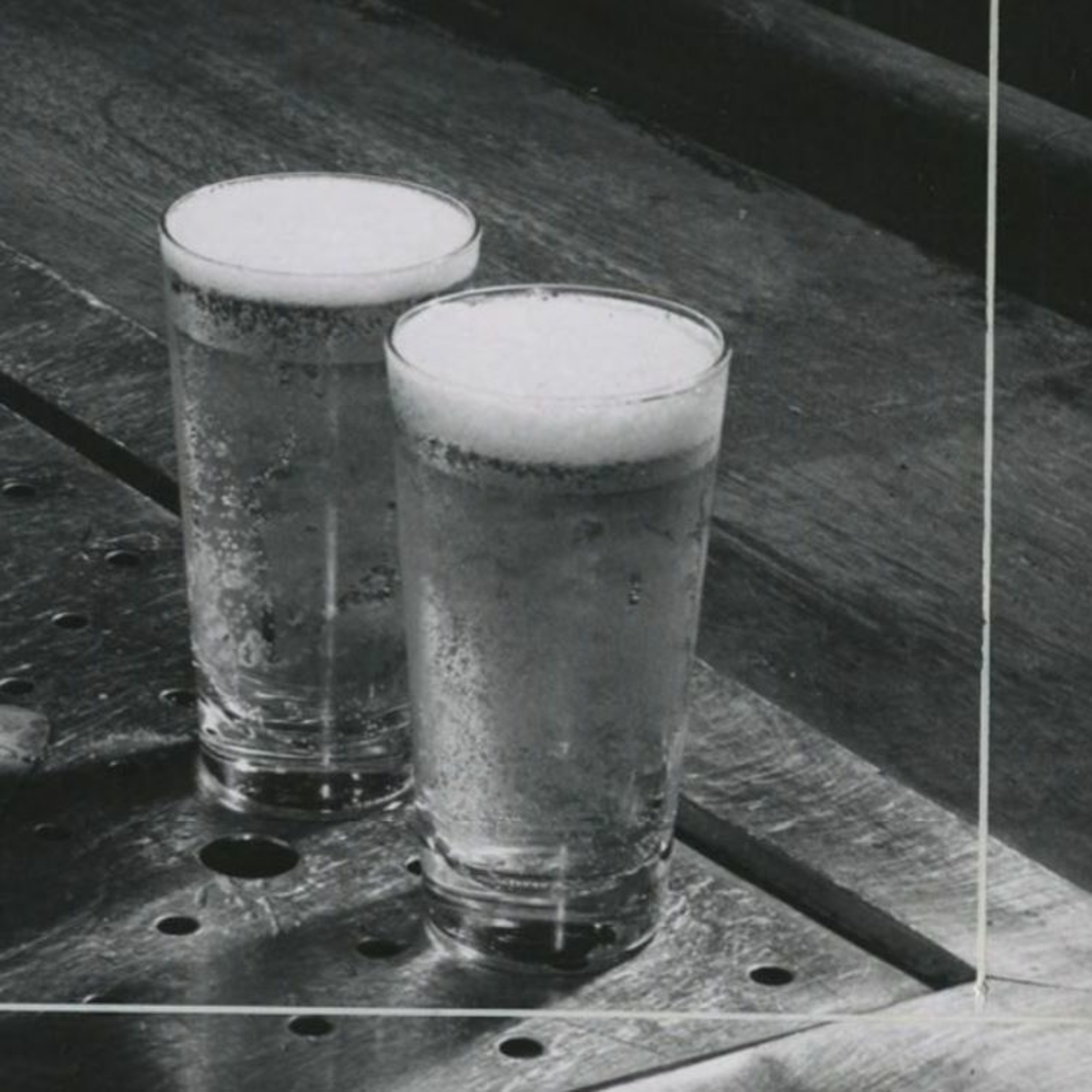
Hagley History HangoutNature’s Brew: An Environmental History of American Brewing with Cody PattonHow many species had a hand in making that glass of beer? From the perspective of environmental history, human artefacts like beer result from more-than-human collaboration across time. Barley plants, hop vines, single-cell organisms, and a multiplicity of humans work together to bring beer into existence, and react to changes in the meteorological and economic climates. Taking these interactions seriously allows us to better understand the history of American brewing, and its implications for the future of business in an era of climate change.
Environmental historian Cody Patton, PhD candidate at Ohio State University, is uncovering this history in his...
2022-05-1630 min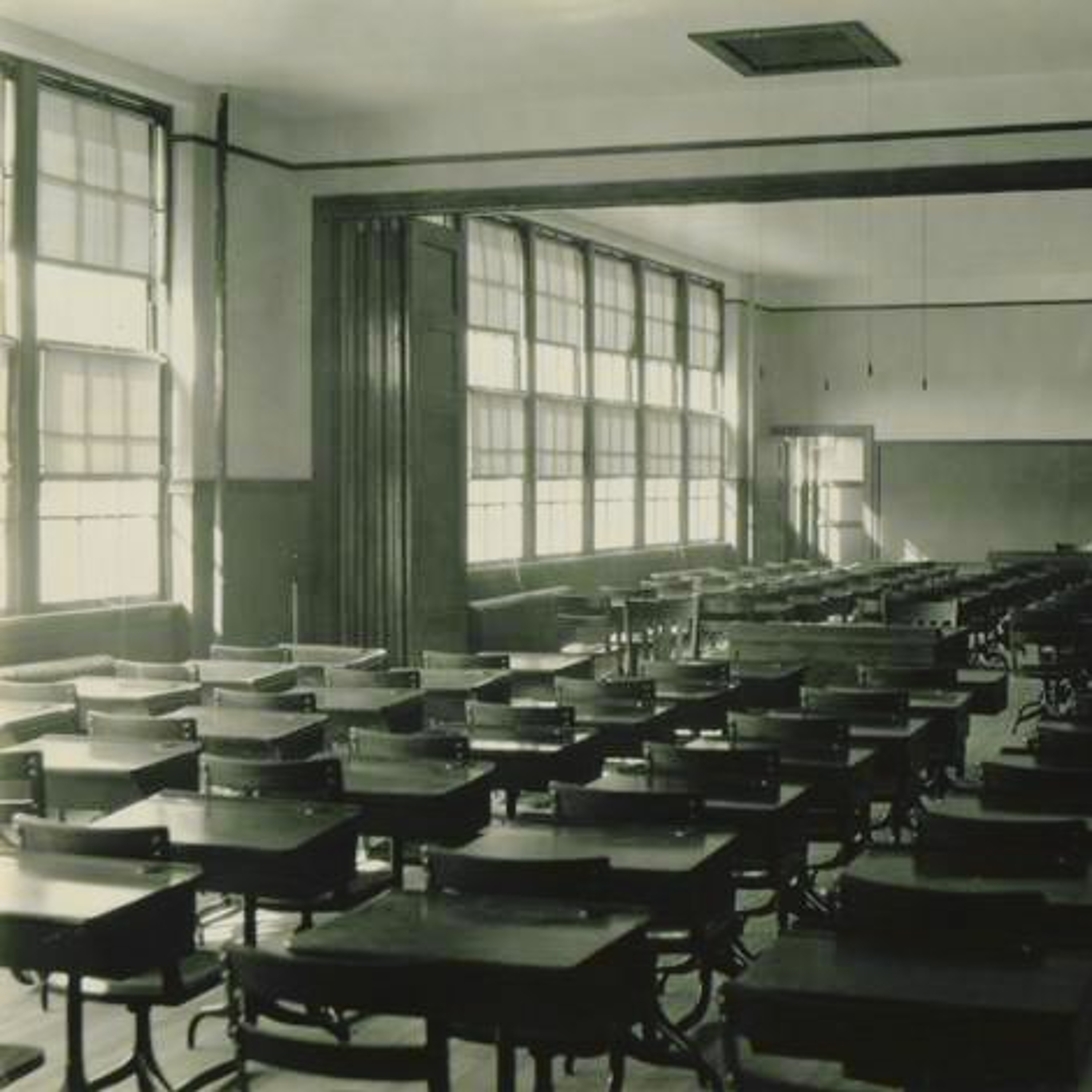
Hagley History HangoutTax the Rich: Teachers’ Fight to Fund Public Schools with Kelly GoodmanTax the Rich: Teachers’ Fight to Fund Public Schools with Kelly Goodman
Education is among the largest public expenditures in the United States. How is school funding determined, and by whom? Between 1930 and 1980, teachers organized with allies to create new streams of funding to support public education, while their opponents counter-organized to reduce the ability of state governments to collect taxes and fund public services. By the end of the era, anti-tax interests have gained the ascendant, divided the pro-tax coalition, and put teachers on their back heel.
Kelly Goodman, adjunct professor at West Chester University, uncovers this tale as it...
2022-04-1819 min
Hagley History Hangout“People of Some Talent & So Much Virtue”: Forgotten Lives of du Pont Women with Kelsey McNiffSilence speaks volumes. Especially silences in historical memory, which reflect the values of a society as it chooses what and whom to remember. The du Pont family’s arrival in the United States is a well-worn tale of visionary men; what about the women of the family, their lives, perspectives, and contributions? The low profile of du Pont women in historical memory compared to that of their male counterparts reflects not a lack of sources or evidence (there is plenty of both), but a choice by researchers, writers, and historians to emphasize certain aspects of the story, and to forget ot...
2022-04-0429 min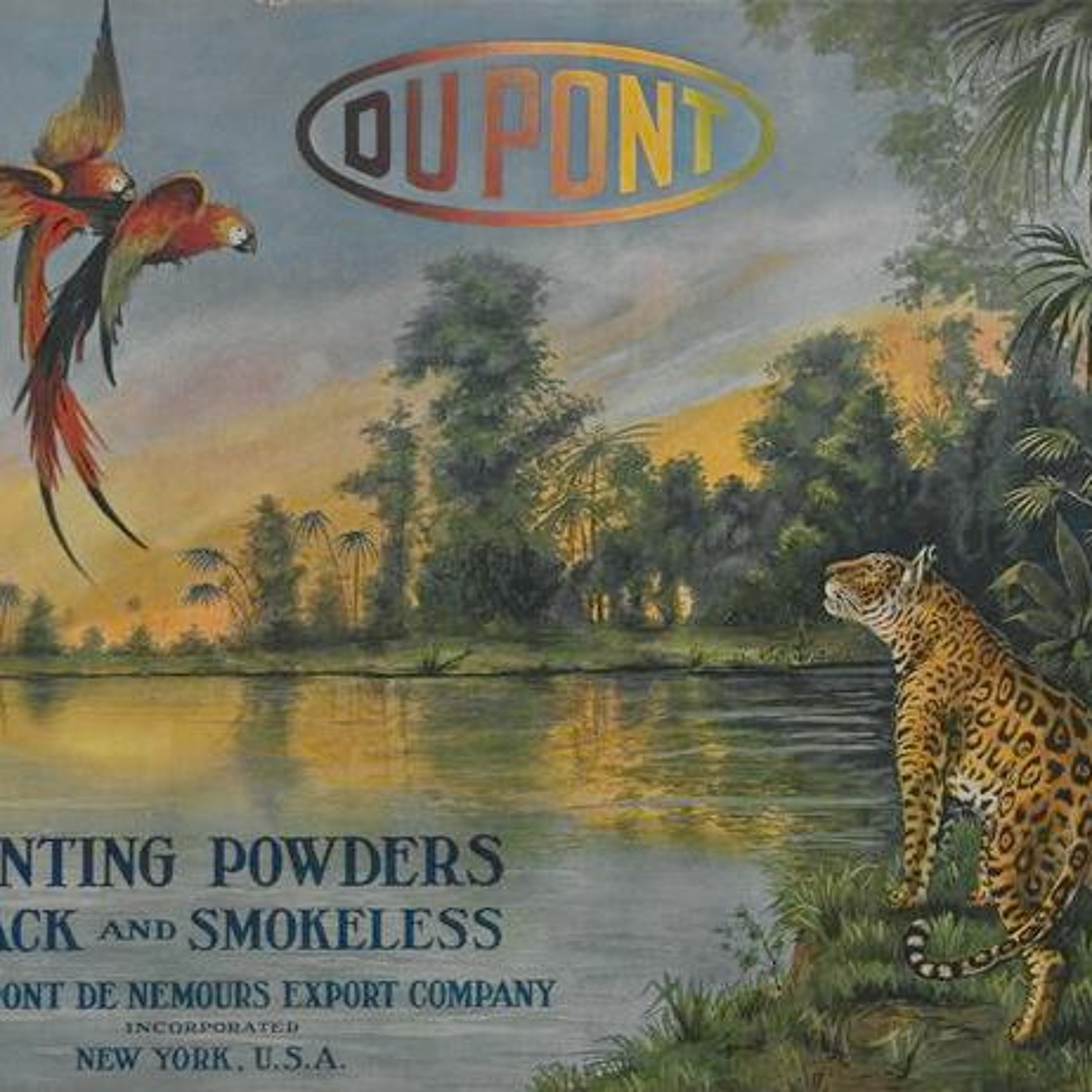
Hagley History HangoutIndustrial Semiotics: United States Visual Culture, 1880s to the 1950s with Derek Vouri-RichardTwenty-first-century Americans are saturated with visual imagery and punchy messages authored by large organizations. This was not always so. Techniques for standardized mass communication developed in the late nineteenth century, such as photography, inexpensive printing, “magic lanterns,” and motion pictures, offered organization leaders unprecedented means to create shared understandings of facts and symbols across large groups of people. The study of the process by which symbolic meanings are promulgated through social groups is called semiotics, and the period between the 1880s and the 1950s offers the semiotician a rich study of dramatic change.
Derek Vouri-Richard, a PhD candidate in American Stud...
2022-03-0730 min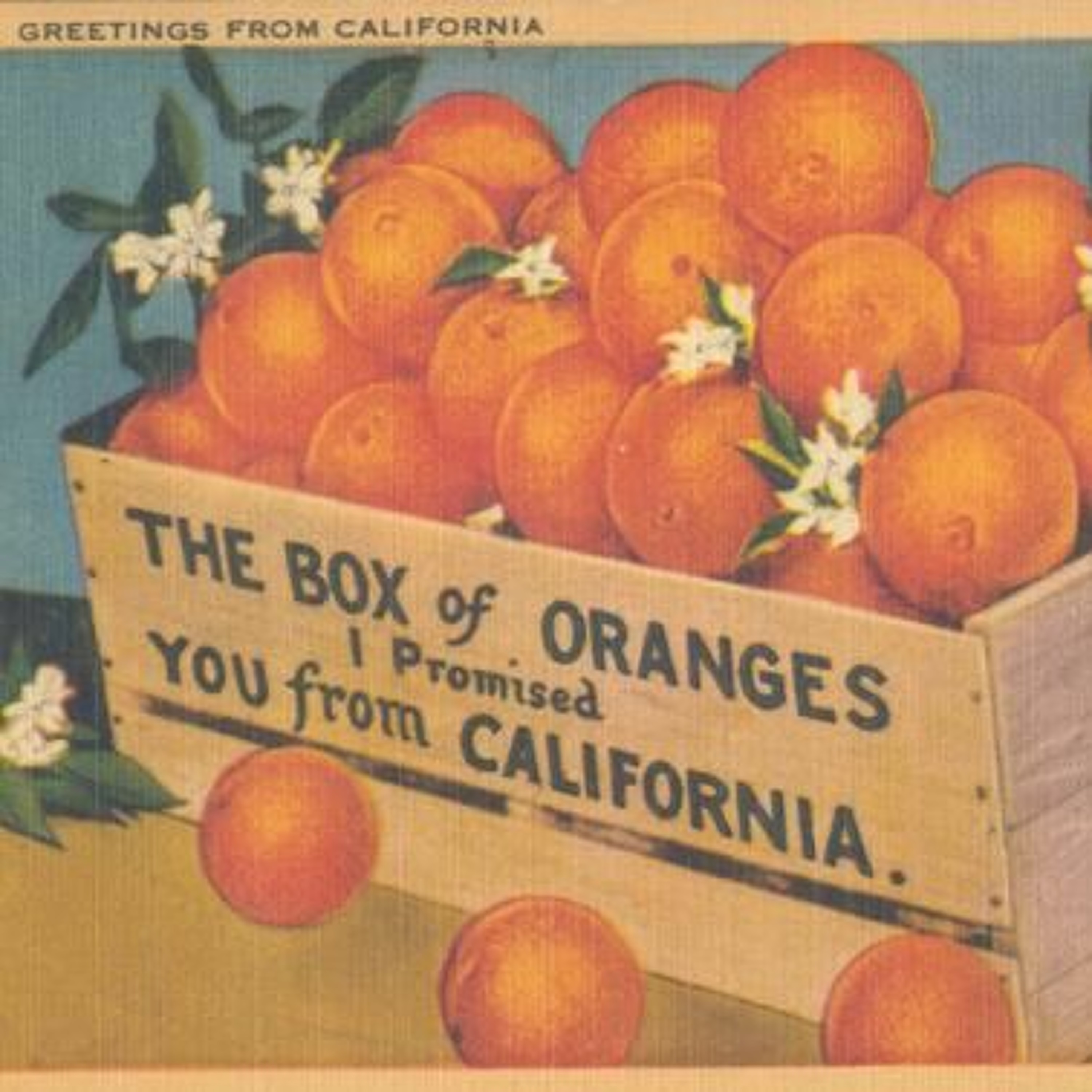
Hagley History HangoutUnpeeling the Orange Empire: Citrus & Art in the Archive with Suzy KopfHow did citrus fruit come to carry its particular meaning in American consumer culture? Visual artist Suzy Kopf, instructor at the Maryland Institute College of Art, visited the Hagley Library to research citrus companies’ efforts to sell their products to Americans. What she found was a much deeper story of how changing technologies, markets, and popular culture made citrus, and its semitropical cousin avocado, into a beacon of sunshine, fun, and desirability.
Supported by an exploratory grant from the Center for the History of Business, Technology, & Society, Kopf dug into a variety of collections to uncover the untold stories of Am...
2021-11-0139 min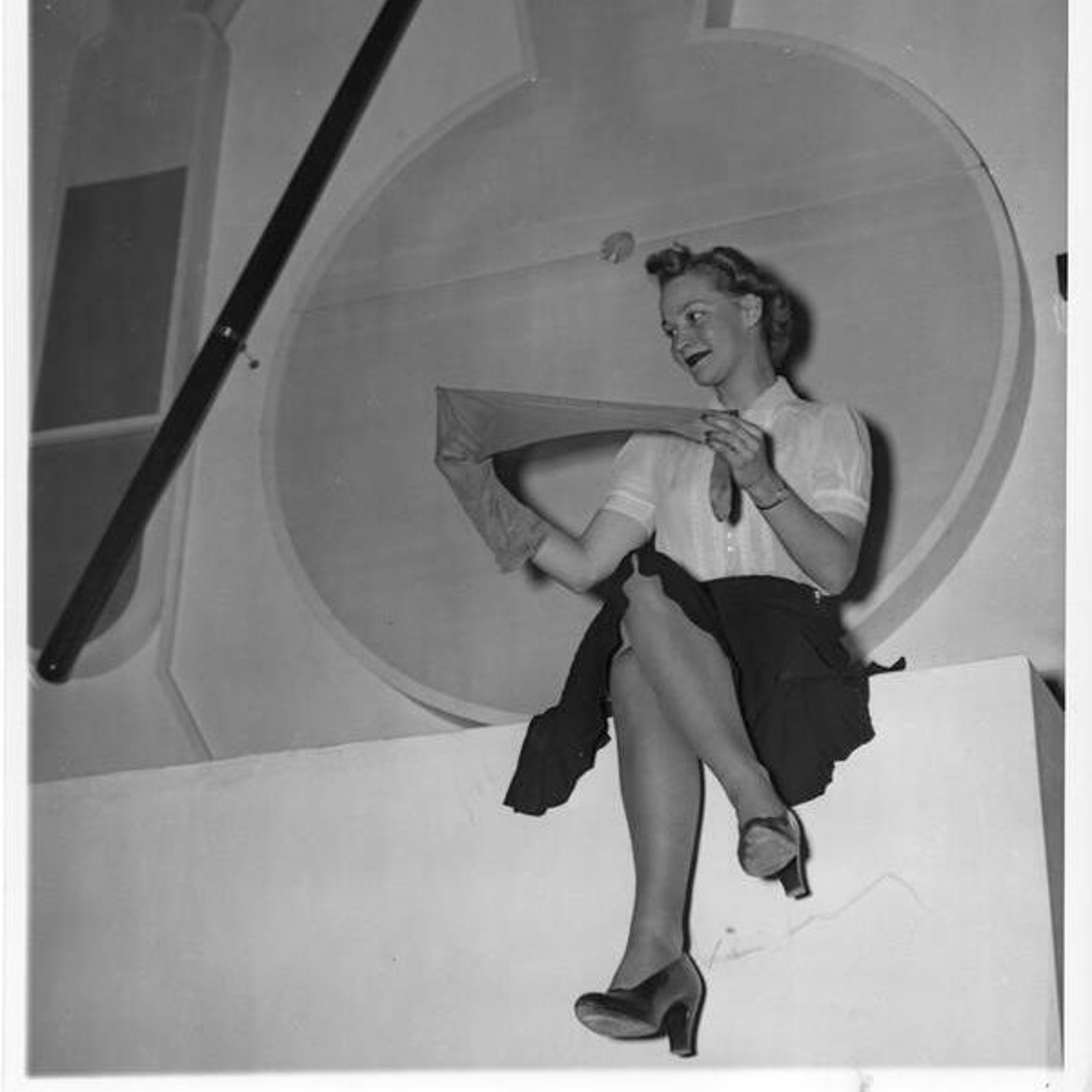
Hagley History HangoutTime-Bombing the Future: Plastics In & Around Us with Rebecca AltmanHagley Center program officer Gregory Hargreaves interviews Dr. Rebecca Altman about her research into the intimate history of synthetic materials, industrial chemistry, & the human body. Altman, an environmental sociologist, has made extensive use of the Hagley Library’s vast collection of digitized materials available worldwide at digital.hagley.org.
Cattle drinking from a creek near the Ohio River ingest PFAS and become unwitting agents for the circulation of synthetic materials through the natural world. The legacies of industrial chemistry lace together society and the environment, making synthetic materials such as plastic an ideal location to study the historical relationship that ex...
2021-10-1828 min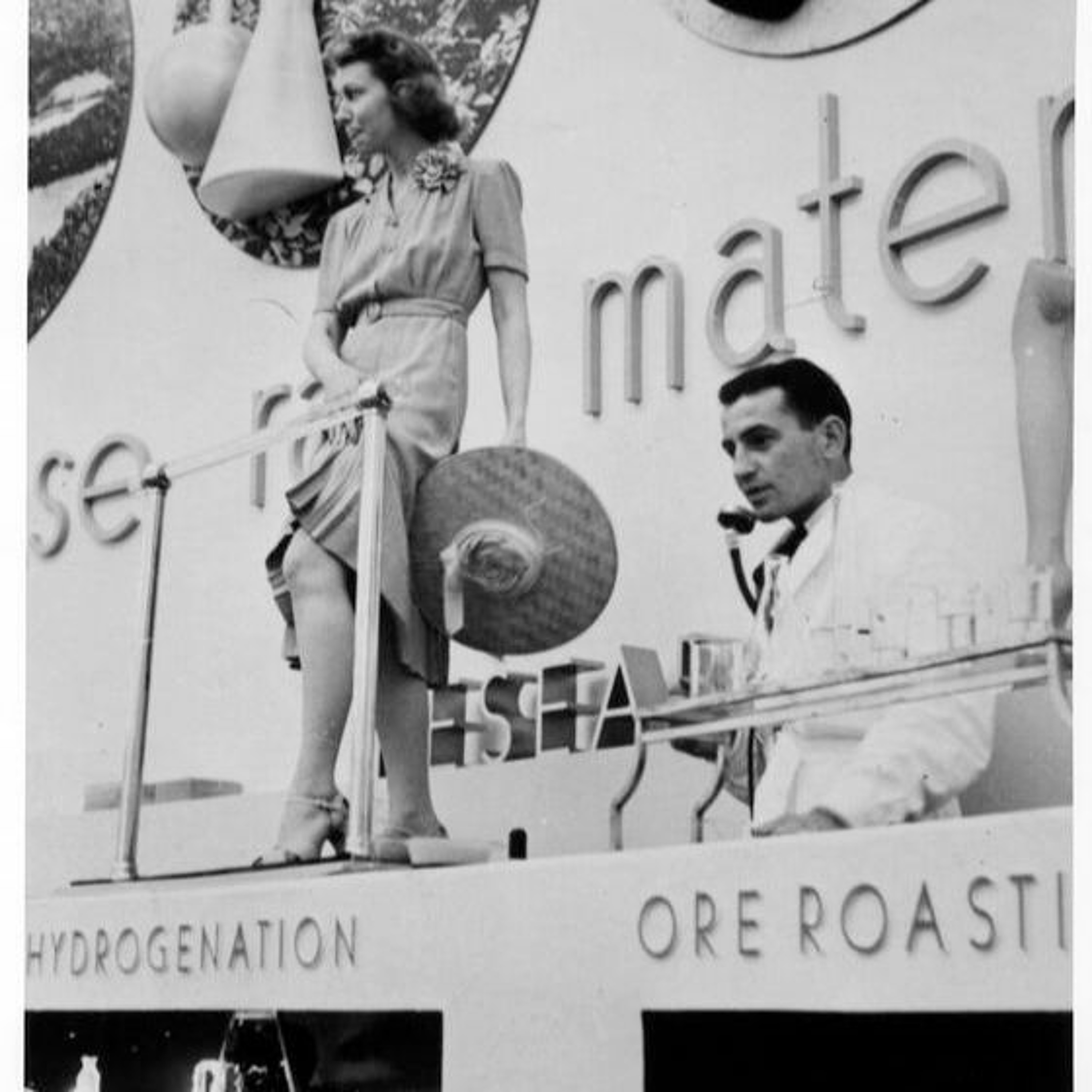
Hagley History HangoutTheater of Innovation: Live Performance in the Tech Industry with Li CornfeldHagley Center program officer Gregory Hargreaves interviews Dr. Li Cornfeld about her research into the history of theatrical live performance as a means of unveiling and promoting novel technologies. In support of her project, Cornfeld, a postdoctoral fellow at the University of Michigan Digital Studies Institute, received a NEH-Hagley postdoctoral fellowship from Center for the History of Business, Technology, & Society.
A man in a black turtleneck stands upon a spot-lit stage and holds aloft a small rectangular object to the audible adulation of crowded onlookers. The showman’s spectacle of technology demos may be a familiar one, but its many va...
2021-09-2036 min
Hagley History HangoutDigital Archaeology: Rediscovering Early Video Games with Kevin BunchGregory Hargreaves interviews Kevin Bunch about his research into the early history of video games, and his innovative use of Hagley materials to recreate forgotten games. In support of his project, Bunch, a writer & communications specialist at the International Joint Commission, received support from the Center for the History of Business, Technology, & Society.
What makes a video game system commercially successful, and is it possible to resurrect failed and forgotten video games? The RCA collections at the Hagley Library hold the answer to these questions and many more, and the work of Kevin Bunch bring them to light. Combining archival...
2021-06-2831 min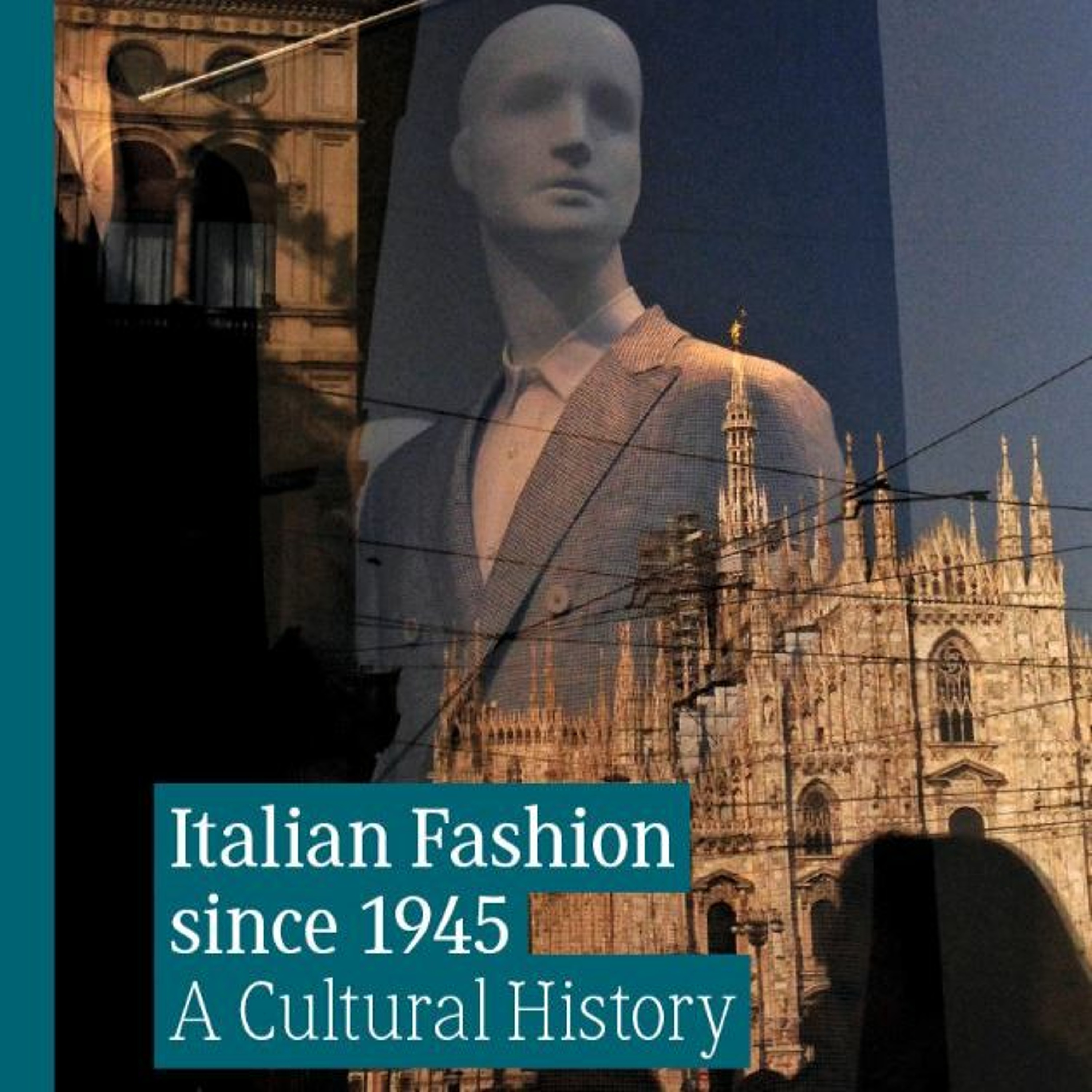
Hagley History HangoutItalian Fashion Since 1945: A Cultural History with Emanuela ScarpelliniIn the course of the twentieth century, Italy succeeded in establishing itself as one of the world's preeminent fashion capitals, despite the centuries-old predominance of Paris and London. This book traces the story of how this came to be, guiding readers through the major cultural and economic revolutions of twentieth-century Italy and how they shaped the consumption practices and material lives of everyday Italians. In the interview, Emanuela Scarpellini explores the economic and cultural changes that made it possible for Italian fashion to rise to world prominence in the 1960s and 1970s. She also uncovers the important role played by...
2021-05-3159 min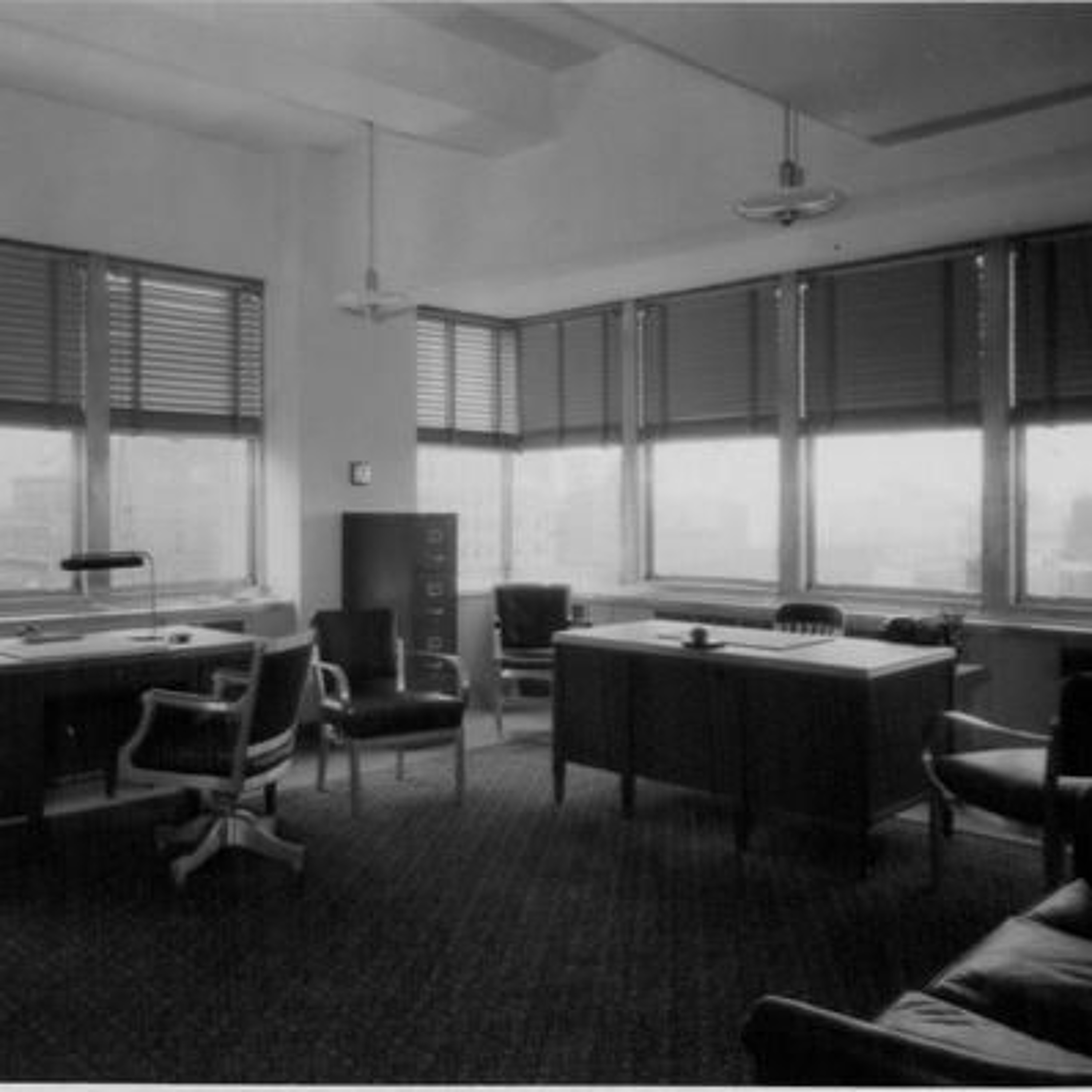
Hagley History HangoutCorner Office: Masculinity & the American Business Executive with Karen MaharProgram officer Gregory Hargreaves interviews Dr. Karen Mahar about her book project “Corner Office: Masculinity & the American Business Executive.” In support of her project, Mahan, an assistant professor, and co-director of American Studies at Siena College, received an NEH-Hagley fellowship from the Hagley Center for the History of Business, Technology, & Society.
In “Corner Office,” Mahan considers the many ways ideas of masculinity have shaped and been shaped by the development of American business practices. Among the most fascinating documents discovered by Dr. Mahar in the Hagley collections was a manual for identifying executive potential in employees, complete with physical characteristics more rem...
2021-05-1719 min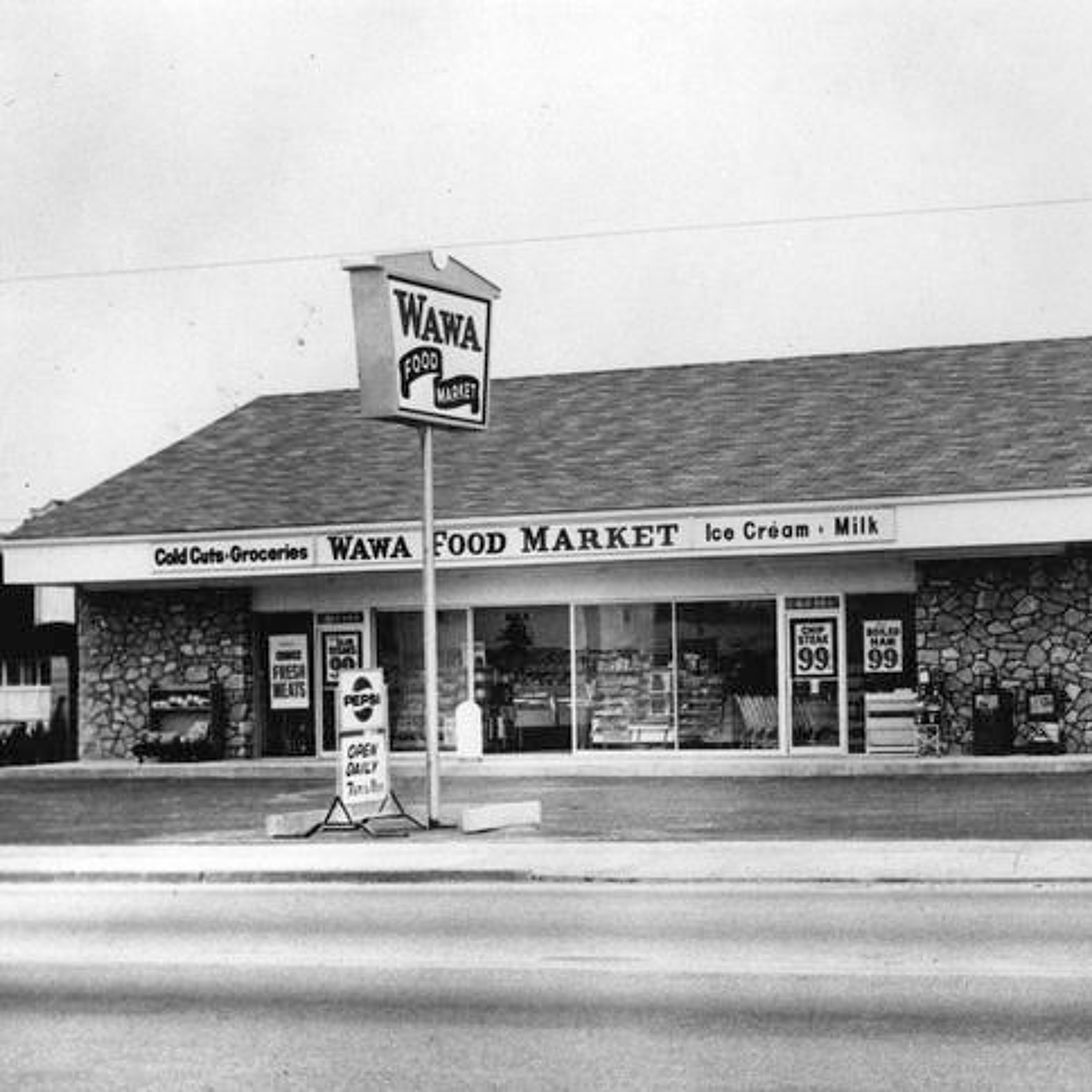
Hagley History HangoutBin, Bag, Box: The Architecture of Convenience with Louisa IarocciBin, Bag, Box: The Architecture of Convenience
Gregory Hargreaves interviews Louisa Iarocci about her research project “Bin, Bag, Box: The Architecture of Convenience,” in support of which, Iarocci, an associate professor at the University of Washington at Seattle, received an exploratory grant from the Hagley Center for the History of Business, Technology, & Society.
In “Bin, Bag, Box,” Iarocci discusses her research into the design history of convenience stores, those ubiquitous retail locations meant to serve the “top-up” style of shopping, where customers buy little but often. Louisa suggests that the design of convenience store buildings is intimately tied to the packages and...
2021-02-0933 min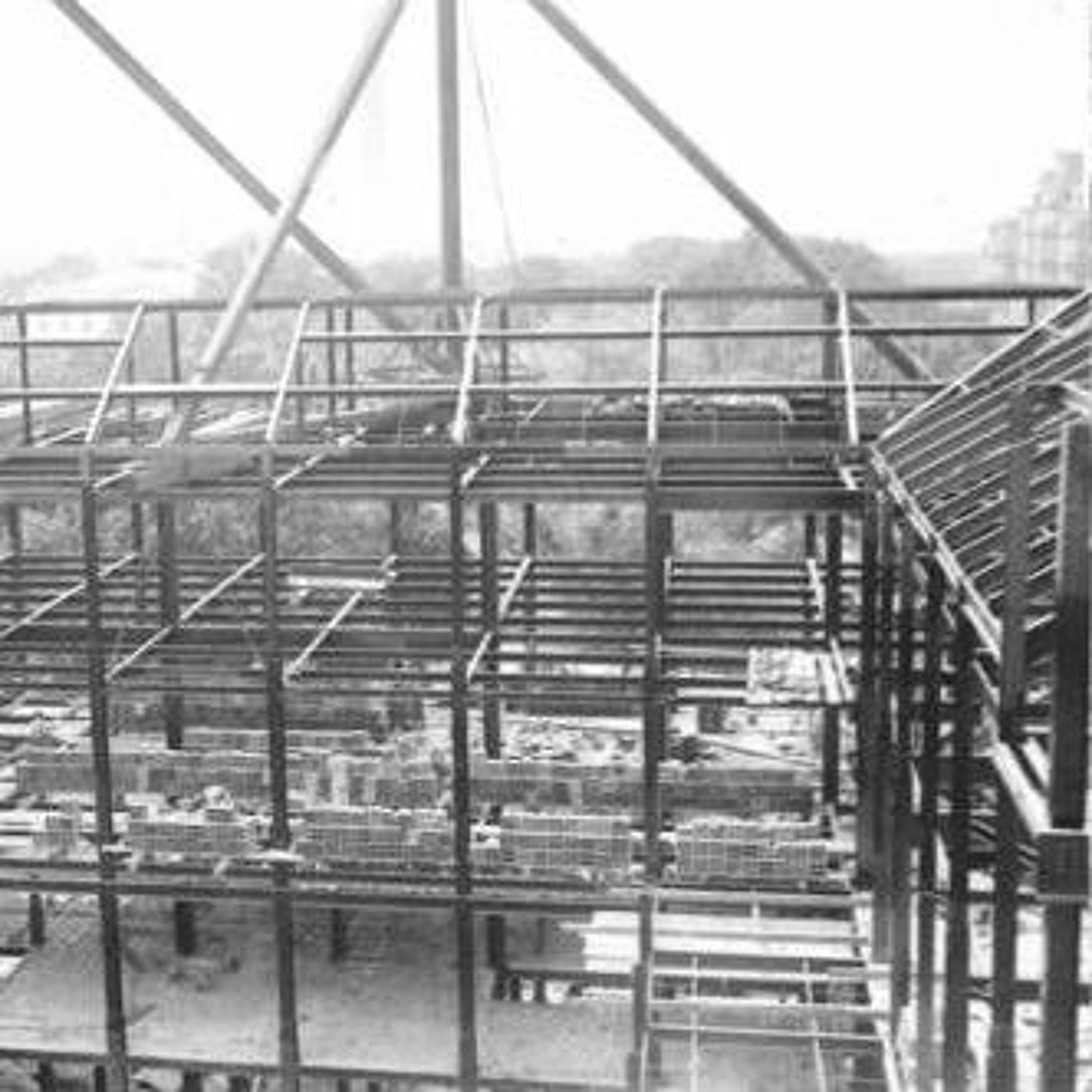
Hagley History HangoutINTRODUCTION OF THE ROLLED I-BEAM IN THE U.S.A. IN THE 1850S, REVISITED with Sara WermielINTRODUCTION OF THE ROLLED I-BEAM IN THE U.S.A. IN THE 1850S, REVISITED
Gregory Hargreaves interviews Sara Wermiel about her research project “Introduction of the Rolled I-Beam in the U.S.A. in the 1850s, Revisited.” In support of her research, Wermiel, an independent scholar & historic preservation consultant, received a Henry Belin du Pont research grant from the Hagley Center for the History of Business, Technology, & Society.
In “Introduction of the Rolled I-Beam,” Wermiel explores the development and adoption of the building section known as the “rolled I-beam,” a structural beam that in cross-section appears like a capital letter ‘I,’ and which...
2021-01-1132 min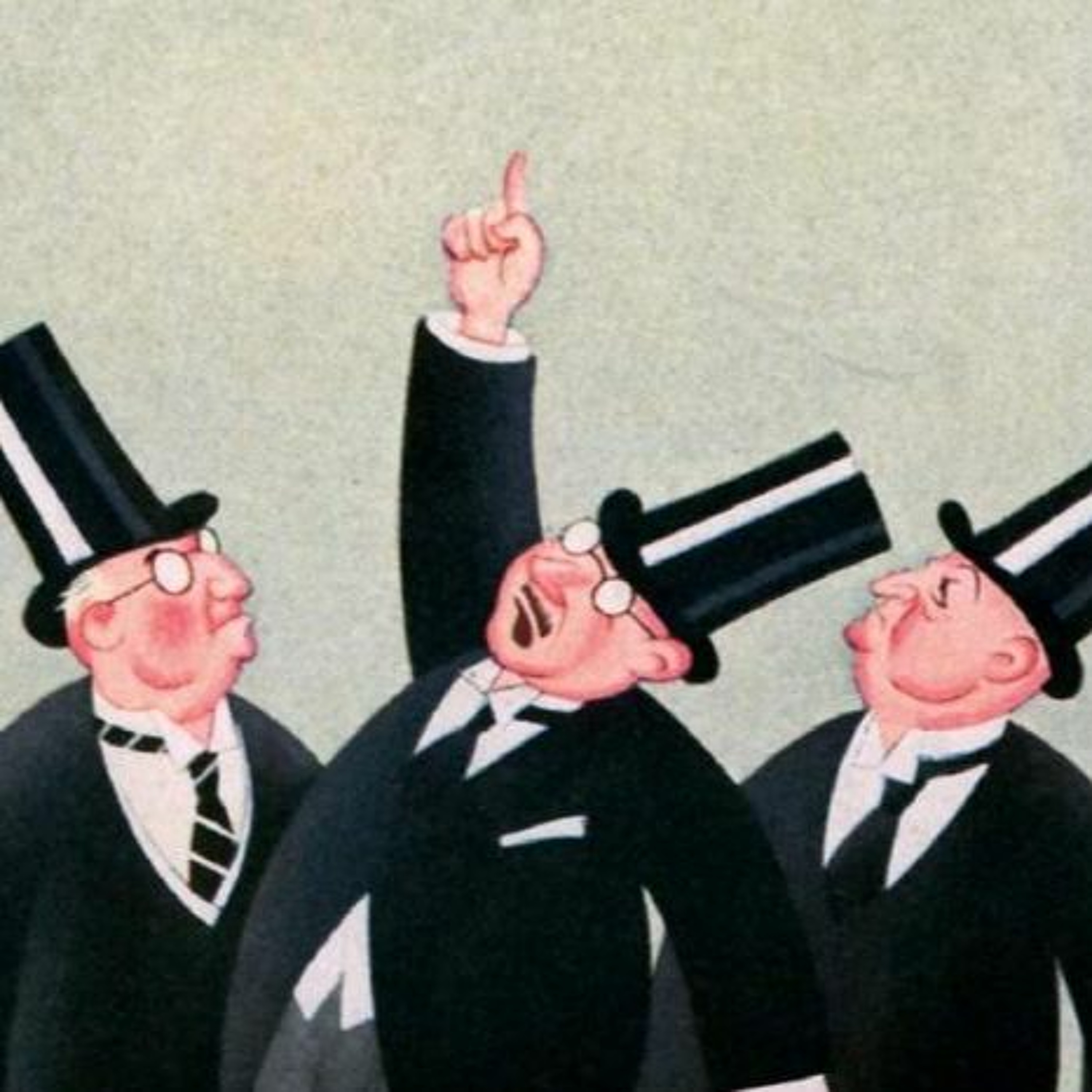
Hagley History HangoutAMERICAN FAIR TRADE: THE 'NEW COMPETITION,' 1890–1940 with Laura Phillips SawyerAMERICAN FAIR TRADE: PROPRIETARY CAPITALISM, CORPORATISM, AND THE 'NEW COMPETITION,' 1890–1940
Roger Horowitz interviews Laura Phillips Sawyer about her recent book, American Fair Trade: Proprietary Capitalism, Corporatism, and the 'New Competition,' 1890–1940 (Cambridge University Press, 2018). Phillips Sawyer, an associate professor at University of Georgia Law School, used the Chamber of Commerce of the United States collection at Hagley in her research.
In American Fair Trade, Laura Phillips Sawyer argues that American small businesses created an influential fair trade movement in the early twentieth century. These firms formed trade associations to lobby and litigate to reshape competition policy to their benefit. Fair...
2020-11-1040 min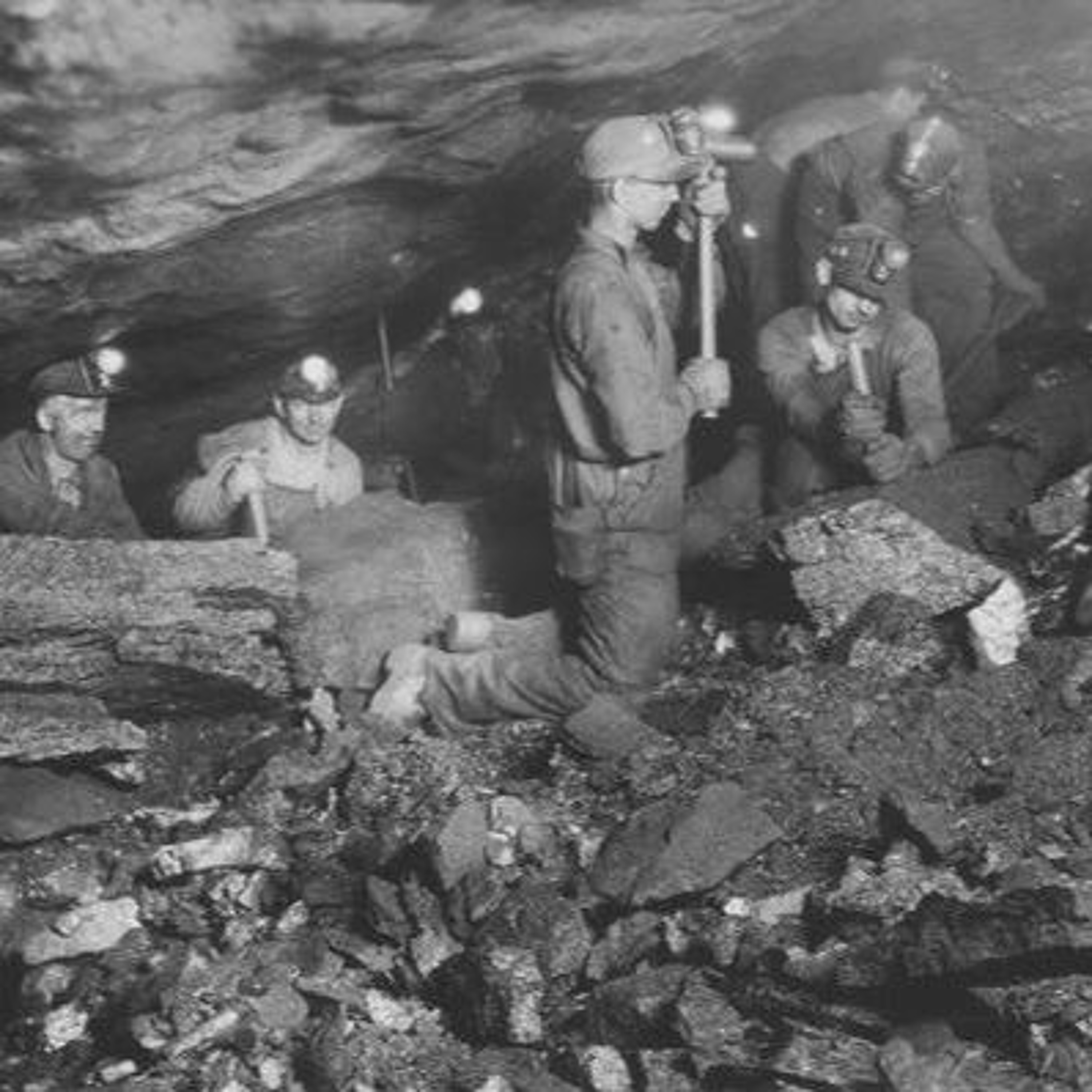
Hagley History HangoutTHE GRAVEYARD SHIFT: COAL & CITIZENSHIP IN THE AGE OF ENERGY CRISIS with Trish KahleTHE GRAVEYARD SHIFT: COAL & CITIZENSHIP IN THE AGE OF ENERGY CRISIS
Gregory Hargreaves interviews Trish Kahle about her book project “The Graveyard Shift: Coal & Citizenship in the Age of Energy Crisis.” Kahle, assistant professor in the Edmund A. Walsh School of Foreign Service at Georgetown University Qatar, received support for her research from the Hagley Center for the History of Business, Technology, & Society, including an exploratory grant and a Henry Belin du Pont research grant.
In “The Graveyard Shift,” Kahle discusses her research on the post-WWII political economy of coal, and its role in struggles over the civic rights & responsibilities entailed...
2020-11-0918 min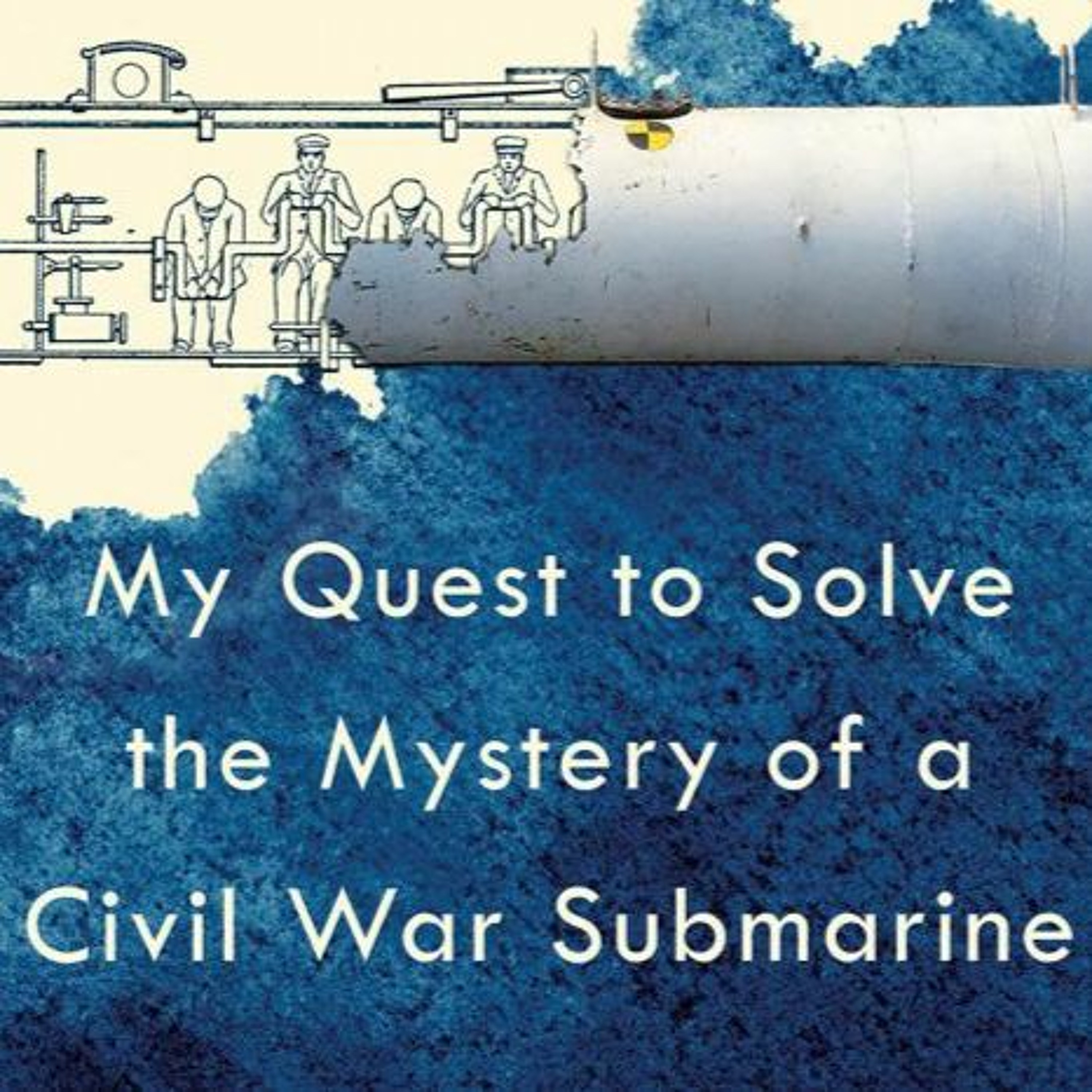
Hagley History HangoutLANCE’S QUEST TO SOLVE THE MYSTERY OF A CIVIL WAR SUBMARINE with Rachel LanceLANCE’S QUEST TO SOLVE THE MYSTERY OF A CIVIL WAR SUBMARINE
In this episode, Ben Spohn interviews Dr. Rachel Lance, an Assistant Consulting Professor in the Department of Anesthesiology at the Duke University School of Medicine on her new book, In the Waves: My Quest to Solve the Mystery of A Civil War Submarine (Dutton, 2020). Lance is a biomedical engineer and blast-injury specialist by training. Before earning her Phd. at Duke University, she worked as an engineer for the United States Navy, building specialized underwater equipment.
In In the Waves: My Quest to Solve the Mystery of a Civil Wa...
2020-10-2630 min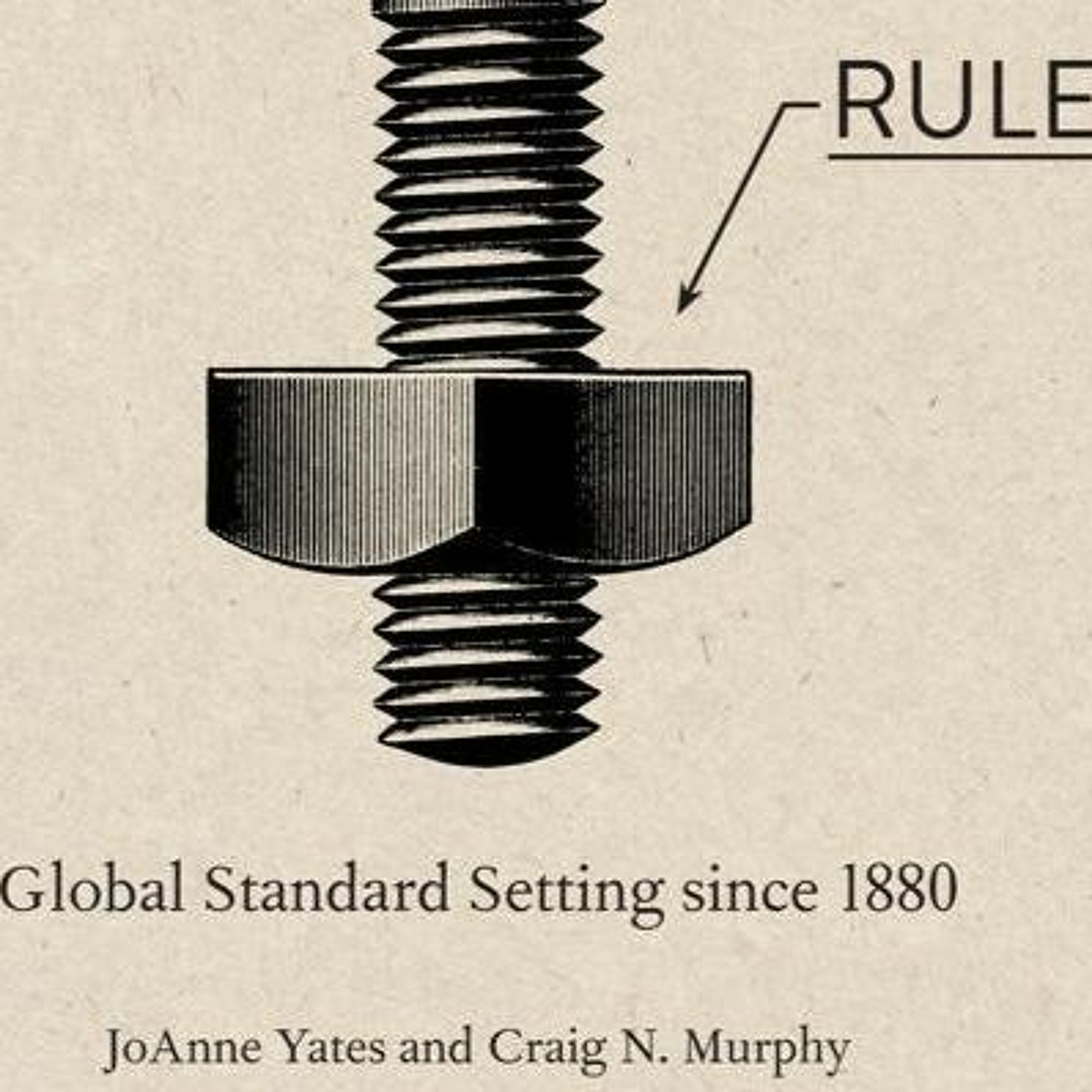
Hagley History HangoutENGINEERING RULES: GLOBAL STANDARD SETTING SINCE 1880 with Joanne Yates & Craig N. MurphyENGINEERING RULES: GLOBAL STANDARD SETTING SINCE 1880
Roger Horowitz interviews JoAnne Yates and Craig N. Murphy about their recent book, Engineering Rules: Global Standard Setting since 1880 (Johns Hopkins University Press, 2019).
JoAnne Yates (Sloan Distinguished Professor of Management, MIT) and Craig N. Murphy (the Betty Freyhof Johnson '44 Professor of Political Science, Wellesley College) used the Ralph Showers personal papers that are now in Hagley’s collections in their research.
Engineering Rules provides the first global history of voluntary consensus standard setting. Private, voluntary standards shape almost everything we use, from screw threads to shipping containers to e-readers. They have been critical to...
2020-10-1640 min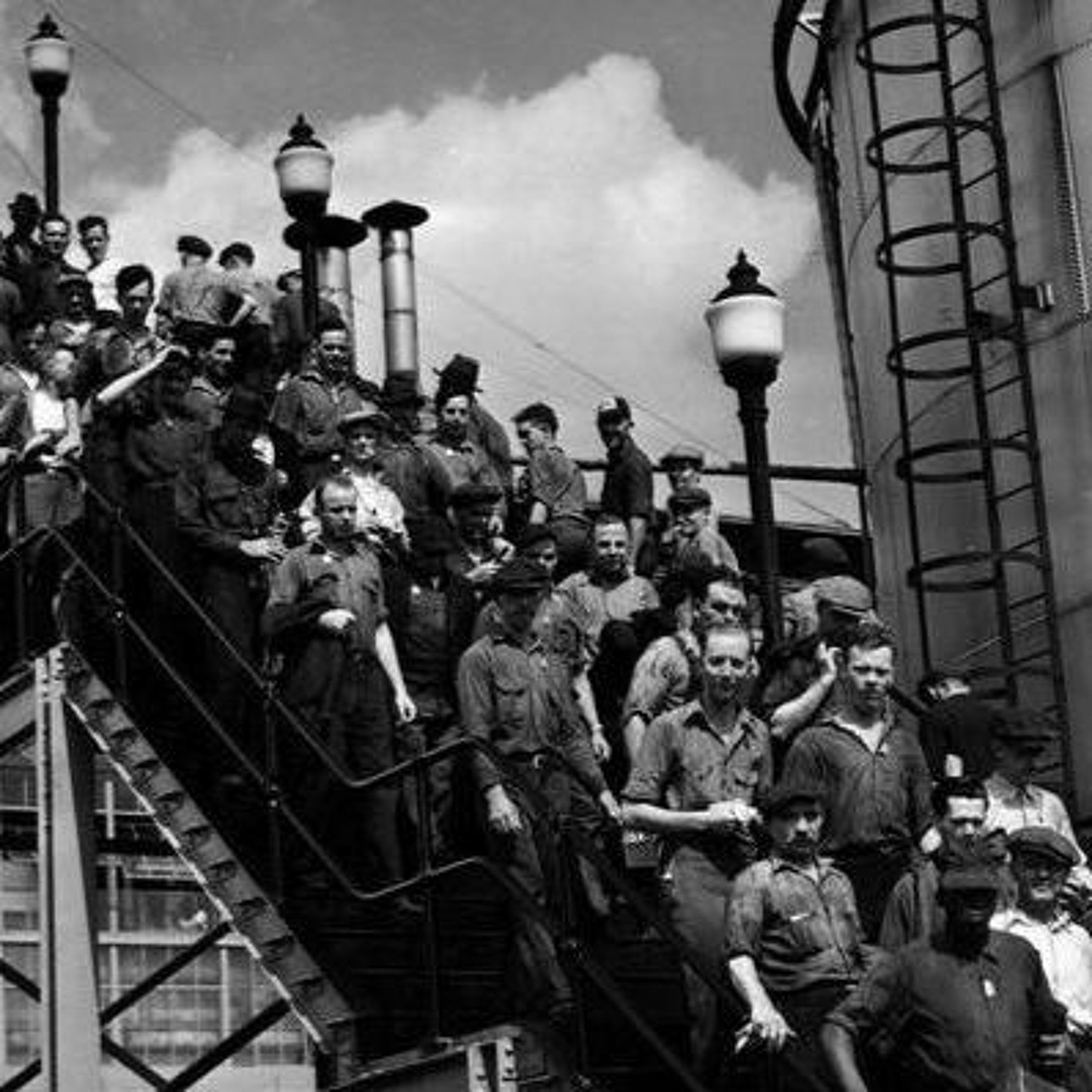
Hagley History HangoutAMERICAN INDUSTRIAL DEMOCRACY BETWEEN 1913 AND 1935 with Kevin TennentAMERICAN INDUSTRIAL DEMOCRACY BETWEEN 1913 AND 1935
Program Officer Gregory Hargreaves interviews Dr. Kevin Tennent about his recent research at the Hagley Museum & Library, funded by a grant from the Hagley Center for the History of Business, Technology, & Society. Dr. Tennent, Senior Lecturer at the University of York School of Management, used Hagley materials in his research on American industrial democracy between 1913 and 1935. Dr. Tennent’s research seeks to further our understanding of labor representation within industrial concerns, to determine how democratic institutions functions within American business of the period, and to investigate their relationship with organized labor unions and the relative em...
2020-09-2849 min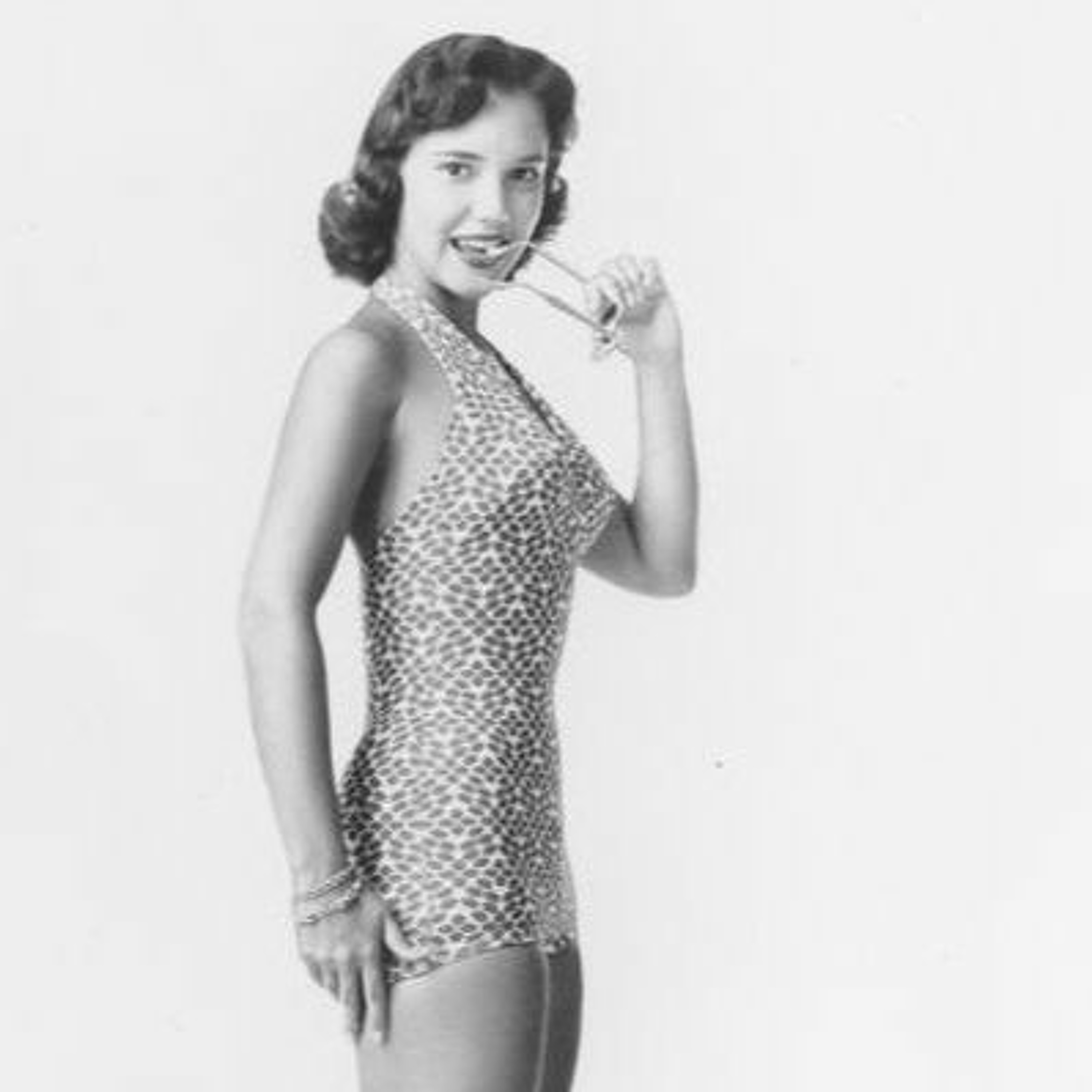
Hagley History HangoutDesigning the Bombshell: Military-Industrial Materials & Women's Bodies with Isabelle HeldDesigning the Bombshell: Military-Industrial Materials & the Shaping of Women's Bodies in the United States
Gregory Hargreaves interviews Dr. Isabelle Marina Held about her recent research at Hagley, funded by one of our grants. Dr. Held, a recent PhD in the History of Design, used Hagley materials in her research on the “bombshell assembly line,” the adoption of synthetic war-time materials, such as nylon, silicon, & plastic foam, by industries concerned with shaping or reshaping the bodies of American women. While Dr. Held used numerous Hagley collections, a cache of documents relating to “Miss Chemistry,” a DuPont spokesmodel responsible for promoting nylon stocking...
2020-09-0138 min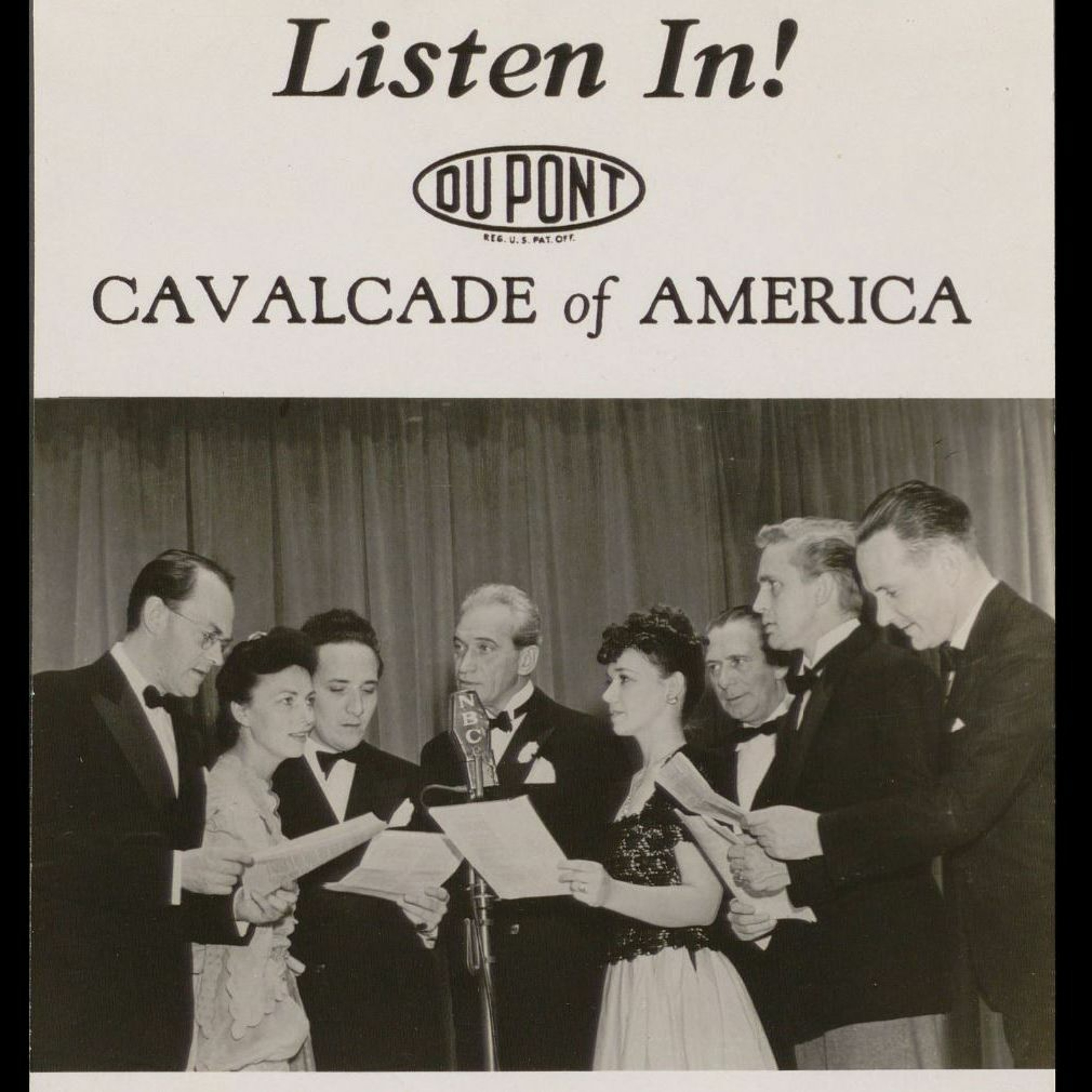
Hagley History HangoutBroadcasting Consensus: Radio & Free Enterprise with Taylor CurrieAmerican educators in 1940s classrooms eagerly played corporate propaganda for their students. The source, Dupont’s Cavalcade of America, was a mid-twentieth century radio program designed to promote the values of free enterprise, productivity, & consumerism to the public through the medium of historical drama. Teachers introduced the program to classrooms to supplement lessons in the American past, and its fair historical accuracy made it potentially useful as a teaching tool. However, the program came with a heavy dose of messaging meant to promote a “liberal consensus” of corporate and government unity and competency in the face of social and political challe...
2020-02-2614 min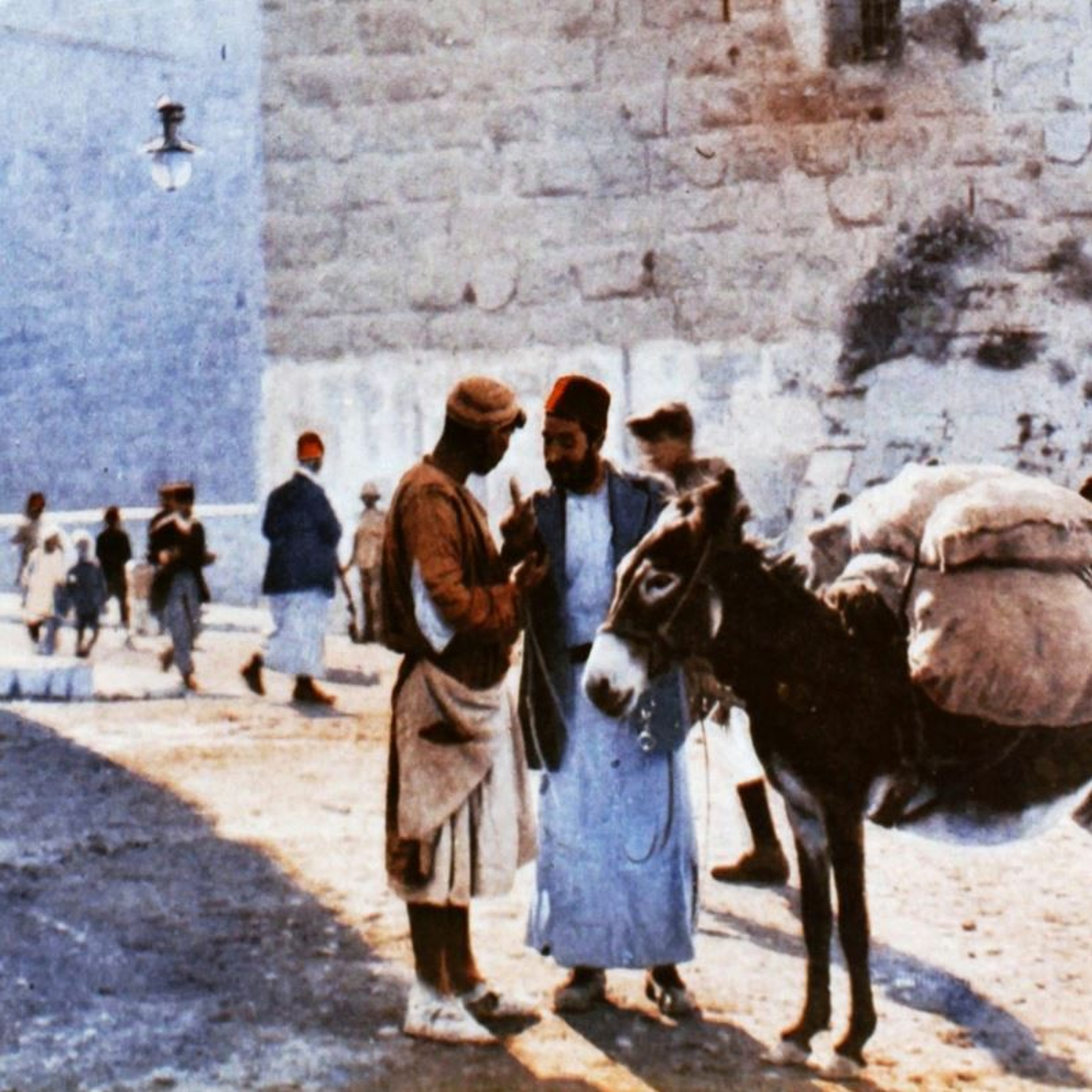
Hagley History HangoutŞerefe: The Culture & Regulation of Alcohol in Turkey with Kyle EveredAttitudes toward intoxication can be unstable. The government of Turkey, for example, within a single generation went from producing alcohol and promoting its consumption as civil and modern, to restricting the consumption of alcohol and prohibiting its advertisement, right down to cellphone ringtones that sound like beer bottles opening. A culture once known for its Bektashi Sufis and Janissary soldiers, both famous for enjoying alcohol, now faces increasing pressure to dry out. This remarkable turnaround is indicative of the ways in which societies regulate alcohol by cultural norms and legal statues that are all subject to change.
In this episode...
2020-02-1137 min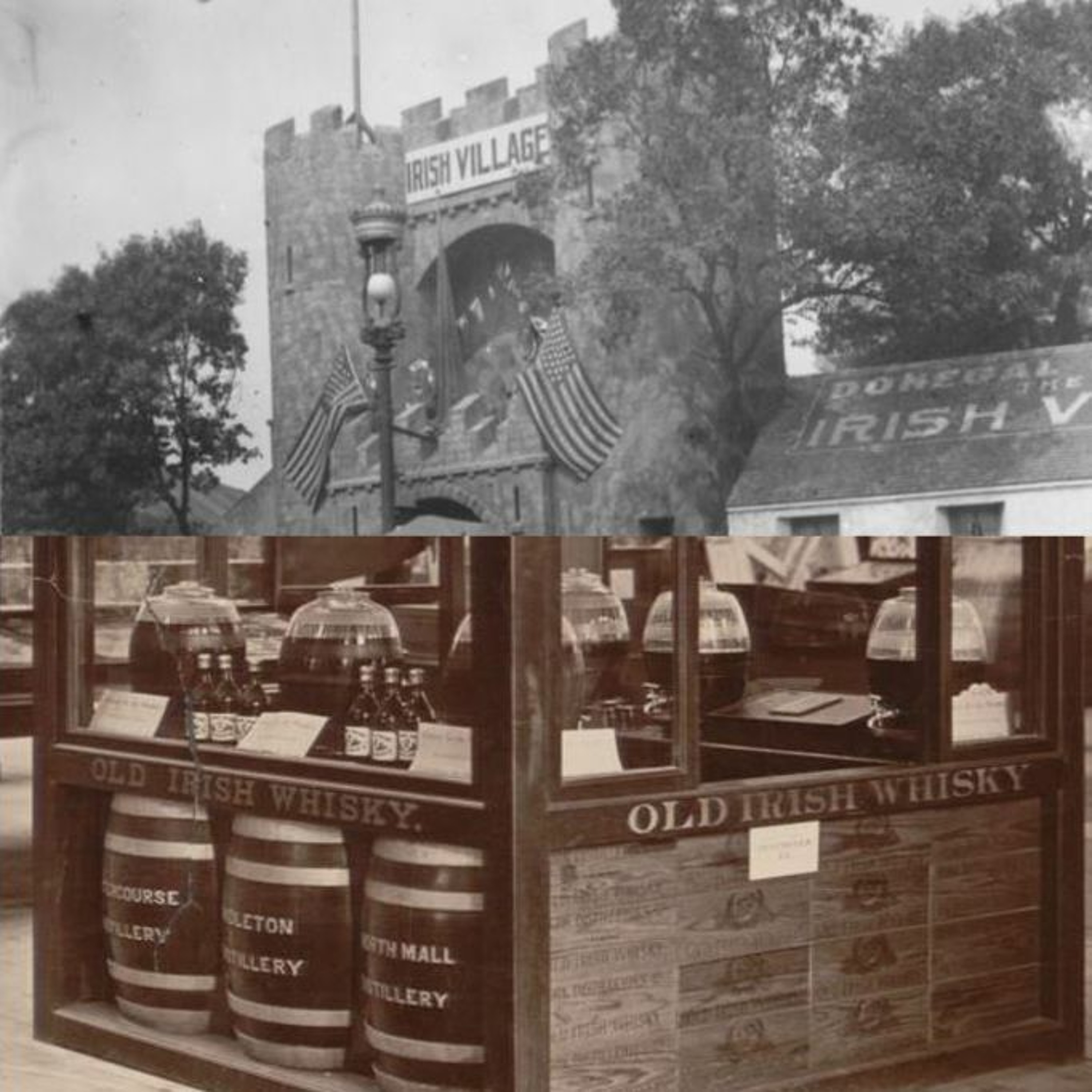
Hagley History HangoutSelling Irish: How the American Market Shaped the Image of a Nation with Marion CaseyLeprechauns have hocked Irish goods to American consumers for generations. When one of the wee folk appeared on a bottle of Irish whisky, its familiar associations marked the drink as an authentic product of an antique culture for the American consumer. From the Blarney Stone to the shamrock, symbols laden with Irish associations in the American mind have proved useful marketing tools for businesses that sought to leverage the value of the word “Irish” in the American marketplace.
In this episode of Stories from the Stacks, historian of the Irish-American experience Marion Casey, professor at the Glucksman Ireland House at New...
2019-12-1017 min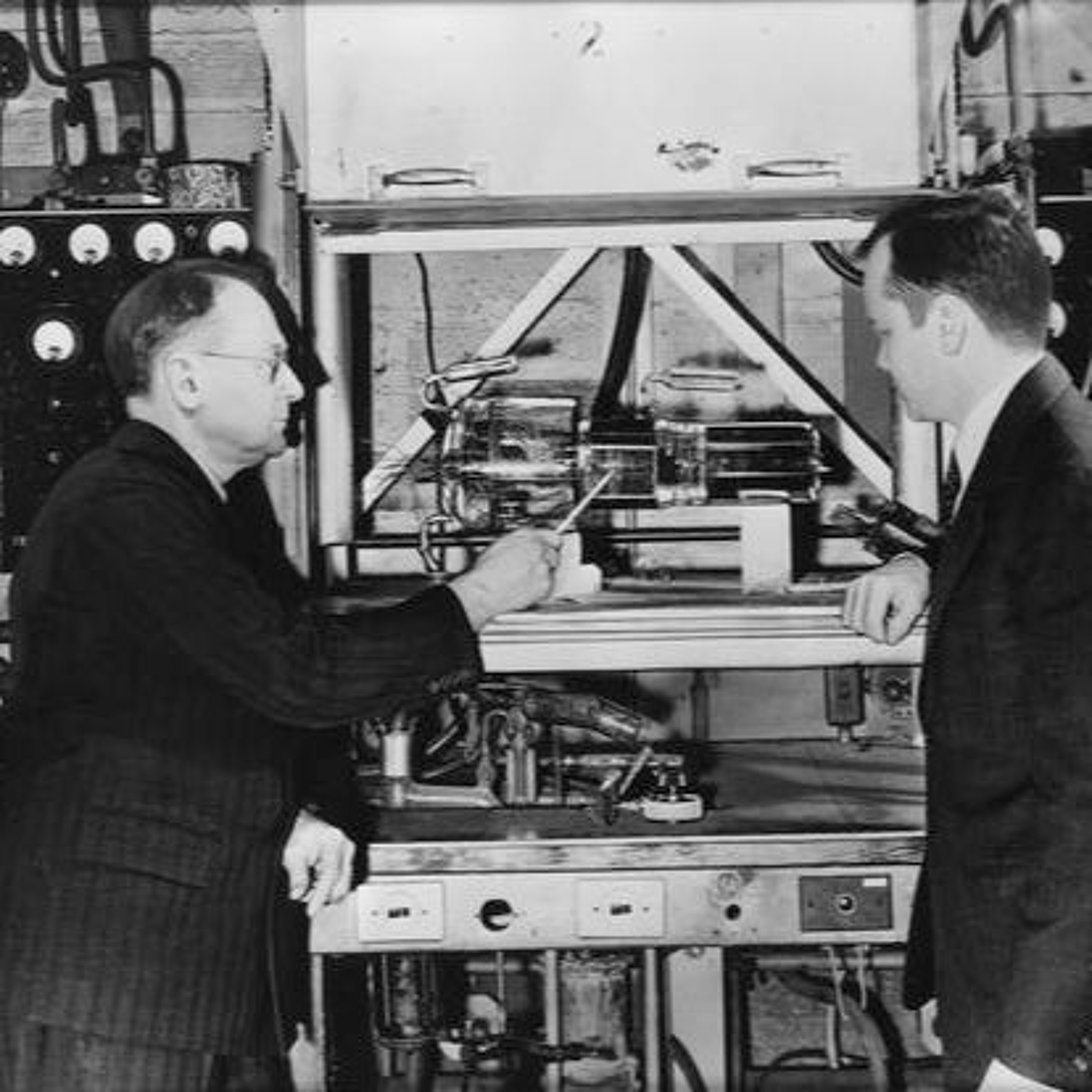
Hagley History HangoutProgramming Health: Early Bio-Medical Engineering & Computer Diagnosis with Andrew LeaIn the 1950s, Vladimir K. Zworykin, an engineer recently retired from research at RCA, looked at the rising cost of health care and the shortage of medical personnel in America, and decided to do something about it. His solution was to apply computer engineering techniques to the problems of health care and medical diagnosis. To do so, Zworykin established an interdisciplinary research group of engineers, statisticians, and physicians, and tasked them with developing computer programs capable of aiding medical diagnosis.
In this episode of Stories from the Stacks, Andrew Lea, PhD candidate in the history of science and medicine at...
2019-11-2627 min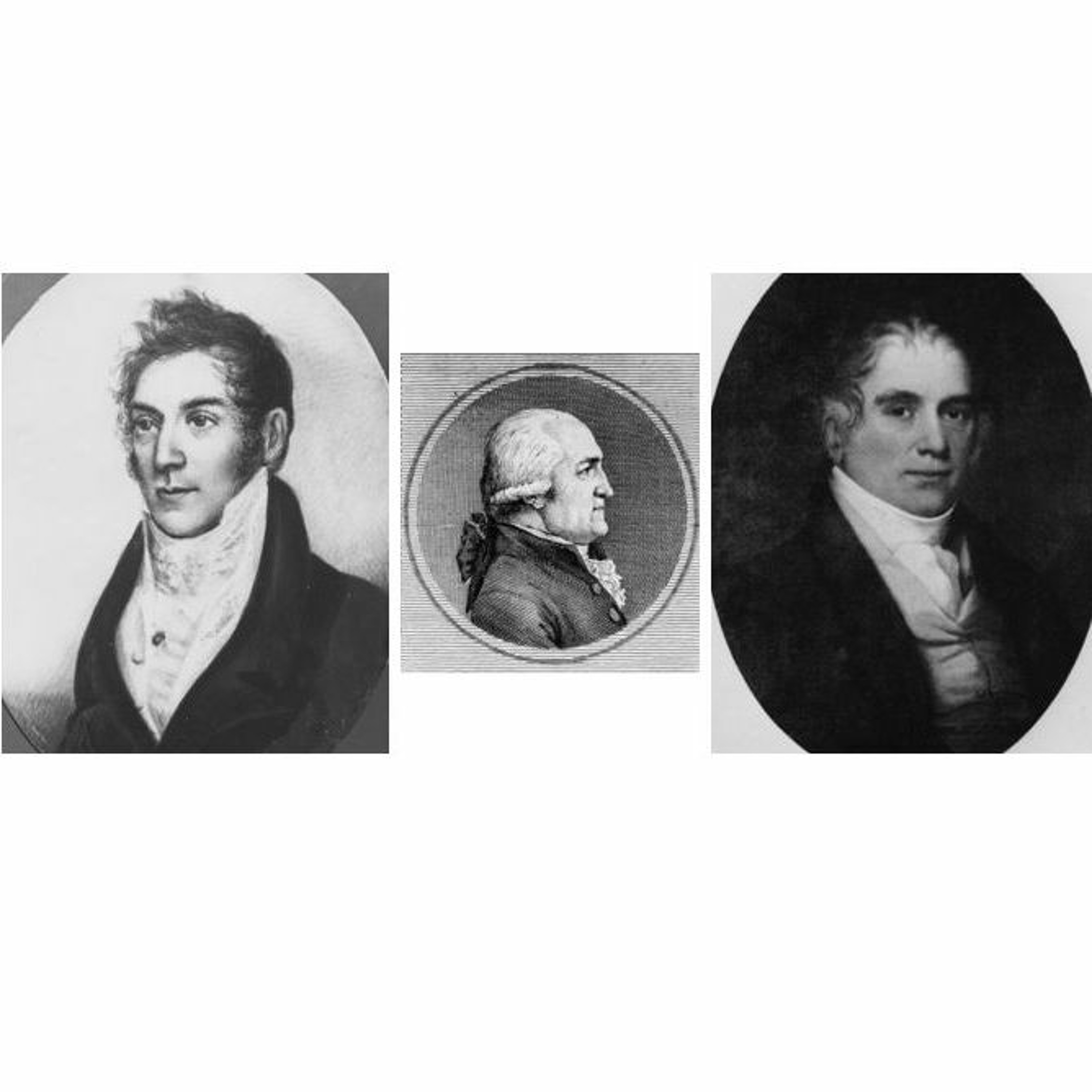
Hagley History HangoutFather & Sons: How the du Pont Family Went into Business, with Roma BeaufretComing to America to start a new life is filled with challenges, even for the wealthy and well-connected. When the du Pont family crossed the Atlantic, they sought a new beginning in a land of opportunity. Burdened by sibling rivalries and divergent ideas about how best to make their fortune, the family compensated with dedication to one another and a boatload of capital invested by social and economic elites in France. Once landed, the du Ponts set to work figuring out how to remake themselves into Americans, and how to return a profit.
In this episode of Stories from the...
2019-11-1212 min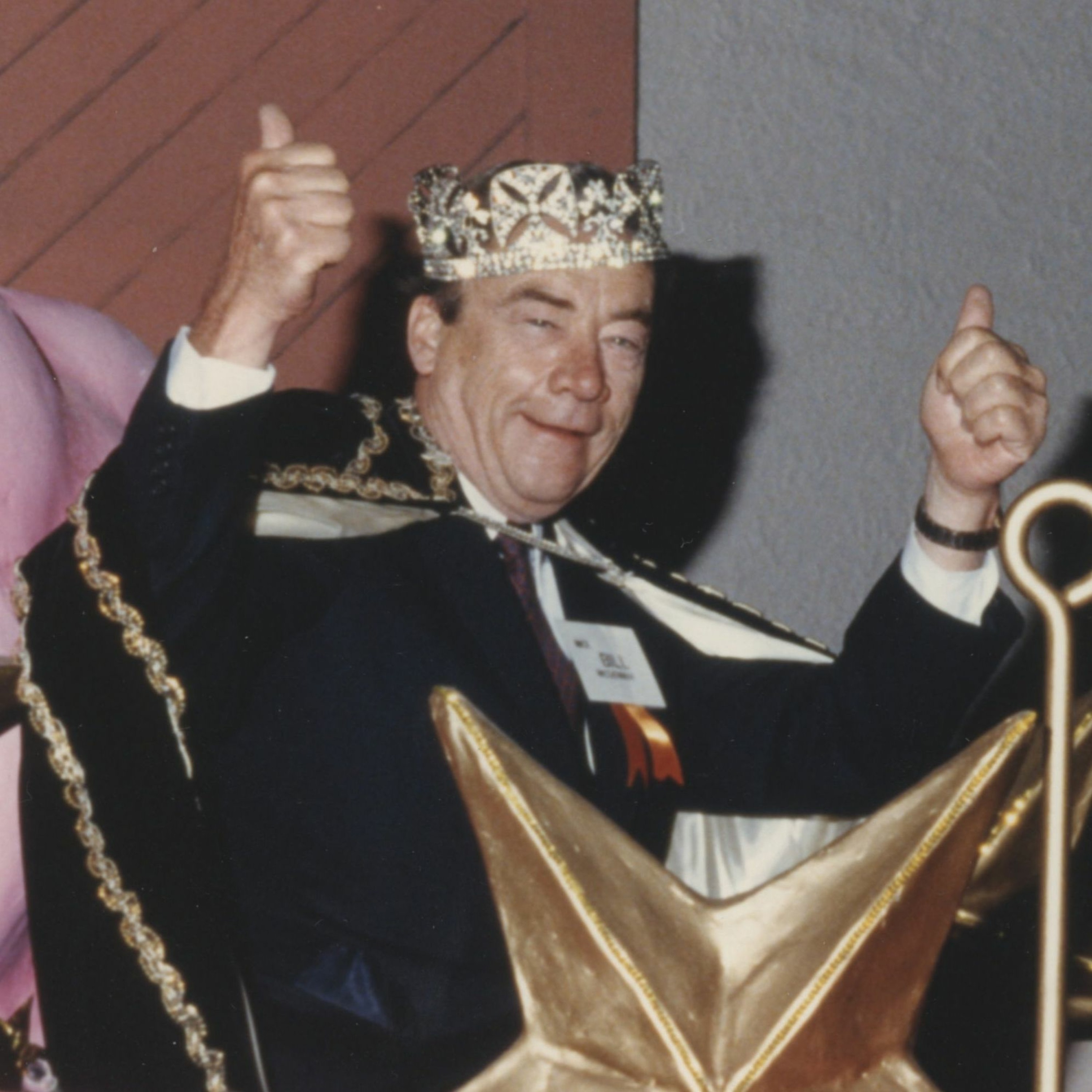
Hagley History HangoutGive & Take: Private Faith & Public Charity in America with Andrew JungclausThere are many reasons to give to charity: convictions of religious faith, values of service to others, and plain old greed. Charities can serve the public good, but they can also serve personal interests at the same time. In the twentieth century, some affluent Americans turned to philanthropy with mixed motivations. Faith and values mattered to them, but so too did maintaining control over their fortunes, and burnishing their public images. Giving with one hand allowed them to take with the other.
In this episode of Stories from the Stacks, scholar of religion Andrew Jungclaus, PhD candidate at Columbia University...
2019-10-2922 min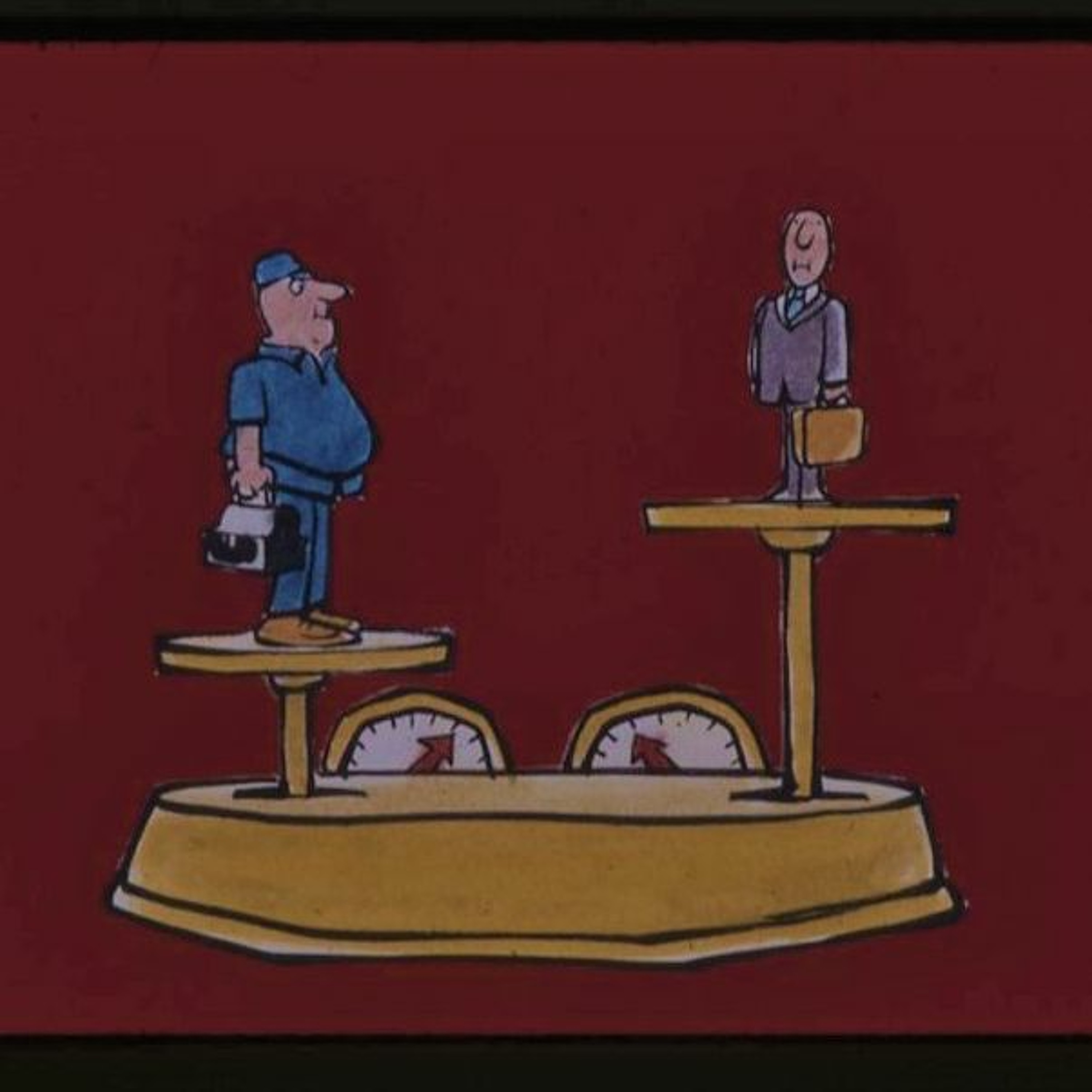
Hagley History HangoutMoney Illusion: Monetary Values & Social Relations with Sebastian TeupeHow much is a dollar worth? It depends who you ask, when, and where. Economic psychologists have a concept called ‘money illusion,’ which suggests that people are not actually very good at judging the value of money in the context of changing monetary conditions. Distinguishing between the perceived value of money and its “objective” market value introduces a new variable to analyses of debates over prices, wages, and social relations.
In this episode of Stories from the Stacks, economic historian Sebastian Teupe, junior professor at the University of Bayreuth, discusses the role of money illusion in wage arbitration in Germany, Britain...
2019-10-1525 min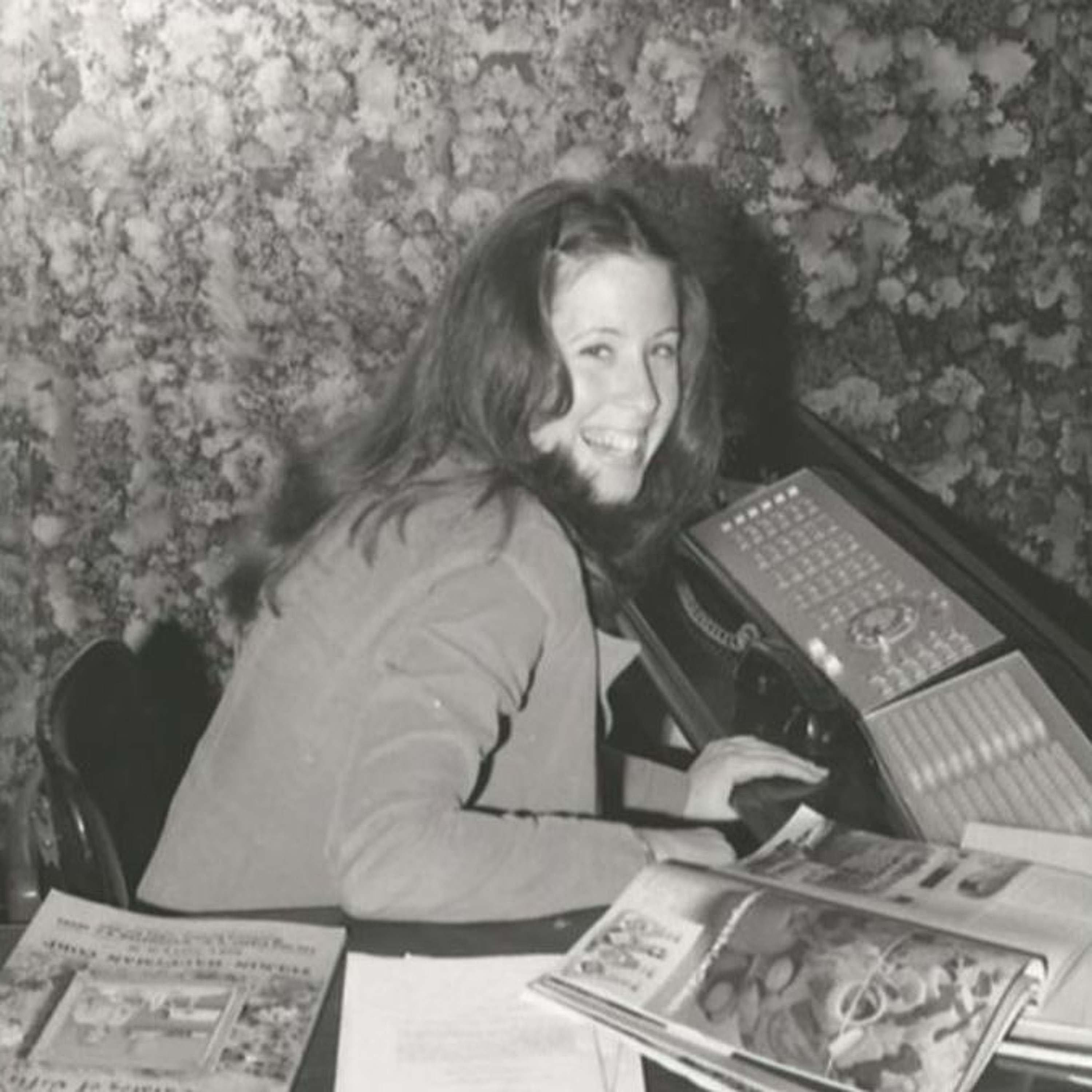
Hagley History HangoutWe Think You're Important: Big Business & the Women's Movement with Emily TwarogAmericans value equality, but have competing visions of what it should look like. The twentieth-century women’s movement was riven by class divisions. Elite women within the movement favored the uncompromising Equal Rights Amendment; while working women feared that it would undermine gains they had made in gendered workplace protections, and so favored the Women’s Status Bill, which would preserve regulation against exploitation of women workers. This division opened the possibility of business interests appealing to and splitting off a segment of organized American women.
In this episode of Stories from the Stacks, labor historian Emily Twarog, associate professor in t...
2019-10-0124 min
Hagley History HangoutDownstream Impact: Building the Canadian Tar Sands Industry with Hereward LongleyThe Athabasca country of Alberta once boasted the world’s premier fur hunting grounds. When the energy crises of the late twentieth century put a premium on the region’s tar sand deposits, rich in hydrocarbons useful for synthesizing oil, corporations built an industrial landscape of extraction and processing infrastructure that displaced former occupation and use of the land. The local environment, and the world economy would never be the same.
In this episode of Stories from the Stacks, environmental historian Hereward Longley, PhD candidate at the University of Alberta, discusses the process by which people transformed the environment of nort...
2019-09-1723 min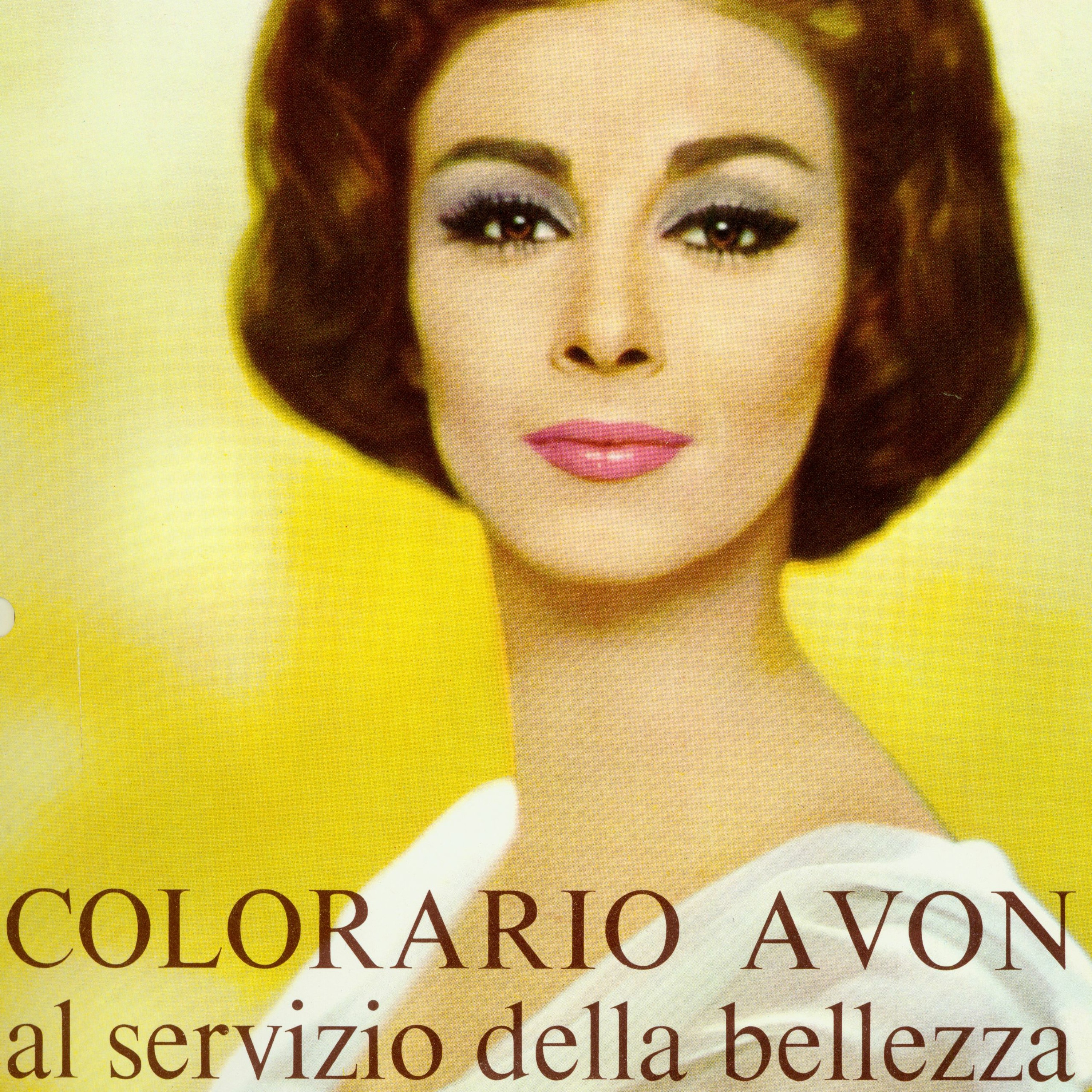
Hagley History HangoutBeauty Sold Everywhere: The Early Globalization of Avon with Emanuela ScarpelliniForget Hollywood superstars. In the 1960s, women around the world wanted a sense of normality when they consumed cosmetics. As the Avon company attempted to win consumers for its mass-produced goods in Latin America and Europe, it adapted its marketing materials to reflect the segmentation of local and changing global ideals of beauty.
In this episode of Stories from the Stacks, historian Emanuela Scarpellini, professor at the University of Milan, discusses how Avon planned its expansion overseas from the United States, and adapted to the context of a global marketplace. Monochromatic American ideals of beauty did not necessarily match those...
2019-09-0323 min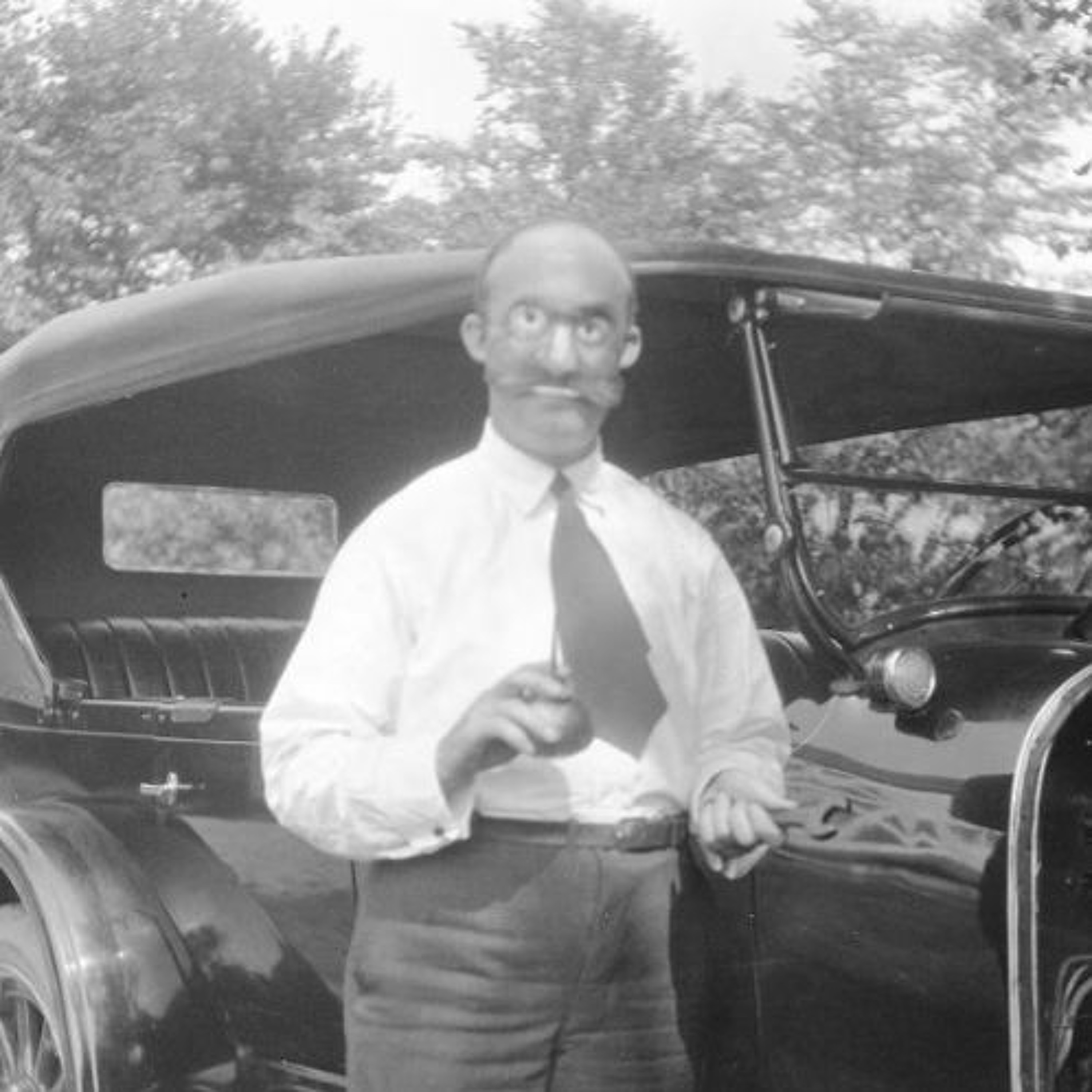
Hagley History HangoutPeople Would Fake Being Everything: American Impostors with Clifton HoodIn the wide-open American economy, some people fake it ‘til they make it. Historically, American impostors realized the promise of social mobility. Identifying freely with different ethnic, racial, class, gender, or professional groups allowed some Americans to challenge social norms, and to reinvent themselves in an environment of rapid and disorienting change.
In this episode of Stories from the Stacks, historian Clifton Hood, professor at Hobart & William Smith Colleges, discusses the macro-history of the American impostor as a social phenomenon. Hood situates his project in the context of his life’s work, suggesting that it may be a way of acce...
2019-08-2025 min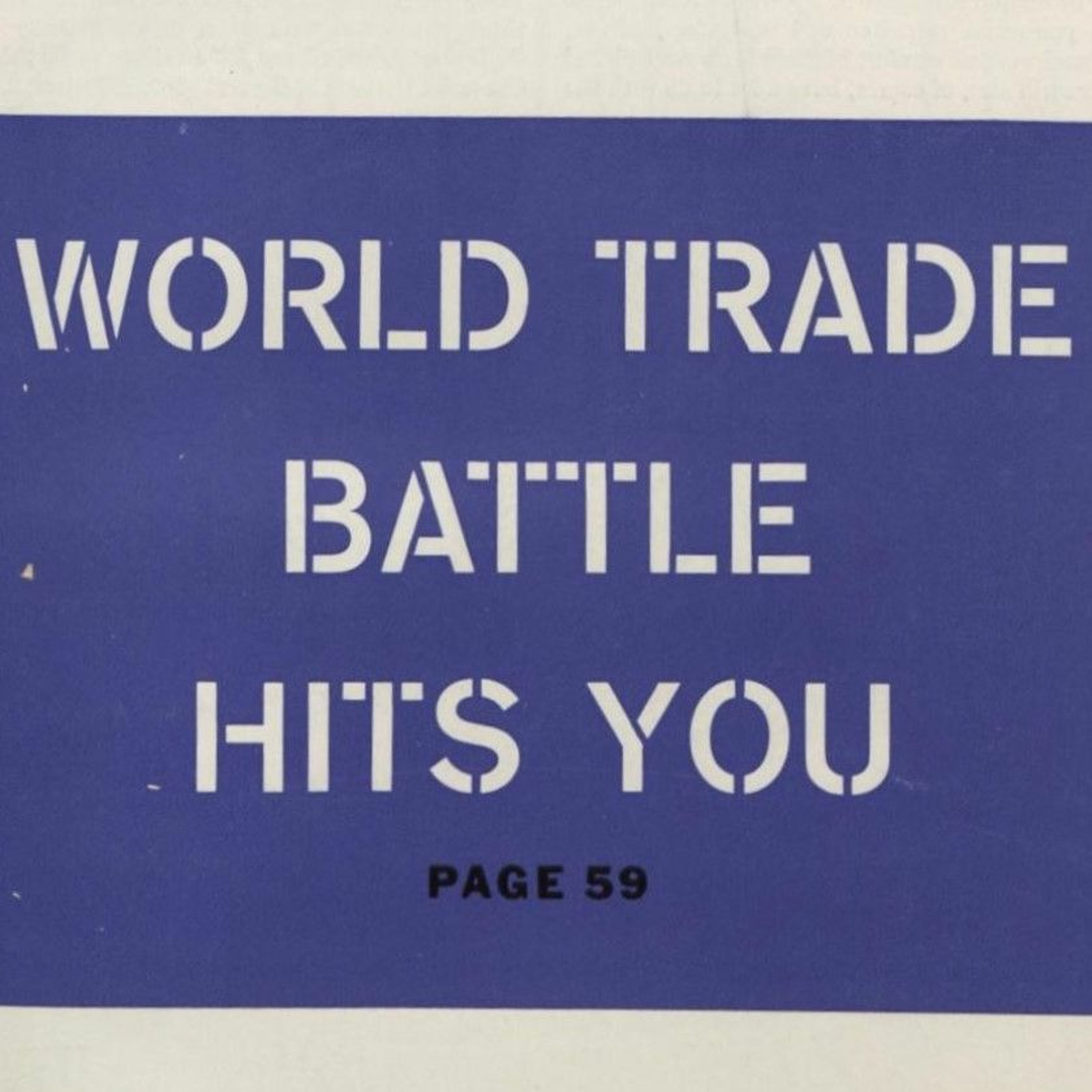
Hagley History HangoutThe Diplomatic Value of Trade: America's Commercial Cold War with Ryan HaddadTrade wars are nothing new, and the weapons used to fight them sometimes backfire. During the Cold War, the United States took a carrot-and-stick approach to managing foreign relations through trade. The results were decidedly mixed.
In this episode of Stories from the Stacks, Ryan Haddad, PhD candidate at the University of Maryland, discusses the use of trade controls by the United States government to pursue foreign policy goals during the Cold War.
Using Hagley Library collections, including the records of the National Foreign Trade Council and the National Association of Manufacturers, Haddad discovered how Cold War policies designed to...
2019-08-0625 min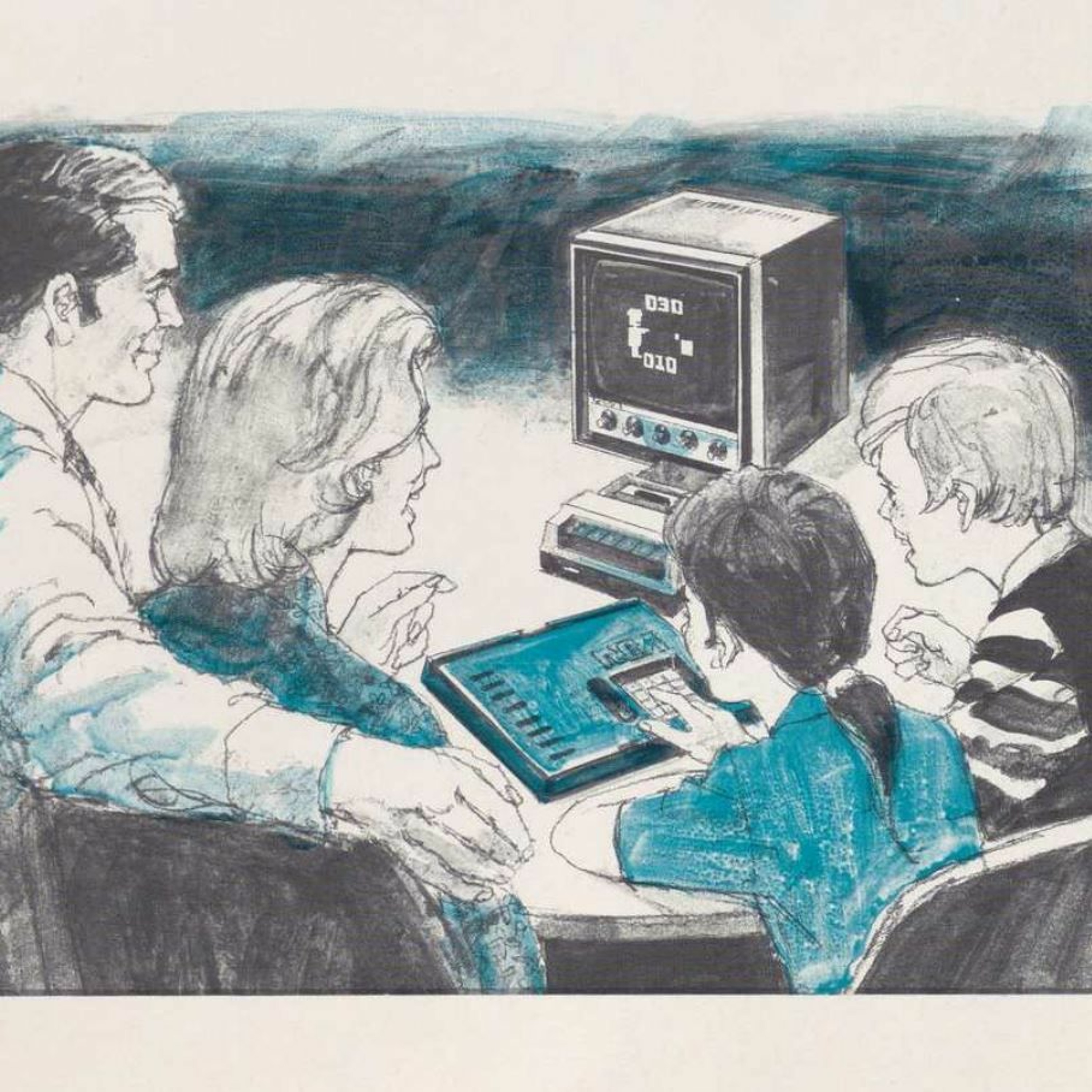
Hagley History HangoutIt's Okay to Have Fun with Computers: Video Game Culture with Elizabeth BadgerIs it okay to have fun with computers? Joseph Weisbecker, an electrical engineer from the twentieth century, gives an unequivocal yes! During his long career, Weisbecker made it his mission to promote the use of computers for human purposes beyond business and military applications. For him, there was no shame in video games, and he wanted the world to agree.
On this episode of Stories from the Stacks, Elizabeth Badger, PhD candidate at the University of Minnesota – Twin Cities, discusses the early history of video game culture, focusing on the effects of the commodification of games. Badger suggests that gaming cu...
2019-07-2324 min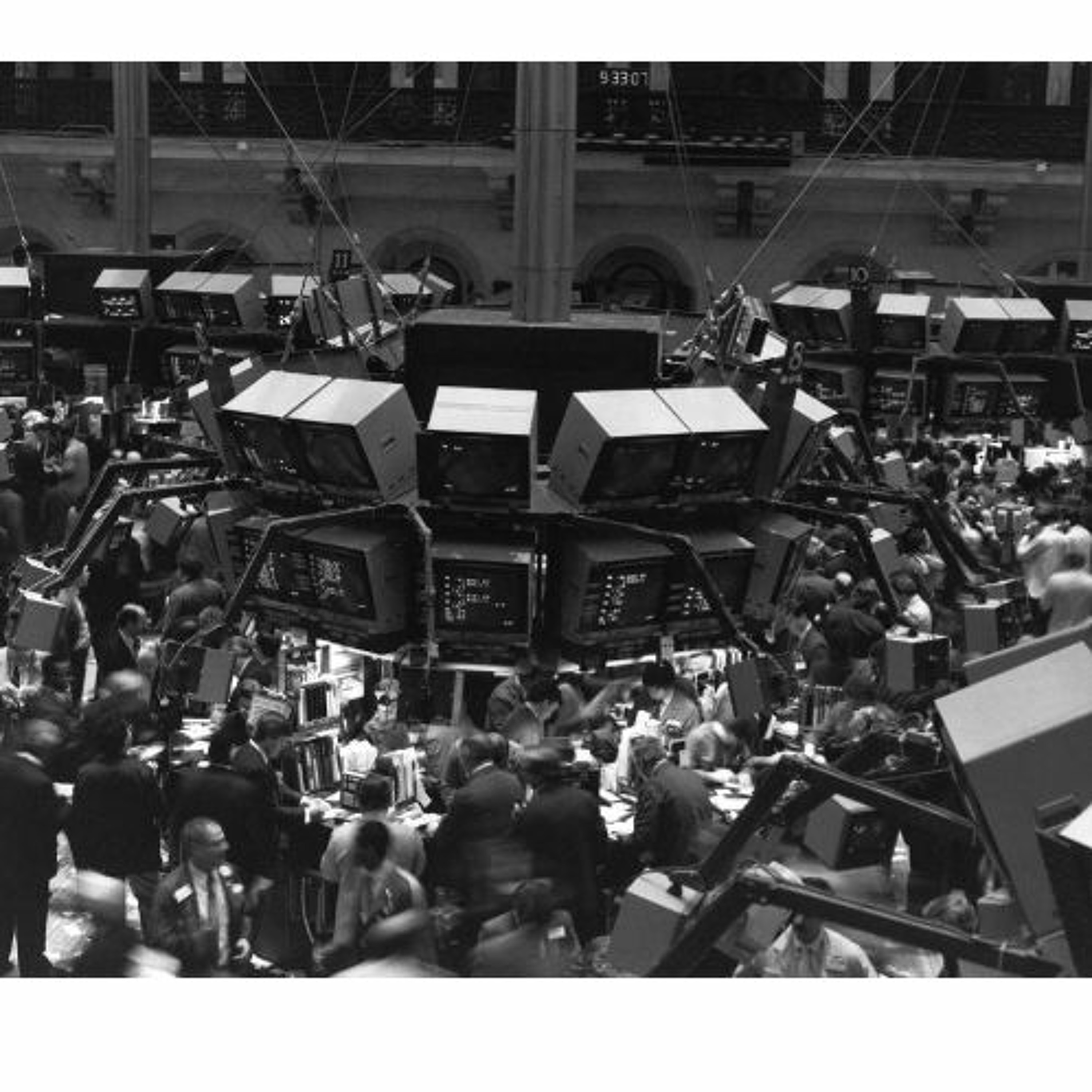
Hagley History HangoutBuilding for Infinite Participation: High-Speed Trading in New York & Chicago with Aaron ShkudaIn 1968, the New York Stock Exchange drowned in a sea of paperwork, which forced it to close to trading for one day every week. Something had to be done to allow the finite space of the trading floor to serve the potentially infinite growth in trade volume. The automation of securities trading, the replacement of open outcry pits and paperwork with electronic infrastructure, gained momentum as exchanges competed to be bigger, faster, and more secure than rivals.
In this episode of Stories from the Stacks, urban historian Aaron Shkuda, project manager of the Princeton-Mellon Initiative in Architecture, Urbanism, & the Humanities...
2019-07-0925 min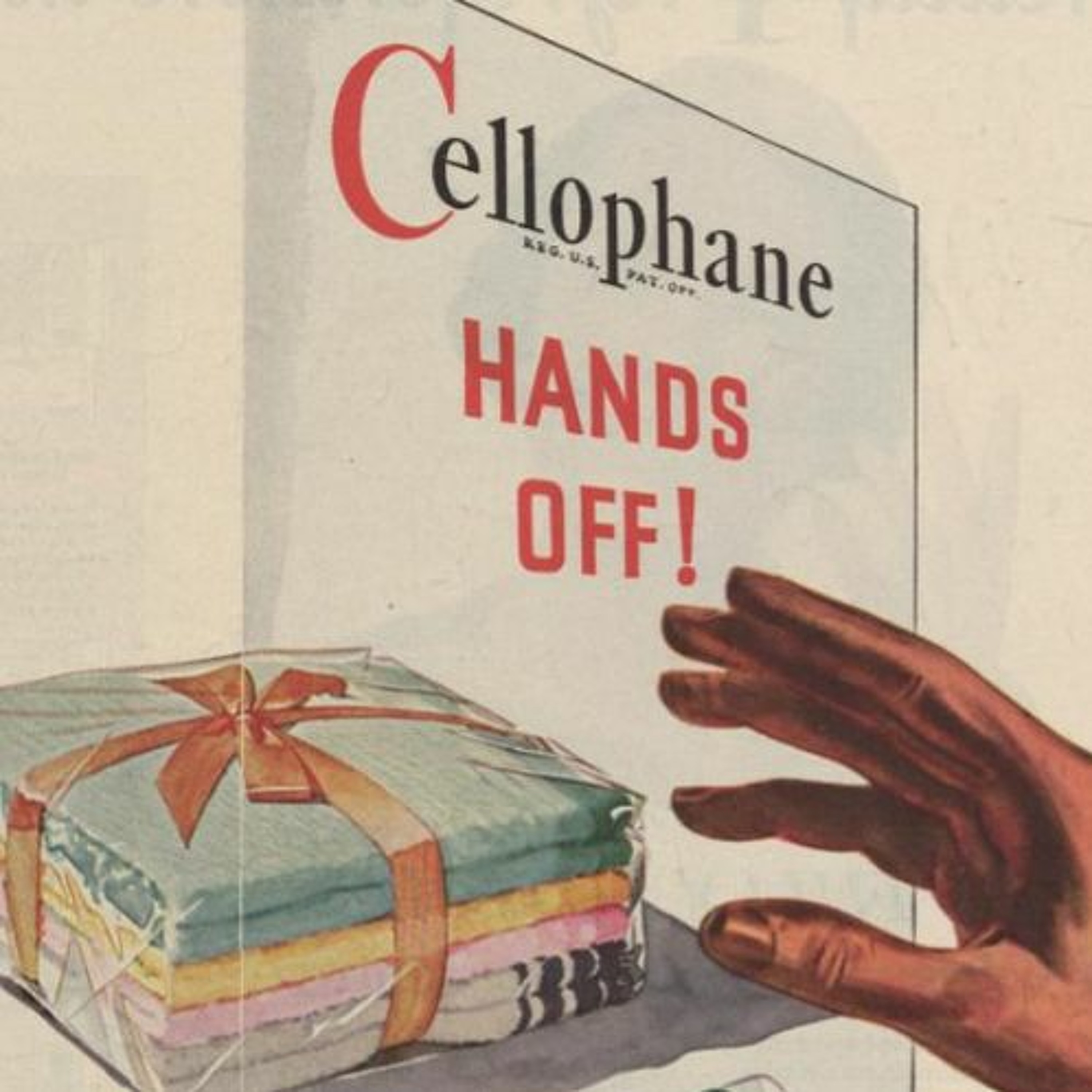
Hagley History HangoutThere's a Huge Corporate Asset Here: Brands & Trademark Law with Oren BrachaPrint and sell posters with the Coke-a-Cola logo on them and prepare to get sued. For corporations today, brands are valued property to be aggressively defended from unauthorized use. This was not always the case. The proprietary attitude taken by companies toward their brands developed in the context of a growing consumer economy, and under the tutelage of lawyers.
In this episode of Stories from the Stacks, legal scholar Oren Bracha, professor at the University of Texas at Austin, discusses his research into the legal history of branding and trademarks. Bracha observes that the function of brands in influencing consumer...
2019-06-2525 min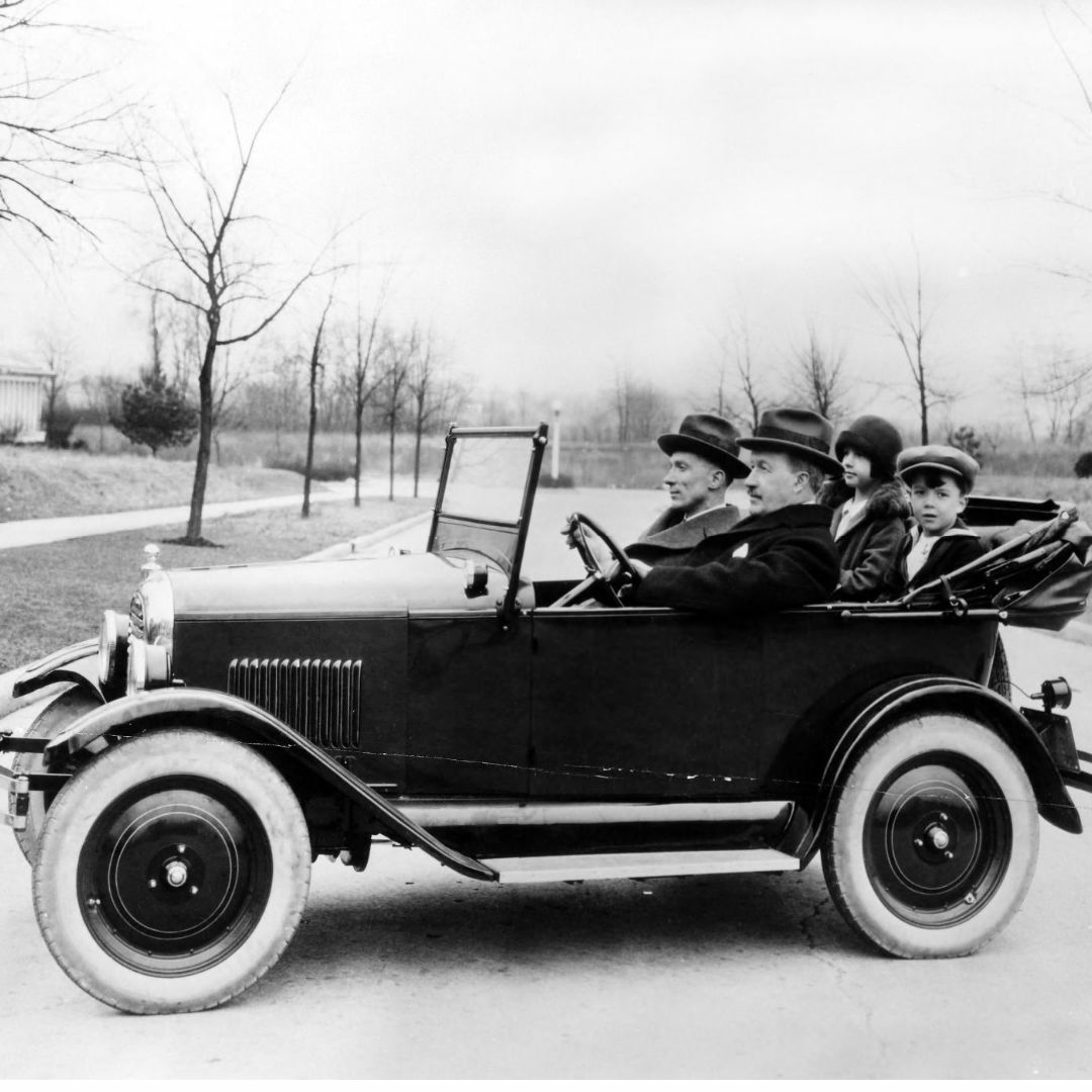
Hagley History HangoutNobody Rationalizes Billy: The Early Automotive Industry with Bernie CarlsonEverybody knows Henry Ford, then there’s the tycoon you’ve never heard of, Billy Durant. The motive force behind the early success of Buick and the founding of Chevrolet and General Motors, William C. Durant developed business practices that transformed the automobile industry. Durant was a businessman of marked tenacity and impatient of restraint, and he used these qualities to amass a fortune and to fend off would-be interlopers in his arena of corporate power.
In this episode of Stories from the Stacks, historian Bernie Carlson, professor at the University of Virginia, discusses his research into the role played by W...
2019-06-1124 min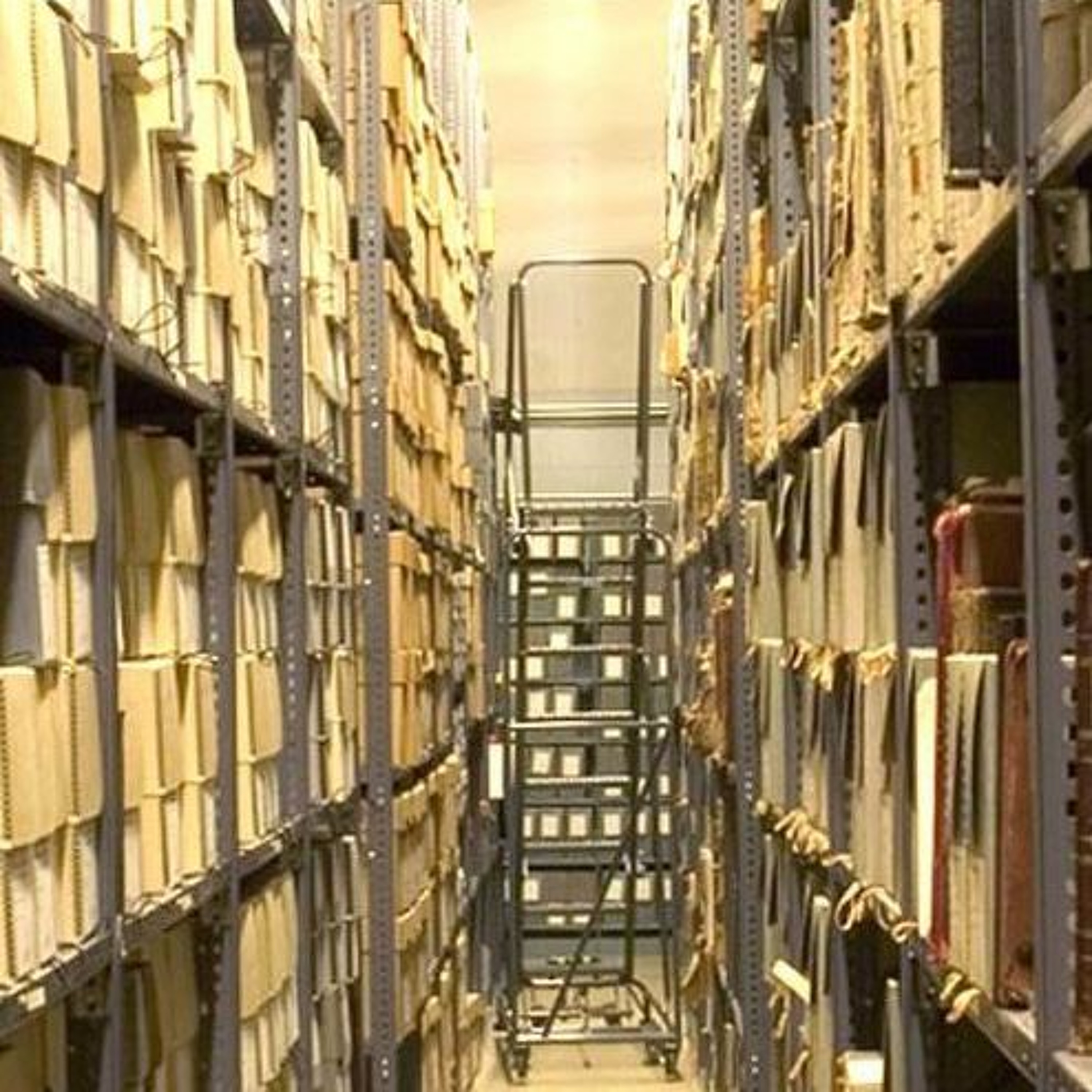
Hagley History HangoutStories From The Stacks: Jonathan Free on the coal industry and shifting riskIn this interview, Jonathan Free discusses his research on the coal industry and the shifting of risk from the miner's bodies on to the surrounding ecosystems and communities and his use of materials from the collections in the Hagley Library.
Free is a Phd candidate at Duke University and the Miller Center and Hagley Library Dissertation Fellow in business and politics.
Stories from the Stacks is an ongoing program from the Center for the History of Business, Technology, and Society featuring interviews with researchers who share the excitement of discovering the rich and varied historical materials in the Hagley Library’s...
2016-06-1404 min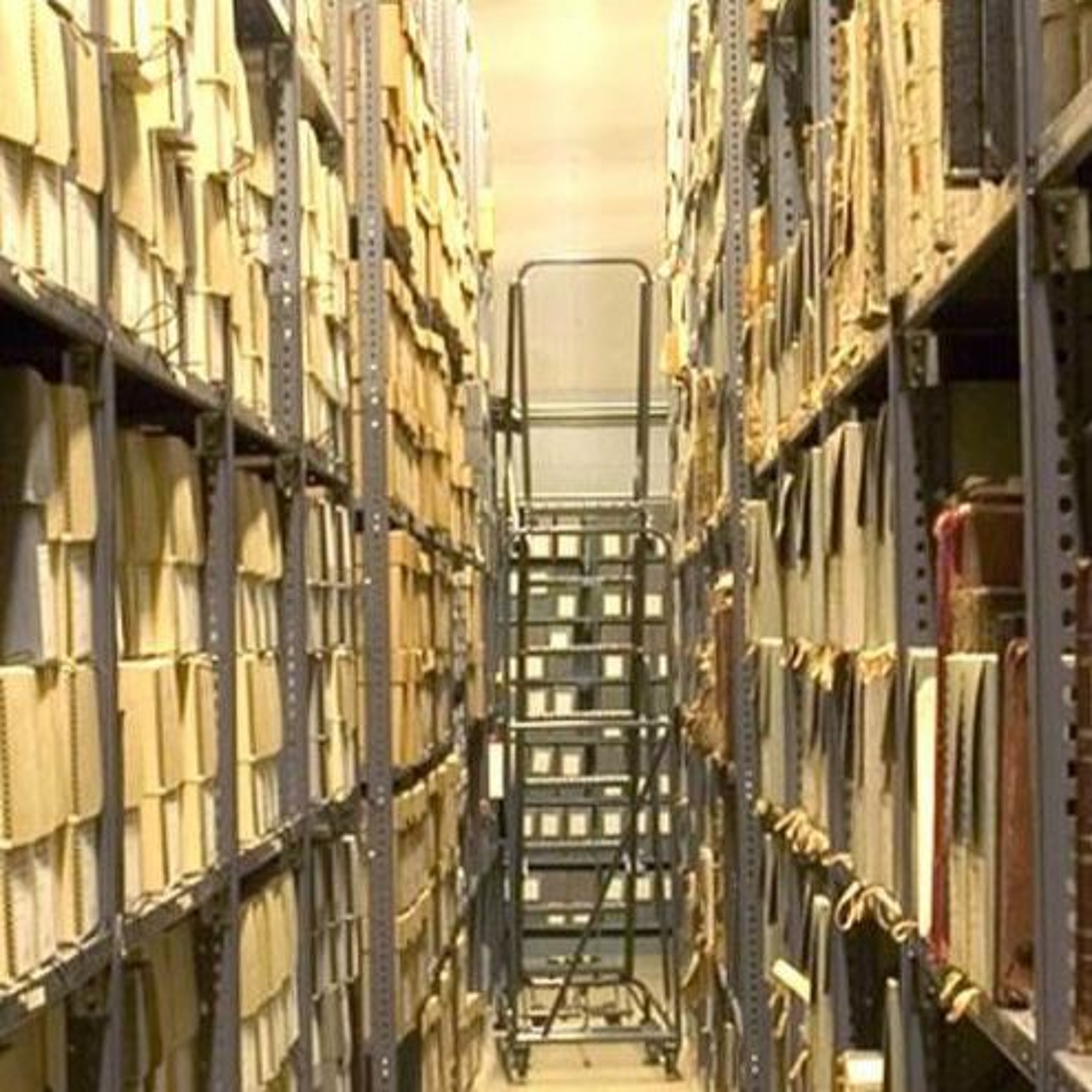
Hagley History HangoutStories From The Stacks: Ai Hisano on food coloringIn this interview, Ai Hisano discusses her project on food color and her use of materials from the collections in the Hagley Library.
Ms. Hisano is a PhD Candidate and Hagley Fellow at the University of Delaware.
Stories from the Stacks is an ongoing program from the Center for the History of Business, Technology, and Society featuring interviews with researchers who share the excitement of discovering the rich and varied historical materials in the Hagley Library’s collections. Listen to additional episodes at www.hagley.org/storiesfromthestacks.
2016-01-0704 min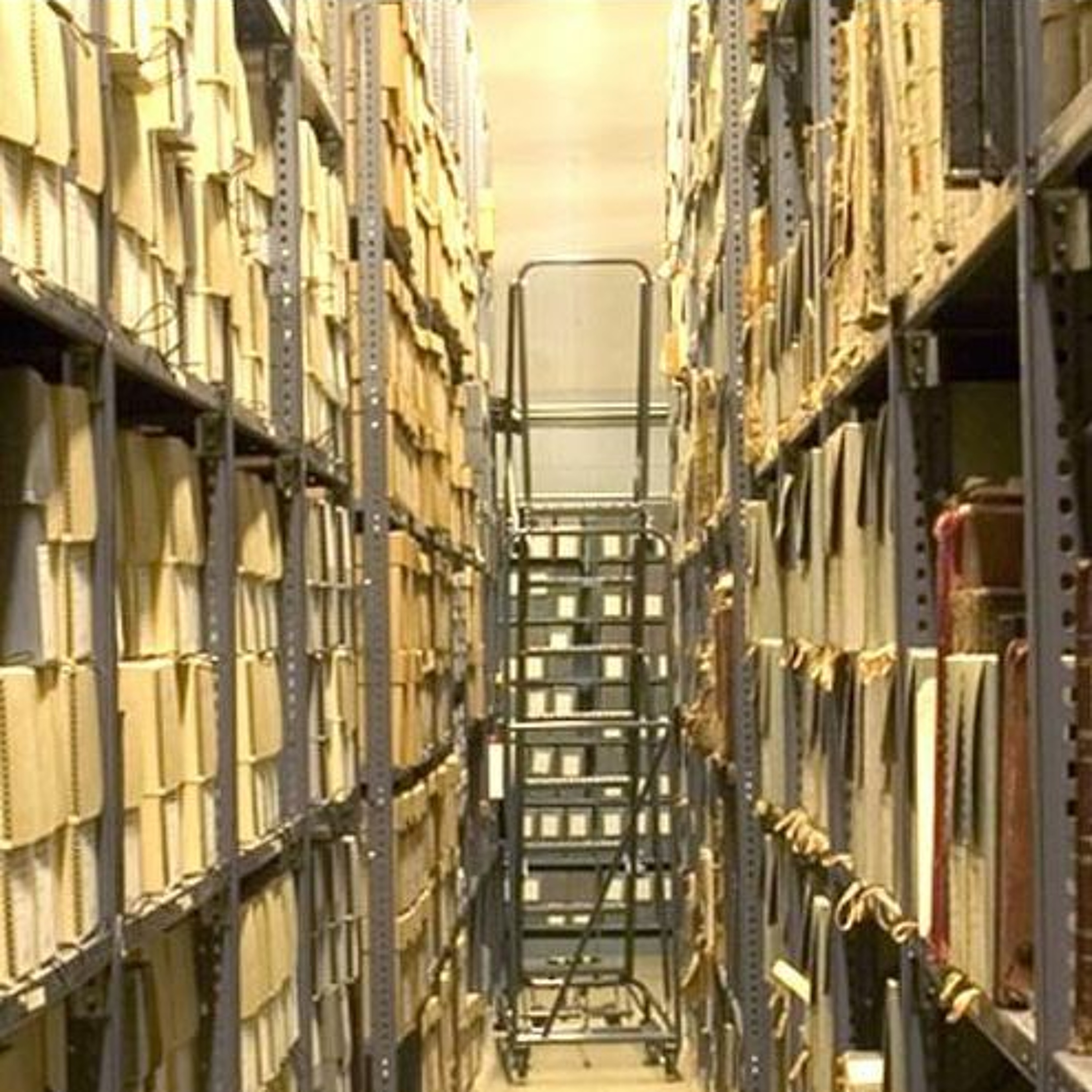
Hagley History HangoutStories From The Stacks: Wim de Wit on industrial design and Thomas Lamb the Handle ManWim De Wit discusses his research into industrial design history, and his use of the Thomas Lamb papers and other collections from the Hagley Library for his project.
Wim de Wit is adjunct curator for architecture and design at the Cantor Arts Center at Stanford University.
Stories from the Stacks is an ongoing program from the Center for the History of Business, Technology, and Society featuring interviews with researchers who share the excitement of discovering the rich and varied historical materials in the Hagley Library’s collections. Listen to additional episodes at www.hagley.org/storiesfromthestacks.
2015-06-1804 min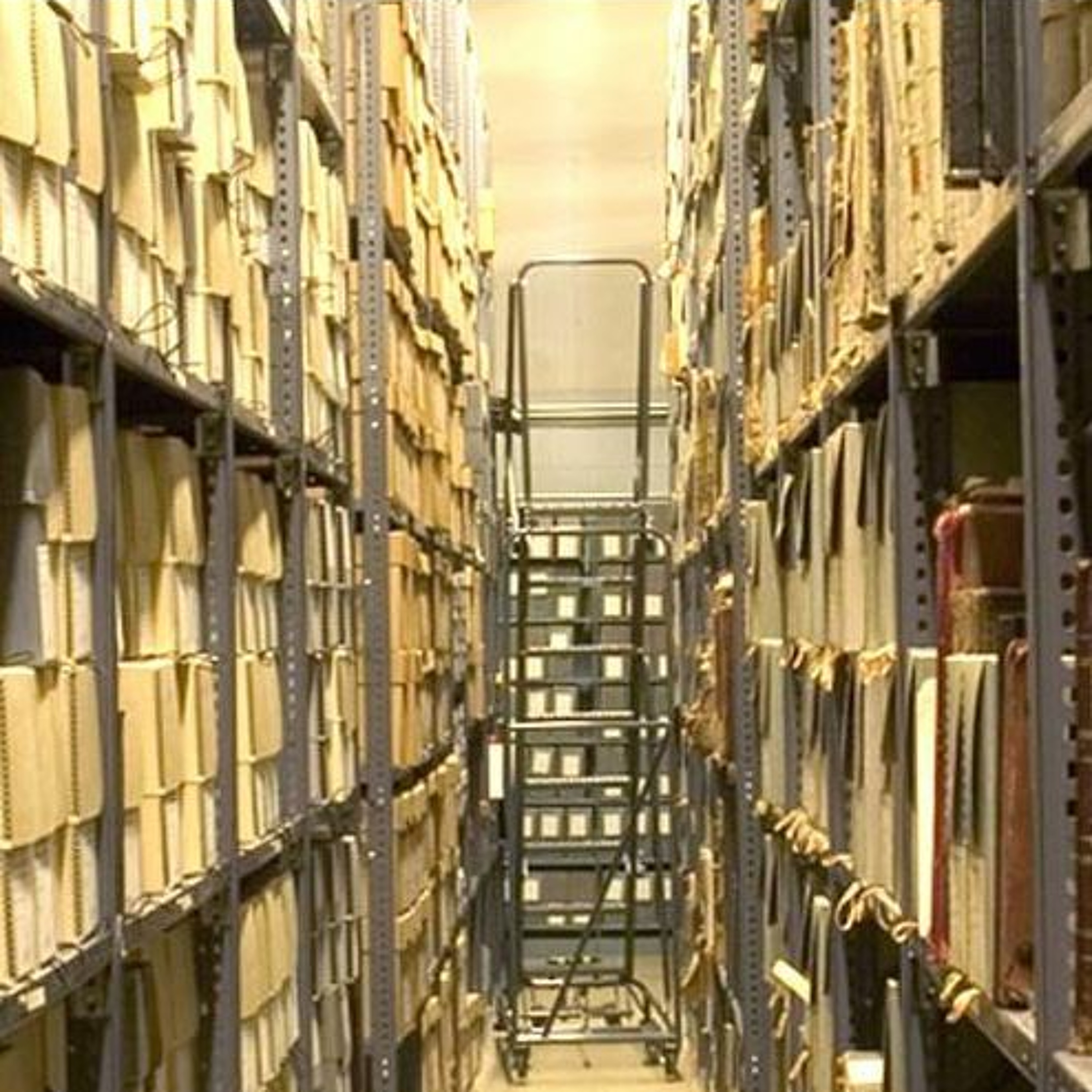
Hagley History HangoutStories From The Stacks: Bryce Evans on how Guinness saved Ireland in World War IIIn this interview, Dr. Bryce Evans discusses his research into food at the Irish pavillion in the 1939 World's Fair, and his use of materials from the Hagley Library for his project.
Dr. Evans is Senior Lecturer in History at Liverpool Hope University.
Stories from the Stacks is an ongoing program from the Center for the History of Business, Technology, and Society featuring interviews with researchers who share the excitement of discovering the rich and varied historical materials in the Hagley Library’s collections. Listen to additional episodes at www.hagley.org/storiesfromthestacks.
2015-06-0504 min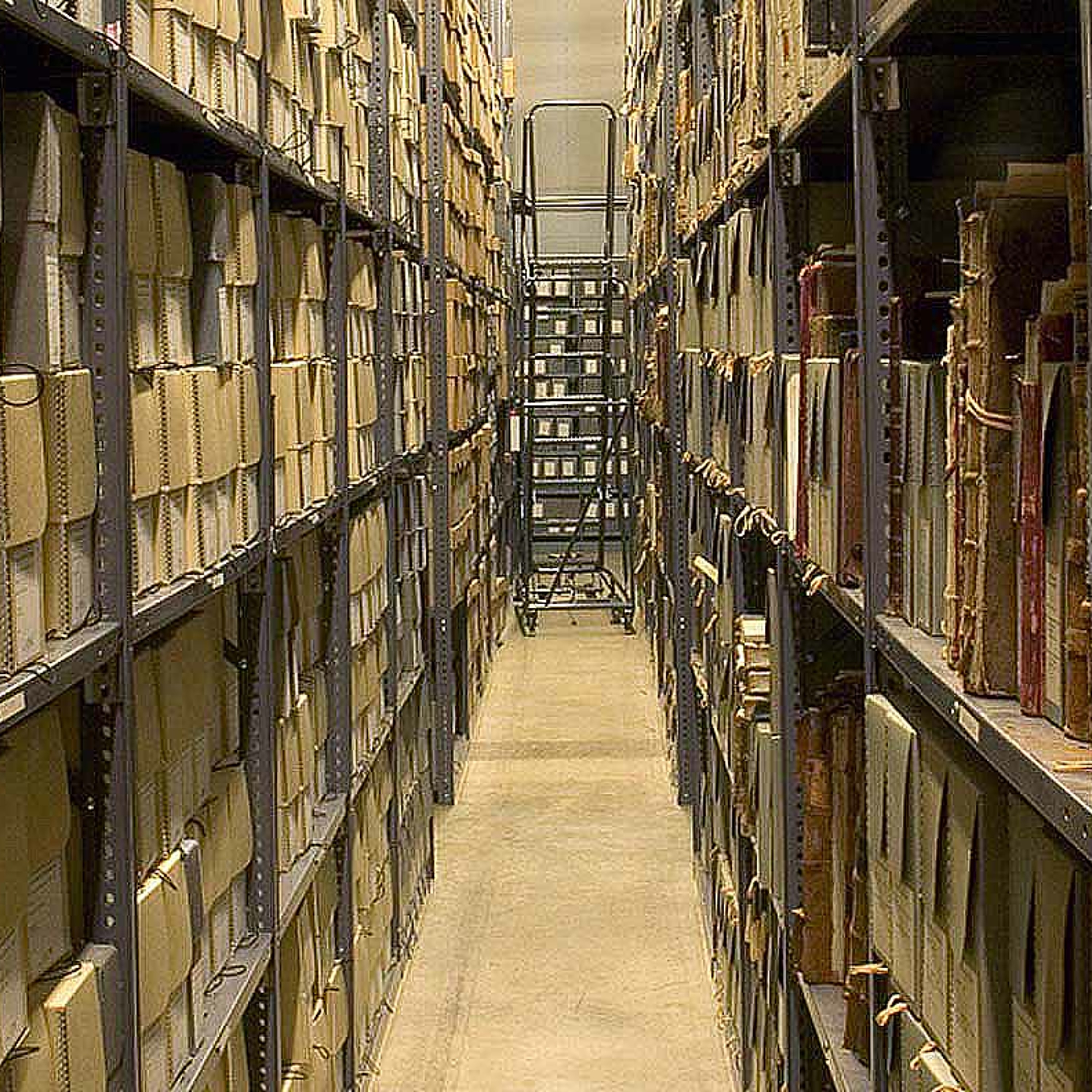
Hagley History HangoutStories From The Stacks: James Panza on the Trailer Train CompanyIn this interview, James Panza discusses his research into the Trailer Train Company, its history and operations, and his use of materials from the Pennsylvania Railroad collection at Hagley Library for his project.
Mr. Panza is a retired employee of Trailer Train Company, and member of the Pennsylvania Railroad Technical & Historical Society.
Stories from the Stacks is an ongoing program from the Center for the History of Business, Technology, and Society featuring interviews with researchers who share the excitement of discovering the rich and varied historical materials in the Hagley Library’s collections. Listen to additional episodes at www.hagley.or...
2015-05-0804 min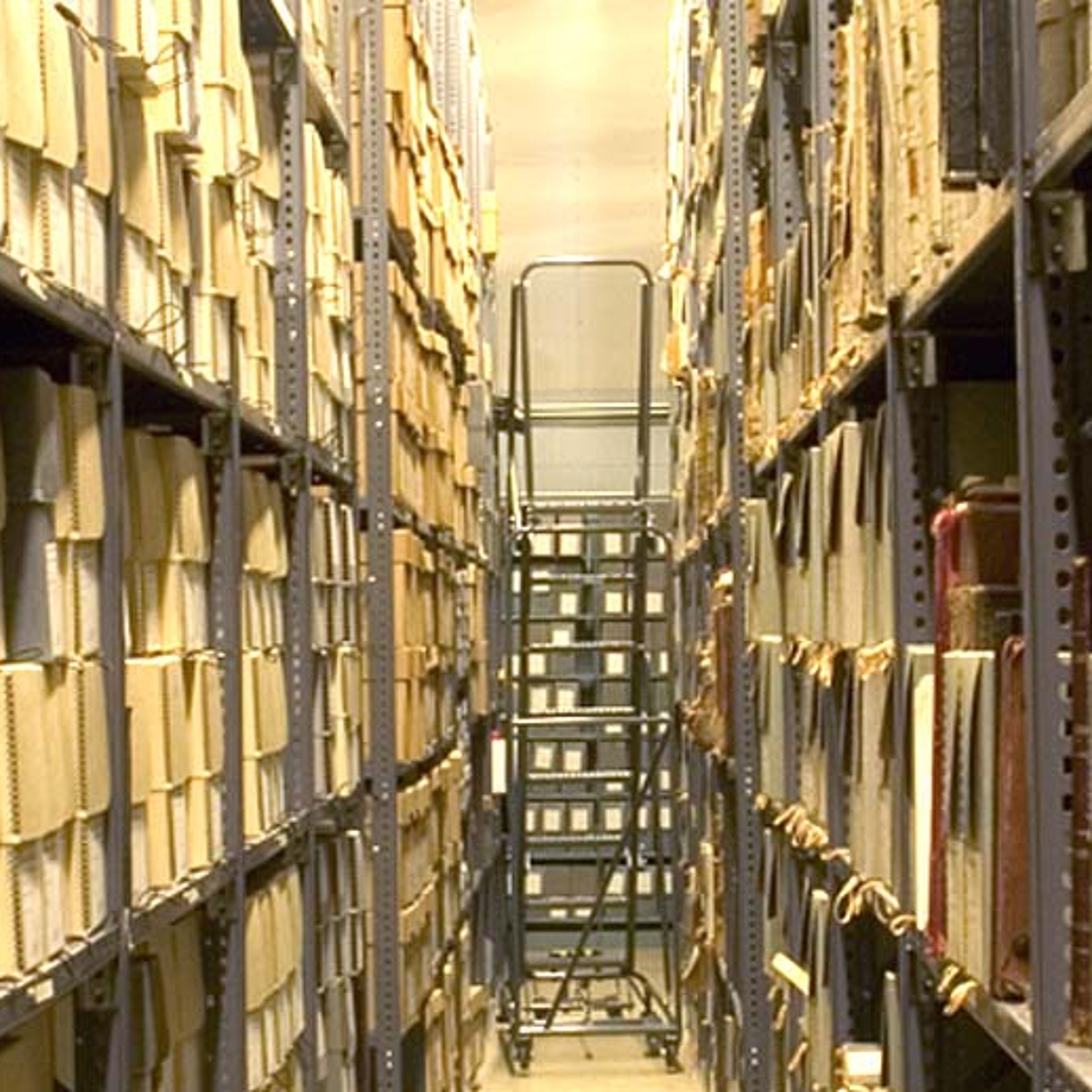
Hagley History HangoutStories From The Stacks: Yda Schreuder on the leather tanning industryDr. Yda Schreuder discusses her research into immigrant labor and the leather tanning industry in Wilmington, Delaware, and her use of materials from the Hagley Library for her work.
Dr. Schreuder is professor of geography at the University of Delaware.
Stories from the Stacks is an ongoing program from the Center for the History of Business, Technology, and Society featuring interviews with researchers who share the excitement of discovering the rich and varied historical materials in the Hagley Library’s collections. Listen to additional episodes at www.hagley.org/storiesfromthestacks.
2015-04-1004 min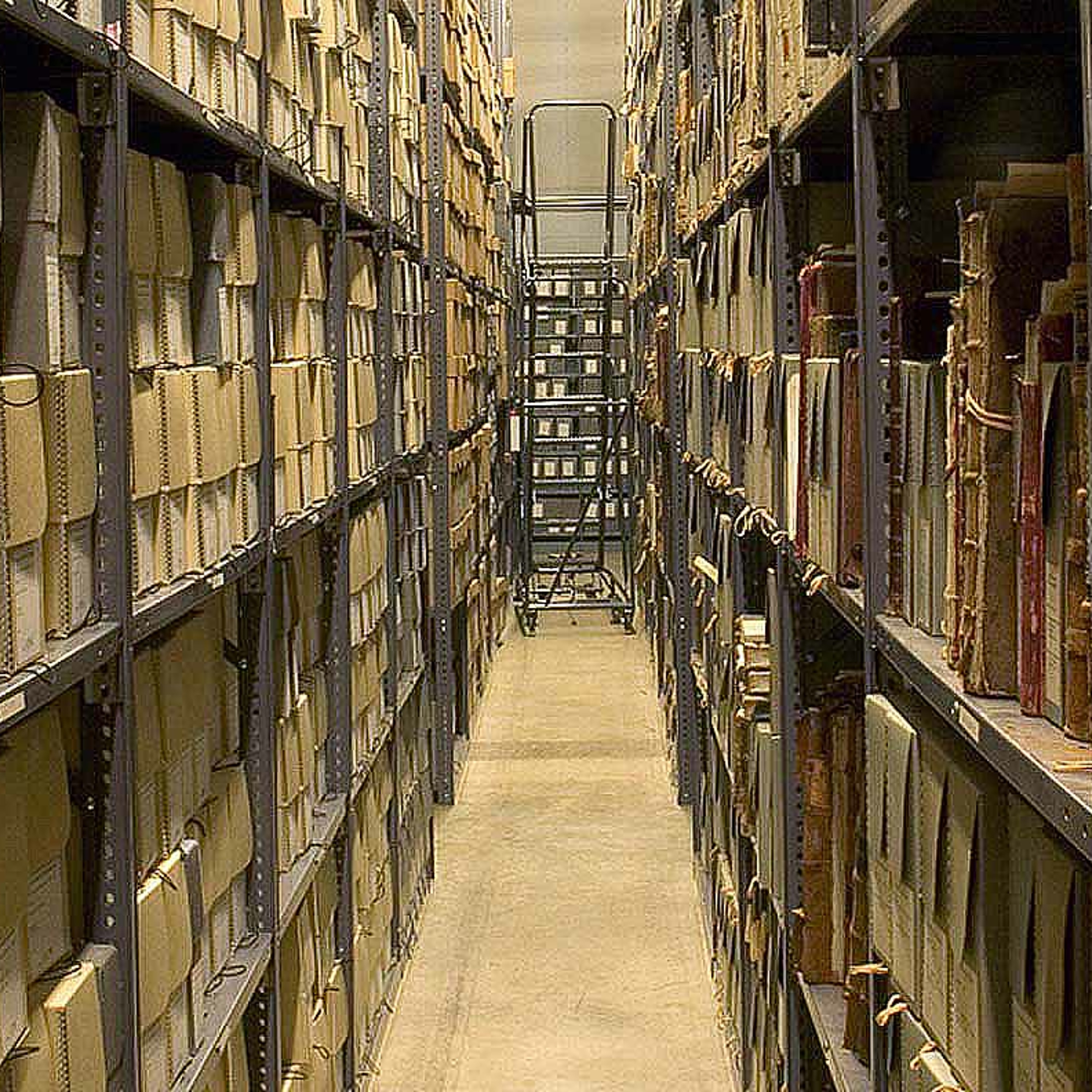
Hagley History HangoutStories From The Stacks: Neal Hurst on the American privateer ship RevolutionIn this interview, Neal Hurst discusses his research into the American privateer ship Revolution, and his use of Winterthur collections as well as the Samuel Morris Papers from the Hagley Library.
Mr. Hurst is a Lois F. McNeill Fellow at the Winterthur Program in American Material Culture at the University of Delaware.
Stories from the Stacks is an ongoing program from the Center for the History of Business, Technology, and Society featuring interviews with researchers who share the excitement of discovering the rich and varied historical materials in the Hagley Library’s collections. Listen to additional episodes at www.hagley.or...
2015-03-0604 min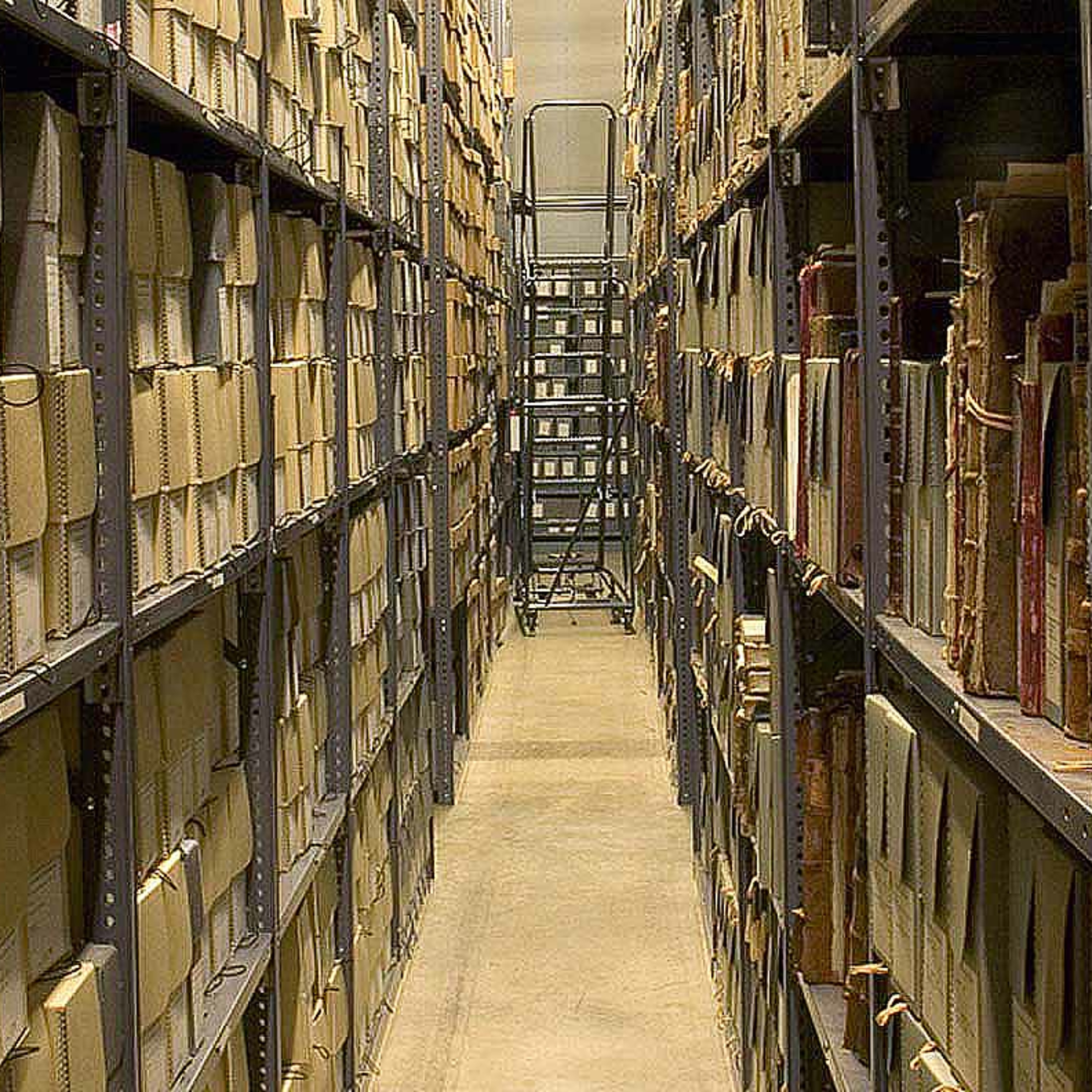
Hagley History HangoutStories From The Stacks: Audrey Russek on restaurant design and sanitation technologiesIn this interview, Dr. Audrey Russek discusses her research into restaurants as sites of social change, and her use of the Pahlman Papers and trade catalogs from the Hagley Library.
Stories from the Stacks is an ongoing program from the Center for the History of Business, Technology, and Society featuring interviews with researchers who share the excitement of discovering the rich and varied historical materials in the Hagley Library’s collections. Listen to additional episodes at www.hagley.org/storiesfromthestacks.
2015-02-1904 min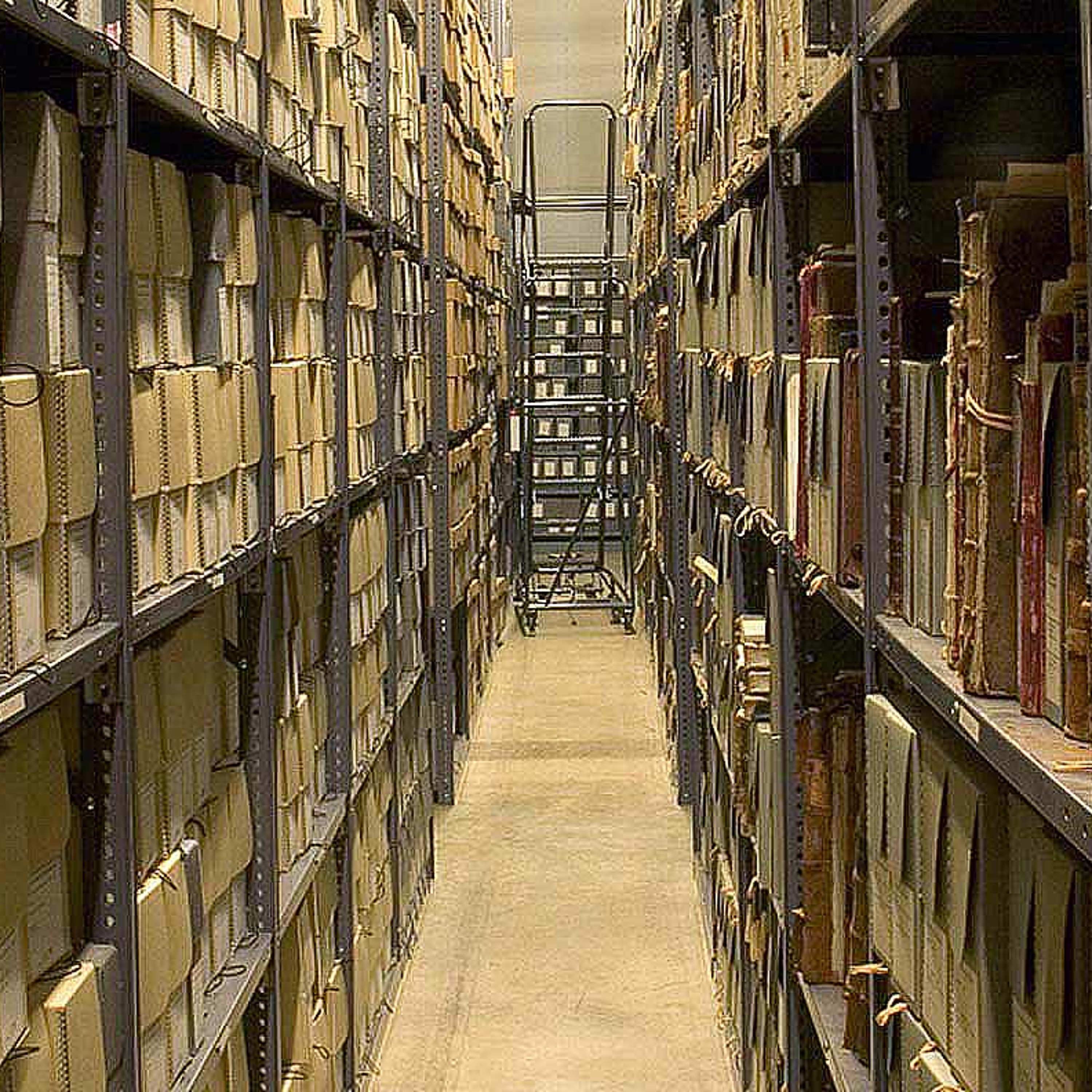
Hagley History HangoutStories From The Stacks: Arwen Mohun on technological riskIn this interview, Dr. Arwen Mohun discusses her research into social adaptations to changing technological risk, and her use of materials from the collections in the Hagley Library.
Dr. Mohun is professor and department chair in the University of Delaware Department of History.
Stories from the Stacks is an ongoing program from the Center for the History of Business, Technology, and Society featuring interviews with researchers who share the excitement of discovering the rich and varied historical materials in the Hagley Library’s collections. Listen to additional episodes at www.hagley.org/storiesfromthestacks.
2015-01-3004 min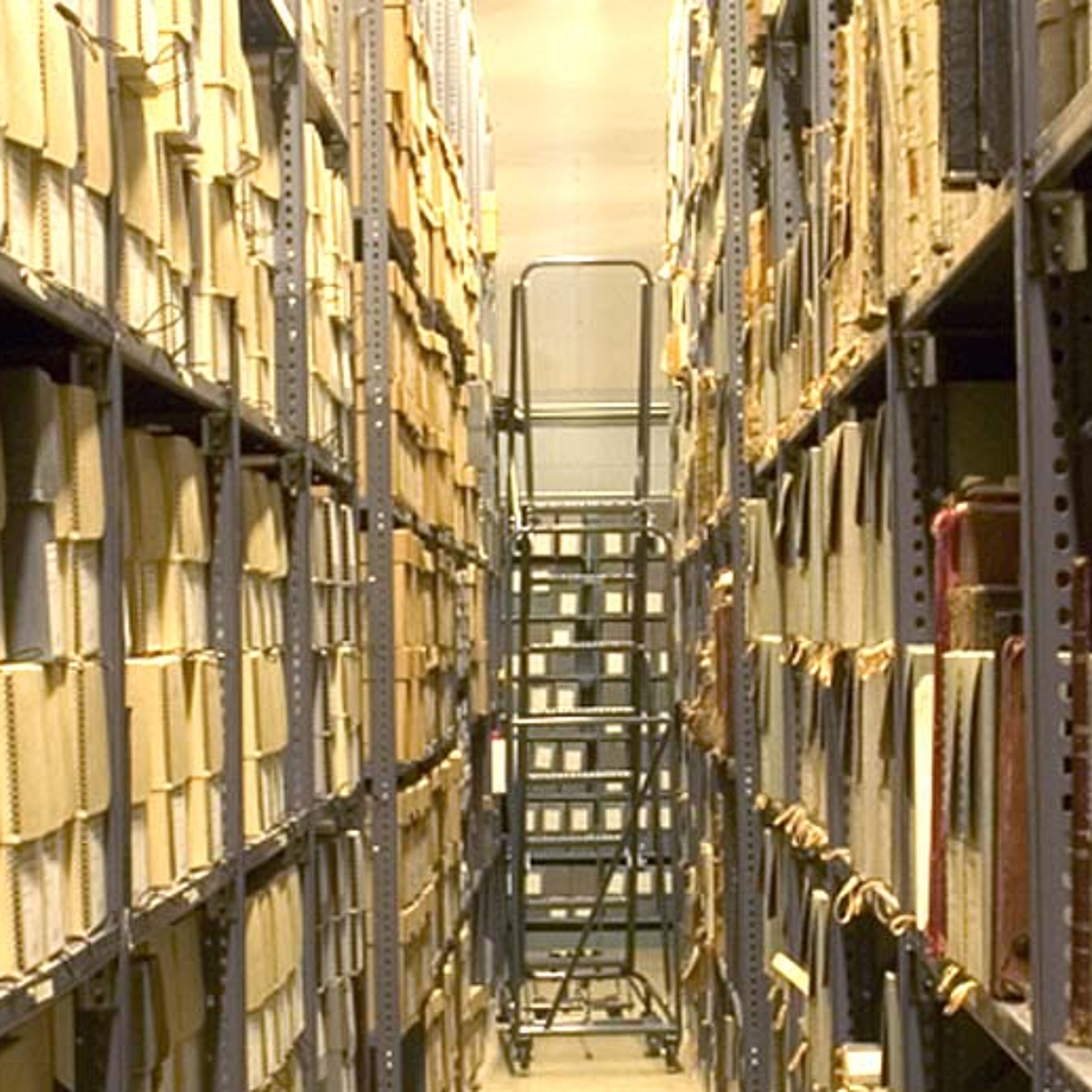
Hagley History HangoutStories From The Stacks: Sara Wermiel on railroad contractingDr. Sara Wermiel discusses her research into railroad contracting, and her use of materials from the Pennsylvania Railroad collection in the Hagley Library for her project.
Dr. Wermiel is an independent scholar with a current appointment in the program on Science, Technology, and Society at the Massachusetts Institute of Technology.
Stories from the Stacks is an ongoing program from the Center for the History of Business, Technology, and Society featuring interviews with researchers who share the excitement of discovering the rich and varied historical materials in the Hagley Library’s collections. Listen to additional episodes at www.hagley.org/storiesfromthestacks.
2015-01-2304 min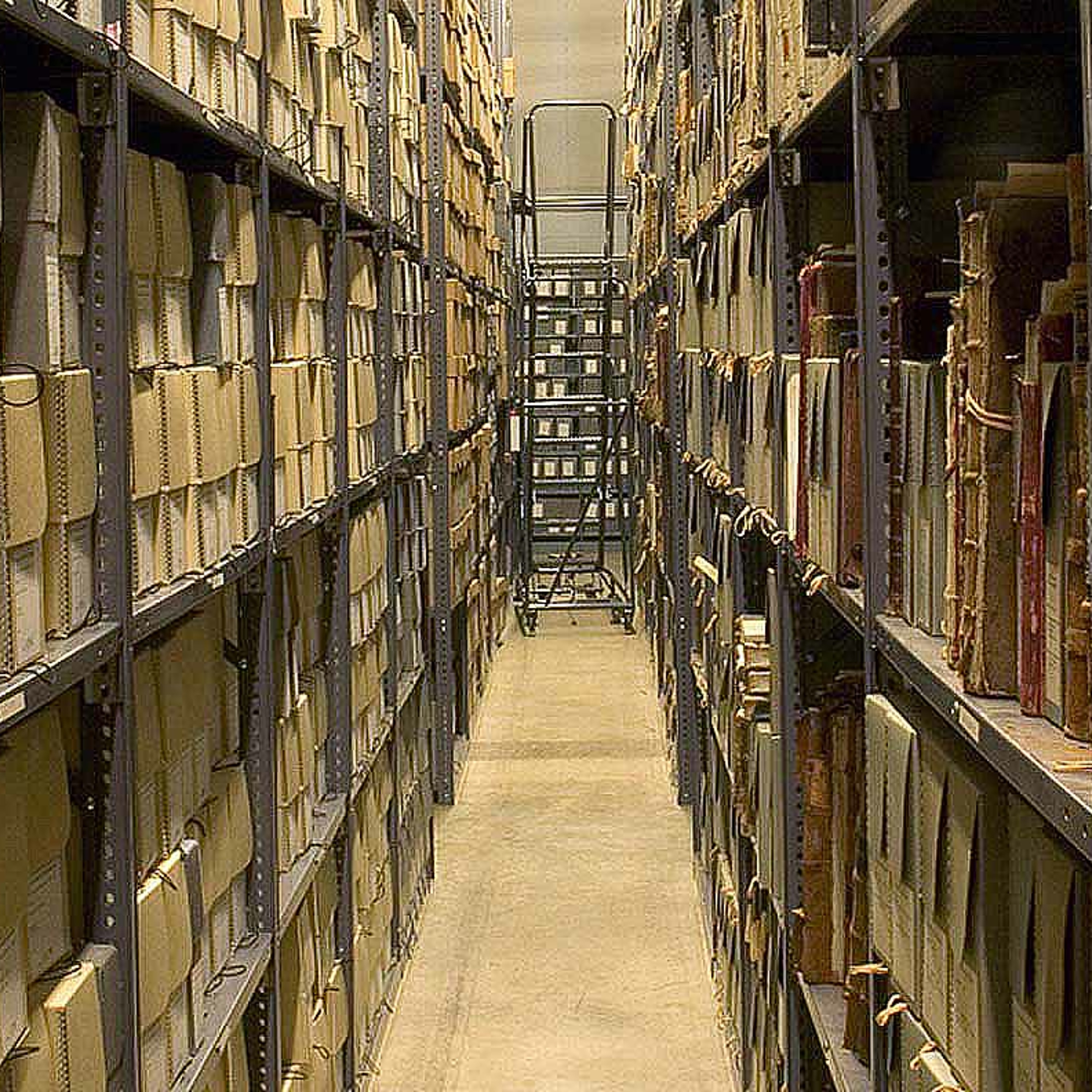
Hagley History HangoutStories From The Stacks: David Haslam on the Pennsylvania Railroad T1 LocomotiveIn this interview, David Haslam discusses his research into the Pennsylvania Railroad T1 locomotive, and his use of materials from the collections in the Hagley Library for his organization's project to build an accurate, fully functional reproduction of the T1.
Mr. Haslam is marketing director for the T1 Trust.
Stories from the Stacks is an ongoing program from the Center for the History of Business, Technology, and Society featuring interviews with researchers who share the excitement of discovering the rich and varied historical materials in the Hagley Library’s collections. Listen to additional episodes at www.hagley.org/storiesfromthestacks.
2014-12-0404 min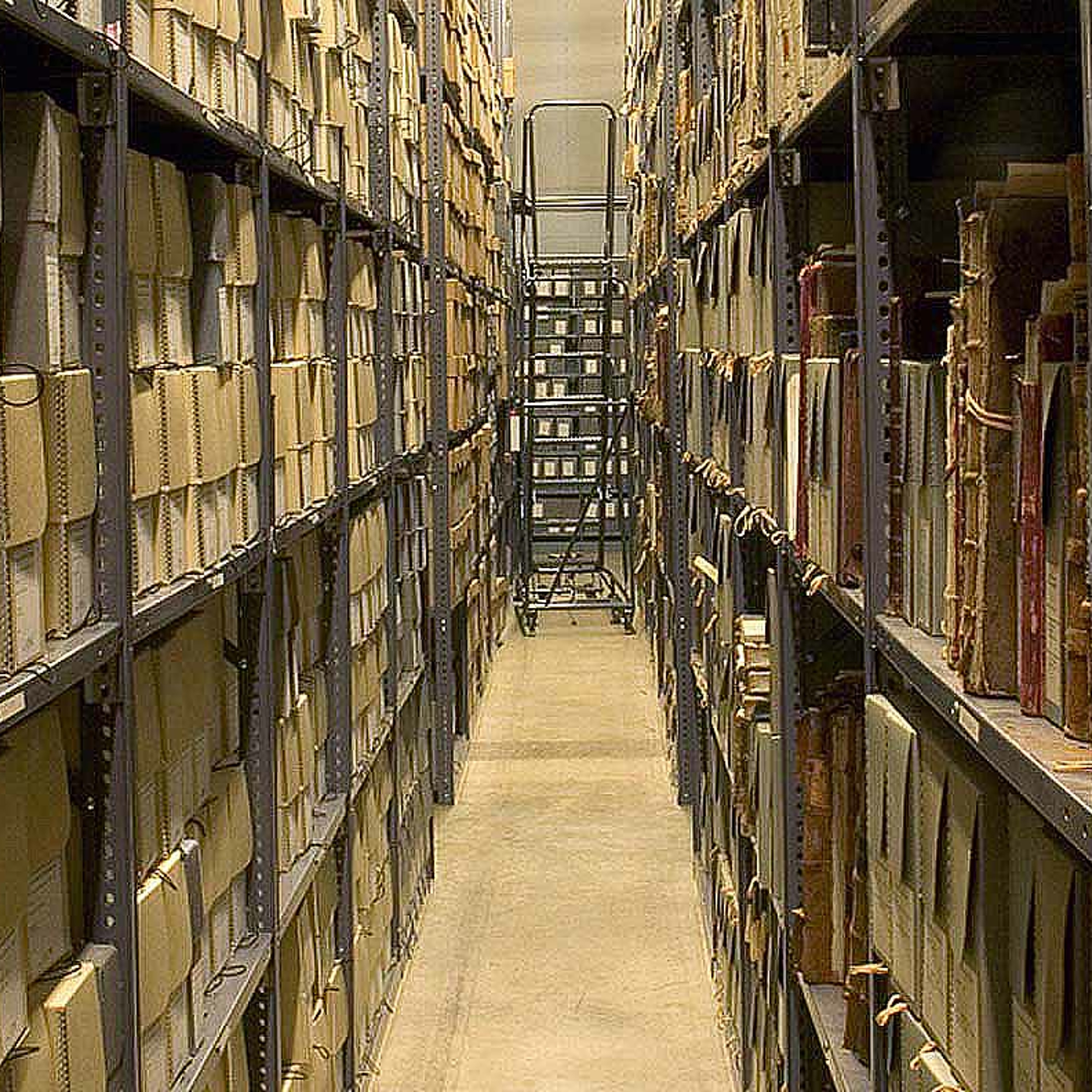
Hagley History HangoutStories From The Stacks: Shinichi Korogi on the development of managerial accountingIn this interview, Dr. Shinichi Korogi discusses his research into the development of managerial accounting, and his use of materials from the DuPont company papers in the Hagley Library for his project.
Dr. Korogi is a professor in the Commerce Department of Kurume University.
Stories from the Stacks is an ongoing program from the Center for the History of Business, Technology, and Society featuring interviews with researchers who share the excitement of discovering the rich and varied historical materials in the Hagley Library’s collections. Listen to additional episodes at www.hagley.org/storiesfromthestacks.
2014-11-2604 min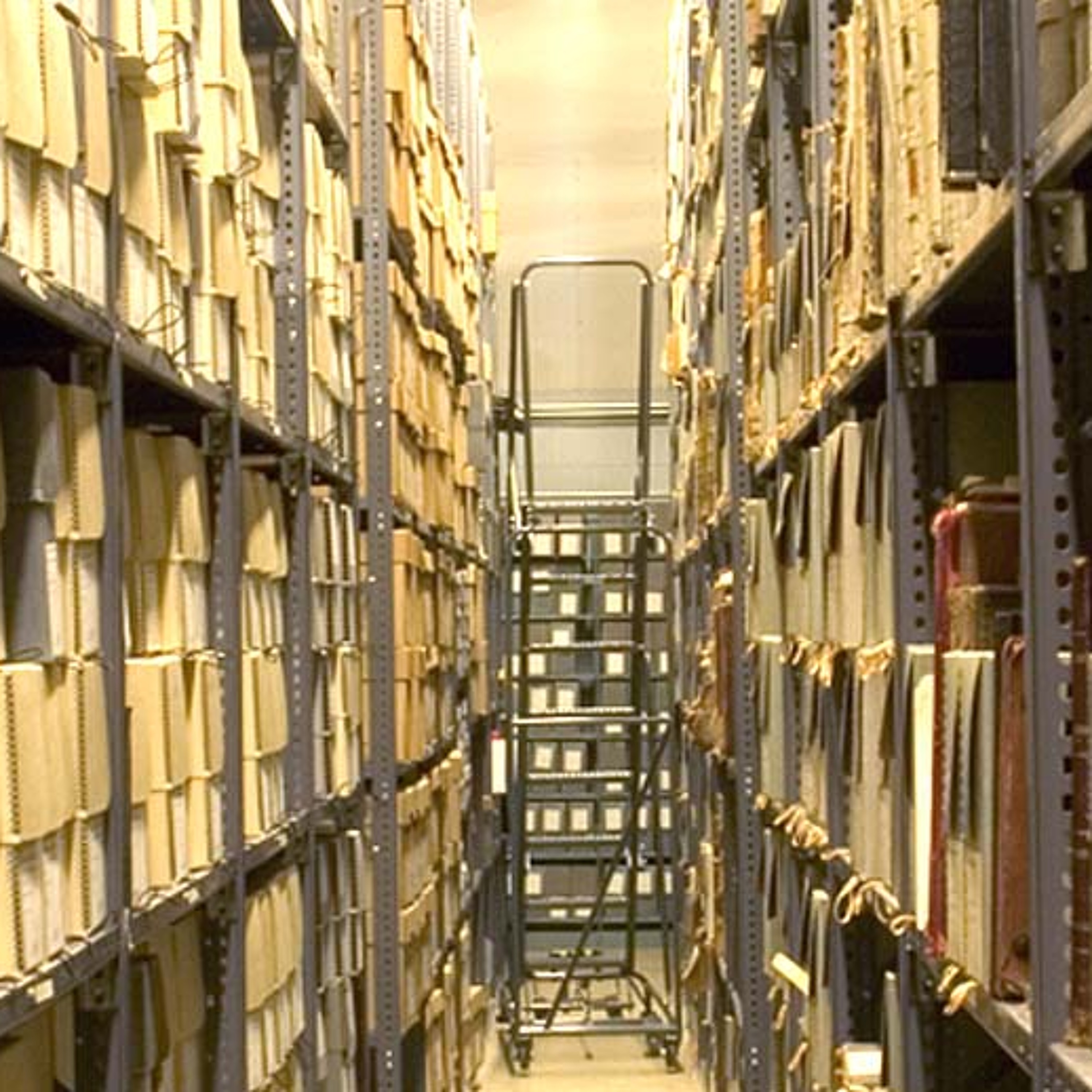
Hagley History HangoutStories From The Stacks: Kate Holliday on the architecture of telephone exchange buildingsIn this interview, Dr. Kate Holliday discusses her research into telephone buildings, and her use of materials from the MCI collection in the Hagley Library for her project.
Dr. Holliday is a professor in the School of Architecture at the University of Texas Arlington.
Stories from the Stacks is an ongoing program from the Center for the History of Business, Technology, and Society featuring interviews with researchers who share the excitement of discovering the rich and varied historical materials in the Hagley Library’s collections. Listen to additional episodes at www.hagley.org/storiesfromthestacks.
2014-11-2004 min
Hagley History HangoutStories From The Stacks: David Reinecke on federal involvement in development of high speed railIn his interview, David Reinecke discusses his research into federal involvement in development of high speed rail in the United States, and his use of materials from the Robert B. Watson papers in the Hagley Library for his project.
David Reinecke is a PhD candidate in sociology at Princeton University.
Stories from the Stacks is an ongoing program from the Center for the History of Business, Technology, and Society featuring interviews with researchers who share the excitement of discovering the rich and varied historical materials in the Hagley Library’s collections. Listen to additional episodes at www.hagley.org/storiesfromthestacks.
2014-10-2904 min